
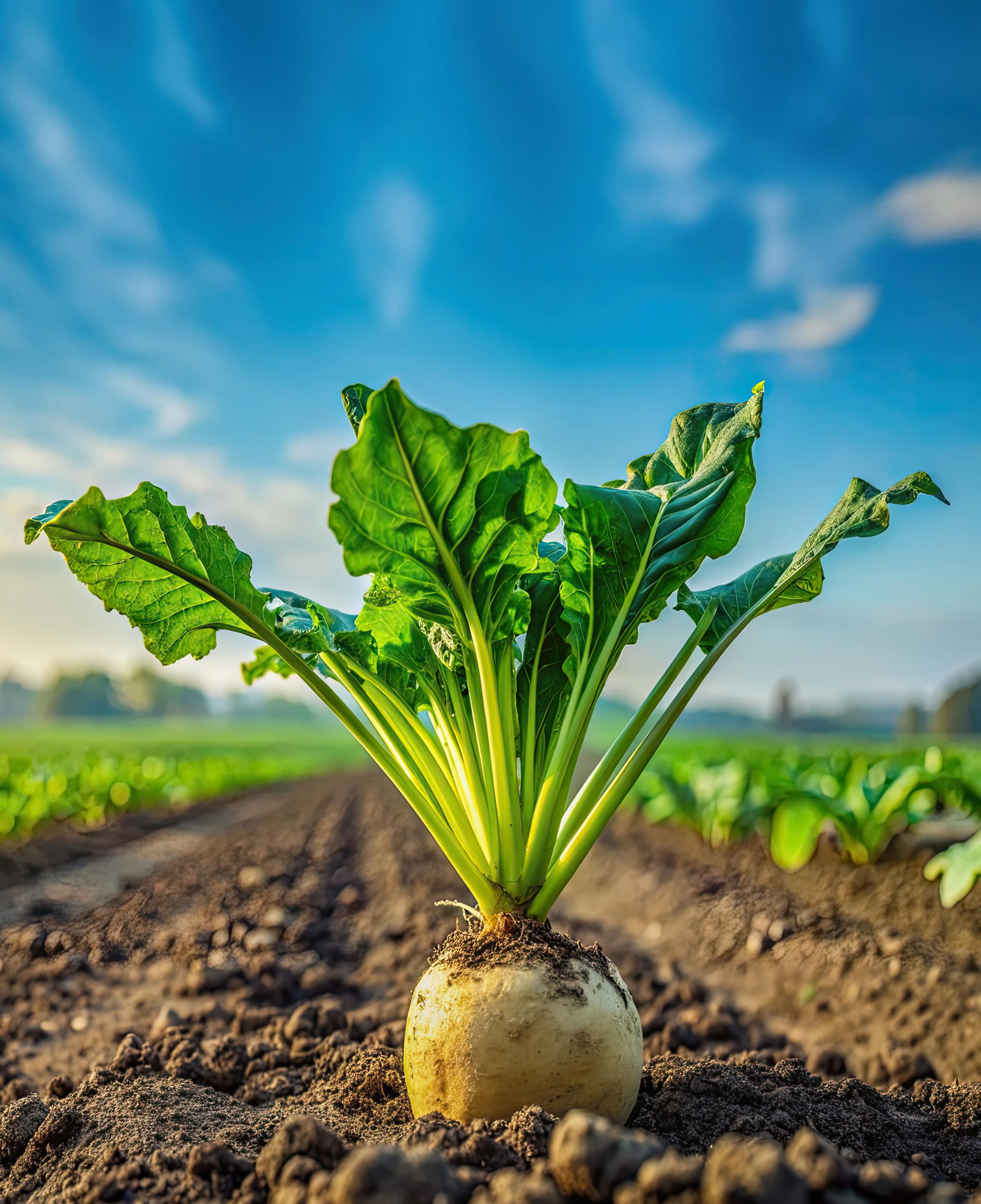





















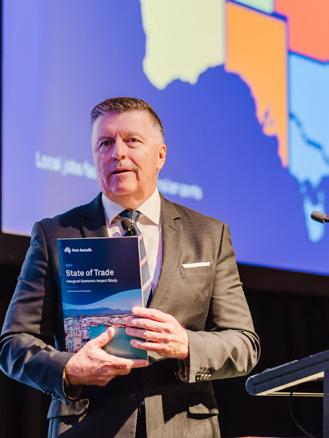



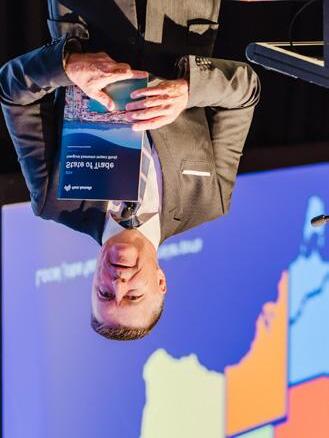



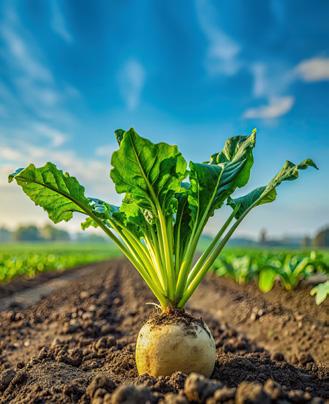










Africa Outlook, APAC Outlook, EME Outlook, North America Outlook, Mining Outlook, Healthcare Outlook, Manufacturing Outlook, Supply Chain Outlook, Food & Beverage Outlook, and Construction Outlook are digital publications aimed at boardroom and hands-on decision-makers, reaching an audience of more than 800,000 people around the world.
With original and exclusive content compiled by our experienced editorial team, we look to promote the latest in engaging news, industry trends, and success stories from across the globe.
Your company can join the leading industry heavyweights enjoying the free exposure we provide across our platforms with a free marketing brochure, extensive social media saturation, enhanced B2B networking opportunities, and a readymade forum to attract new investment and help you grow your business.
Visit www.outpb.com/work-with-us for details on how your company can feature for free in one of our upcoming editions.
EDITORIAL
Head of Editorial: Jack Salter jack.salter@outpb.com
Deputy Head of Editorial: Lucy Pilgrim lucy.pilgrim@outpb.com
Senior Editor: Lily Sawyer lily.sawyer@outpb.com
Editor: Ed Budds ed.budds@outpb.com
Editor: Rachel Carr rachel.carr@outpb.com
Copy Editor: Lauren Kania lauren.kania@outpb.com
DESIGN & PRODUCTION
Art Director: Stephen Giles steve.giles@outpb.com
Senior Designer: Devon Collins devon.collins@outpb.com
Designer: Louisa Martin louisa.martin@outpb.com
Production Manager: Alex James alex.james@outpb.com
Digital Marketing Director: Fox Tucker fox.tucker@outpb.com
Website Content Manager: Oliver Shrouder oliver.shrouder@outpb.com
Social Media Executive: Jake Crickmore jake.crickmore@outpb.com
BUSINESS
Chief Executive Officer: Ben Weaver ben.weaver@outpb.com
Managing Director: James Mitchell james.mitchell@outpb.com
Chief Technology Officer: Nick Norris nick.norris@outpb.com
ADMINISTRATION
Finance Director: Suzanne Welsh suzanne.welsh@outpb.com
Finance Assistant: Victoria McAllister victoria.mcallister@outpb.com
FOOD & BEVERAGE OUTLOOK
Norvic House, 29-33 Chapelfield Road Norwich, NR2 1RP, United Kingdom
Sales: +44 (0) 1603 804 445
Editorial: +44 (0) 1603 804 431
SUBSCRIPTIONS
Tel: +44 (0) 1603 804 431
jack.salter@outpb.com
www.foodbeverage-outlook.com
Follow us on LinkedIn: @foodbeverageoutlook
Follow us on X: @outlookpublish

Welcome to our sixth edition of Food & Beverage Outlook.
This issue’s front cover will satisfy your sweet tooth as it is sugarcoated by the grower-owned cooperative, Michigan Sugar Company (Michigan Sugar).
Headquartered in Bay City with sugar beet processing facilities across the state, Michigan Sugar’s grower-owners plant and harvest about 140,000 acres of sugar beets each year.
As it focuses on increasing its sugar production in the most sustainable manner, the company has invested heavily in maximising the efficiency of its separation processes.
A new molasses degusarisation plant, which opened its doors in May 2024, has significantly contributed to this goal with the ability to produce more than 80 million additional pounds of sugar annually.
“This state-of-the-art facility, the largest capital investment in Michigan Sugar’s near 120-year history, is a complete game-changer for us,” highlights Neil Juhnke, President and CEO.
We also enjoy the sweet sips of island bliss at Caribbean Dreams Foods Ltd (CDFL), the region’s leading tea producer and a key subsidiary of Jamaican Teas Ltd.
CDFL represents a connection to culture, wellness, and the Caribbean lifestyle and has added new flavours and functional blends over the years to meet the growing demand for healthy, affordable alternatives.
“The Caribbean consumer is more informed and looking for quality, consistency, and purpose in the products they choose,” insights Jonathan Mahfood, Commercial General Manager of CDFL.
Success has been sweet for Safresco, whose specialty is fresh fruit that’s more than just tantalisingly delicious but also good for consumers’ health.
The leading citrus fruit, grape, and avocado producer has worked diligently to differentiate itself through uniquely fresh and succulent offerings.
“Controlling quality is extremely important for our customers, and having our own orchards and packaging produce in our facilities ensures we control the quality of the product throughout the process,” asserts Managing Director, Juan Greyvenstein.
Elsewhere in this edition, treat yourself to a sweet selection of business insights from TheFork, Gcwalisa, Starbird, and Heroes Vodka.
We hope that you enjoy your read.
Jack Salter Head of Editorial, Outlook Publishing
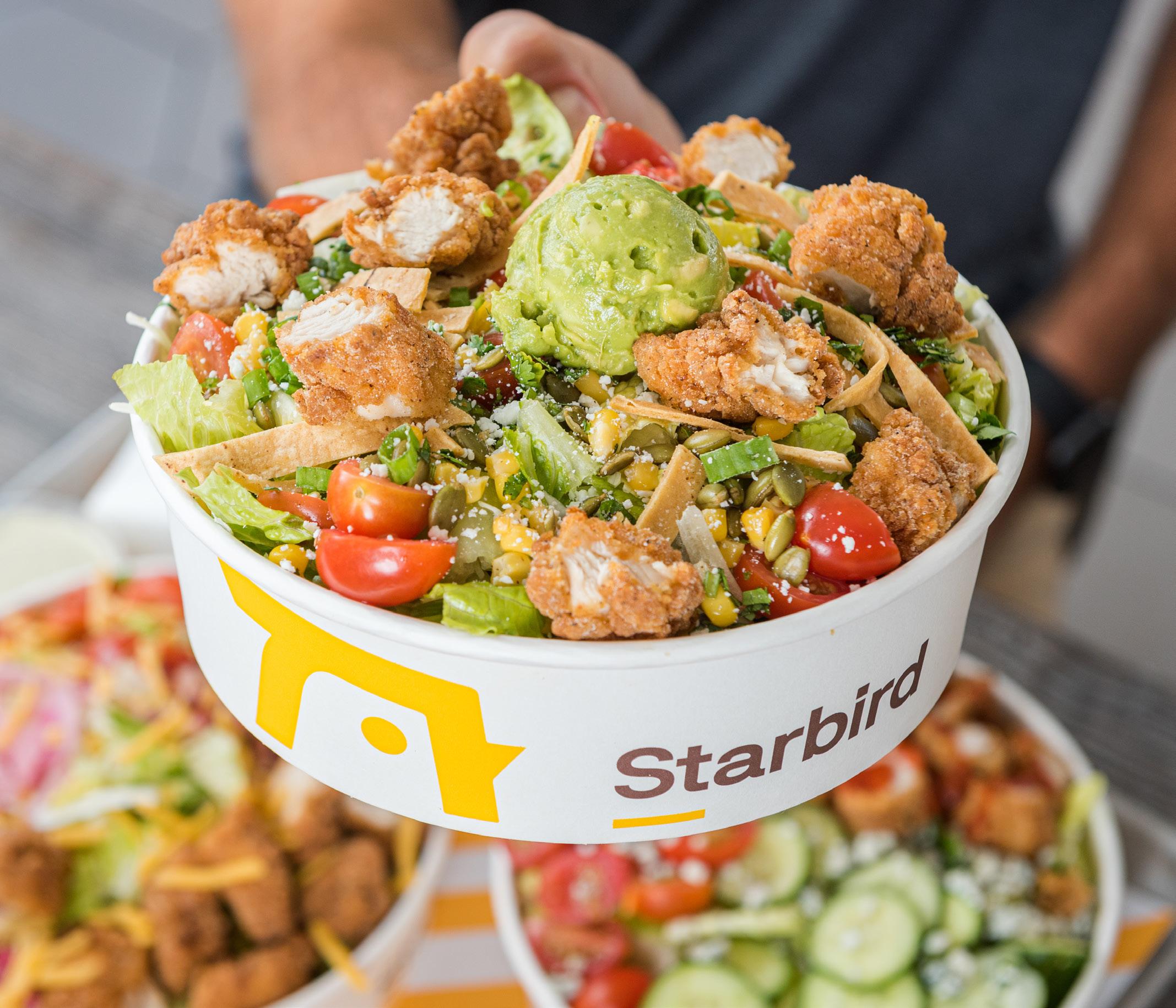
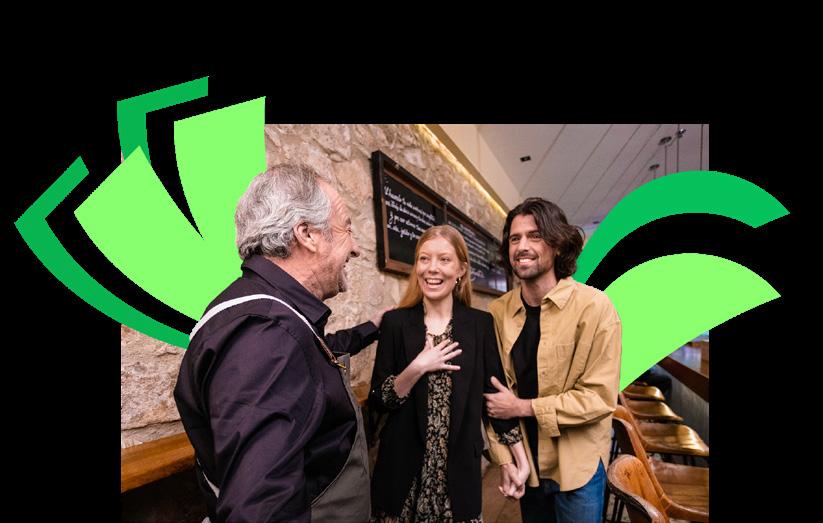




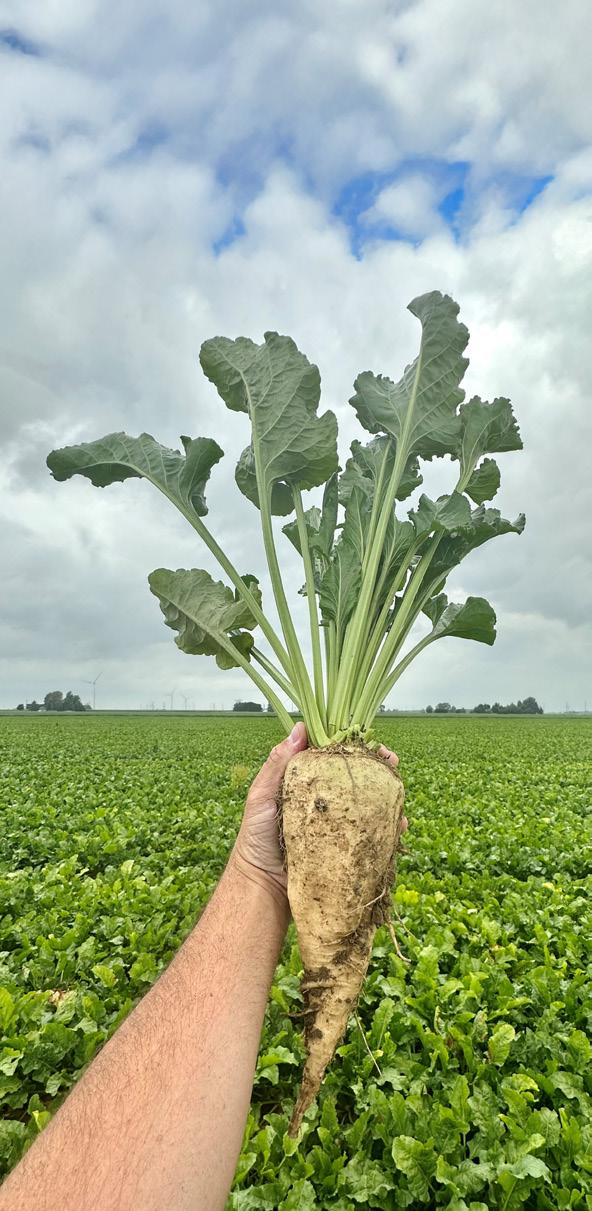
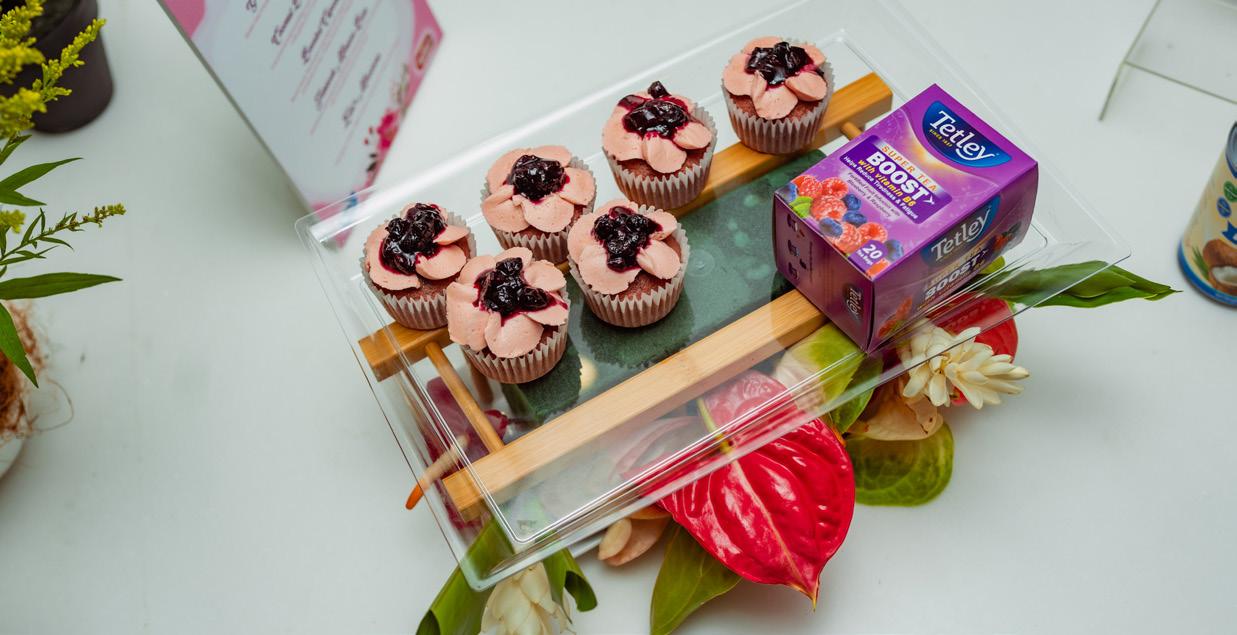
Sips
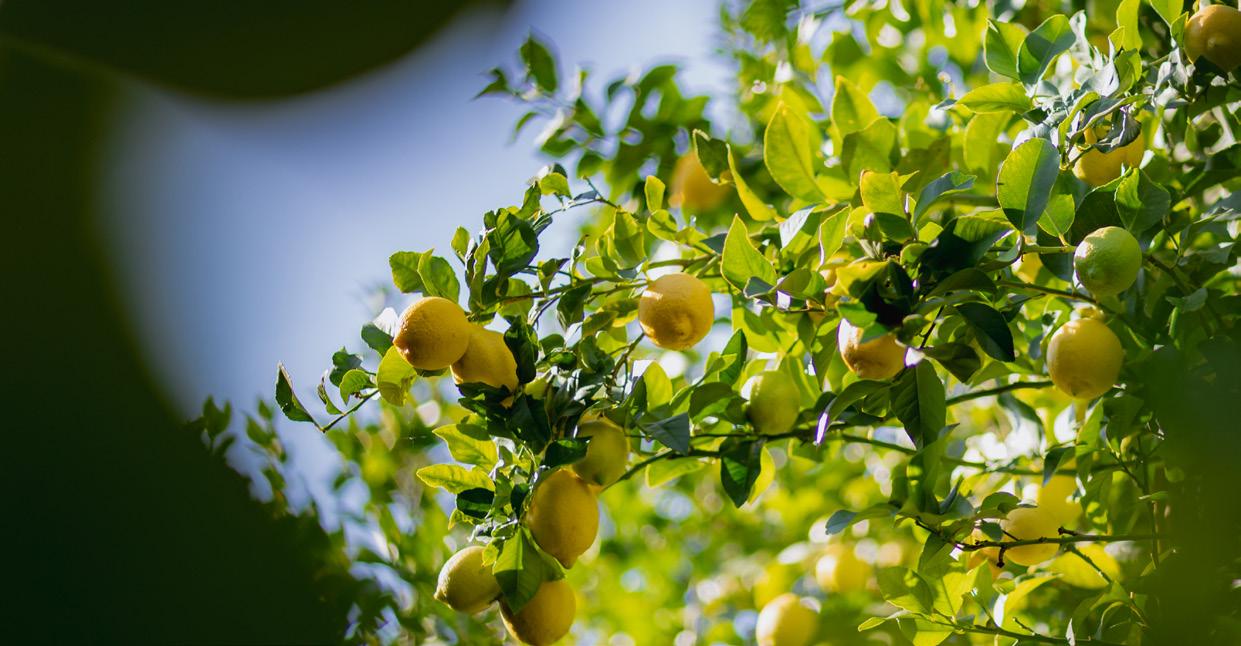
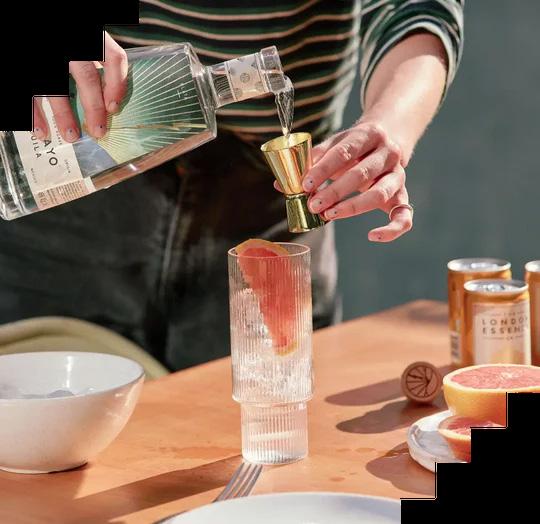

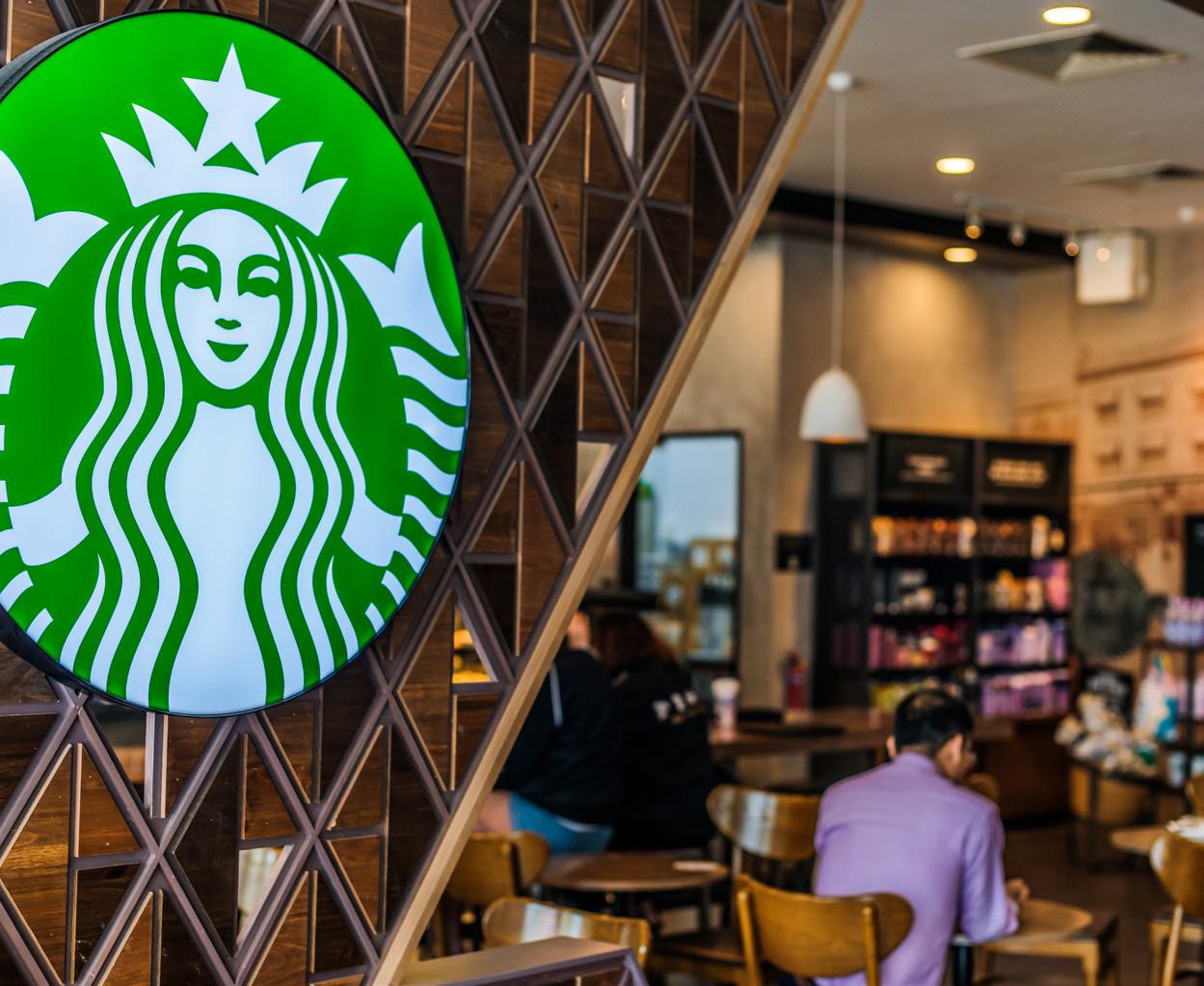
UNIONISED STARBUCKS WORKERS across the US are contemplating whether to hold a strike over pay and management conditions at the world’s largest coffee chain.
Employees have expressed issues such as needing better wages and hours, as many state that the USD$16 they make per hour is not sustainable for everyday life.
In response, the company announced its Back to Starbucks campaign to revitalise operations, which includes increasing accountability amongst the workforce to stabilise, reset, and grow the business.
Jaci Anderson, Director of Corporate Communications, recently confirmed the transformation campaign is working and that figures show how much people enjoy working for the brand, with over one million job applicants per year.
THE MEXICAN INSPIRED fastfood chain, better known as ‘Taco Bell’, has announced its decision to roll out Live Más Cafés across areas such as Southern California, Dallas, and Houston.
These individual cafés will co-exist with food counters inside its existing restaurants, with special
customisable beverages ranging from frozen coffees to lemonades and energy drinks. By the end of the year, Taco Bell projects that it will have 30 Live Más Cafés in its portfolio, aiming to generate a USD$5 billion drink business by 2030, targeting the younger generation.
AFTER BEN & JERRY’S co-Founder Ben Cohen recently stated that the brand was being blocked from making ice cream with purpose by its owner, Unilever, he has taken it upon himself to create a new watermelon-flavoured sorbet with the intention of raising awareness to rebuild peace and dignity for the residents of Palestine.
The ice cream will be produced under Cohen’s personal brand, Ben’s Best, and this exotic flavour will not be for sale commercially.
Instead, a two-week competition has been released for members of the public to submit ideas for a name, additional ingredients, and container design based around a watermelon – a symbol of solidarity with the Palestinian people due to the colours mirroring their flag.
Competition entries closed on 11th November 2025, with the winner to be announced immanently by a familiar face and friend of the company.
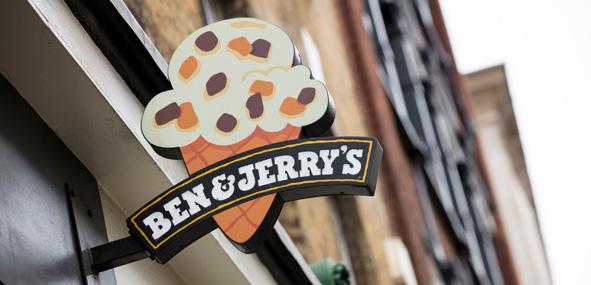
According to Chief Food Innovation Officer, Liz Matthews, customers are increasingly craving unique, interesting flavours in their beverages.
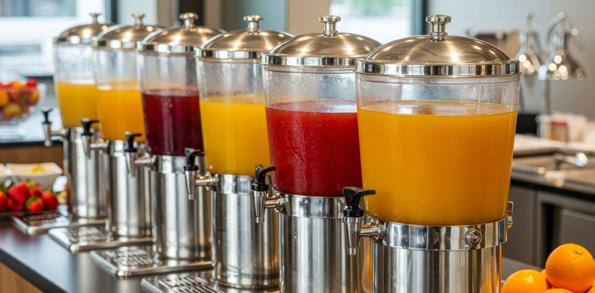
ASIA PACIFIC
VIETNAM IS LOOKING to expand its seafood by-product industry to improve sustainability, reduce waste, and increase profitability.
The country is tapping into the vast potential of seafood by-products, such as bones and shells, and reprocessing them into high-value products like fishmeal, collagen, and chitosan.
Vietnam generates around 1 million tonnes (t) of seafood by-products annually, yet only a fraction is
processed, with the sector currently valued of USD$275 million – far below its potential.
However, a strategic approach supported by policies, investment, and collaboration amongst businesses and scientists is required to convert by-products into valuable resources.
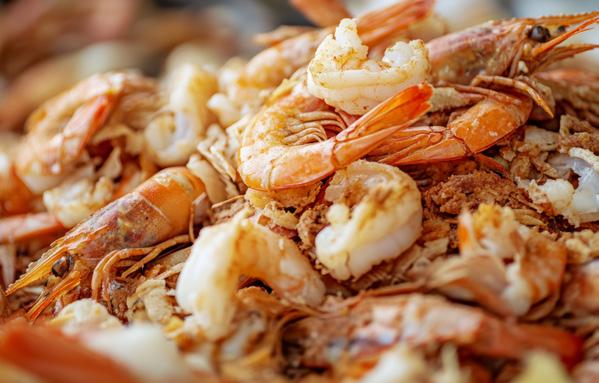
EUROPE & MIDDLE EAST
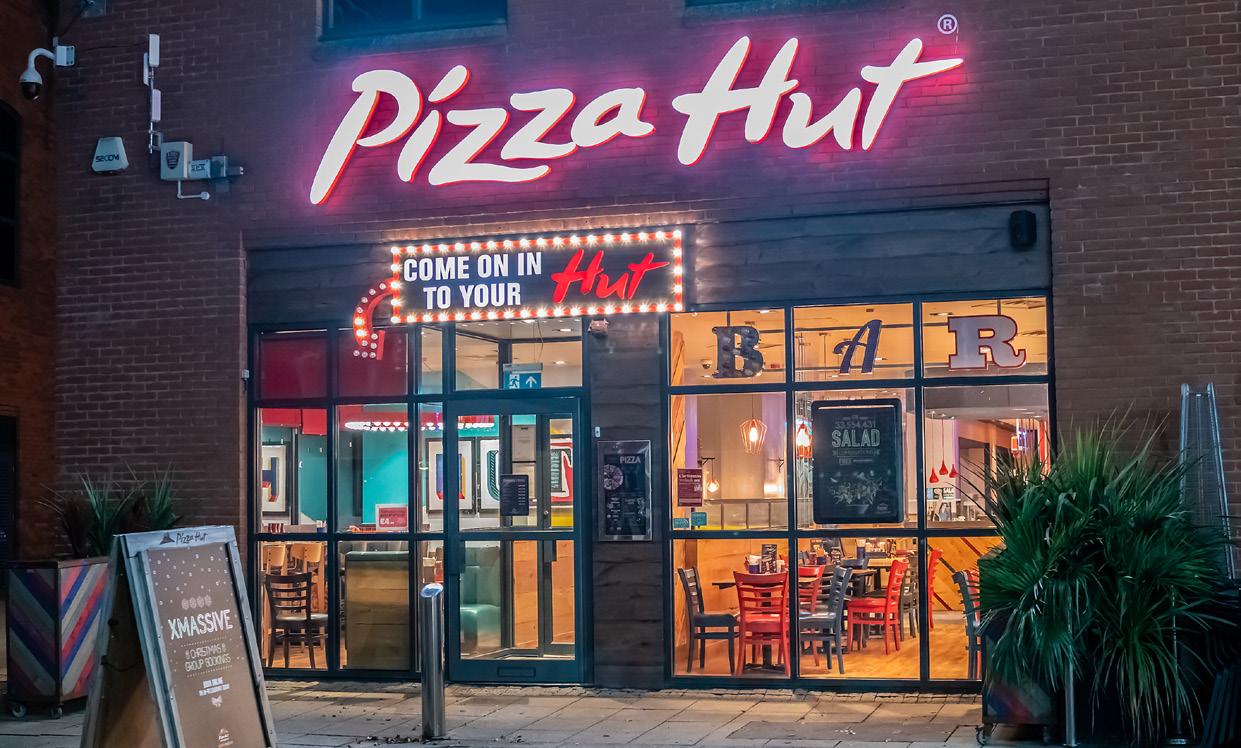
YUM! BRANDS, THE global owner of Pizza Hut, has agreed a rescue deal to save 64 restaurants after the company behind its UK venues went into administration.
This decision safeguards the chain’s renowned family-friendly dining experience, as well as more than 1,200 jobs.
The immediate priority for Pizza
Hut is operational continuity at the acquired locations and supporting colleagues through the transition.
Despite the closure of its 68 other restaurants in the UK, consumers will still be able to enjoy the chain’s renowned all-you-can-eat buffet, salad bar, and ice cream station at venues across the country.
THE KENYA GOVERNMENT has revealed a national and county-level steering structure to lead the revival of its coffee sector.
The aim is to increase national coffee production from 50,000 t to 102,000 t by 2028.
The committees will operate for two years and oversee strategies to introduce coffee farming in non-traditional areas and enhance production in existing counties.
The national committee will be chaired by former Senator for Embu County, Nyeri Ndwiga, whilst Daniel Chemno will serve as First Vice Chairman and James Wachihi as Second Vice Chairman.
Their responsibility is to develop, supervise, and mobilise resources, alongside ensuring the availability of coffee seedlings across different varieties.
THE CATERER SAUDI AWARDS 2026 are returning to Riyadh, Saudi Arabia on Tuesday 10th February next year, highlighting the individuals driving the Kingdom’s growing food and beverage sector.
Despite sous chefs operating out of the spotlight, their leadership skills and collaboration in the kitchen are often the driving force of successful service.
Therefore, this award is designed to provide sous chefs with the recognition they deserve on a national stage, surrounded by peers from the industry.
With nominations closing on Friday 12th December 2025, applicants are advised to showcase their impact in the kitchen and apply to celebrate the individuals who assist turning creative vision into culinary reality.
Most of us are now aware of the carbon footprint associated with our diet choices.
The spotlight was shone on this issue in an evocative 2021 survey, which found that over half of vegans in the UK cited “environmental reasons” when asked why they originally chose a diet free from animal products.
However, many of us don’t realise how our everyday food and drink staples can be just as harmful to the planet as meat products. As such, many forward-thinking innovators are working to drive down the carbon impact of a wide variety of other food and drink choices.
the food and beverage industry more sustainable and ethical
Written by: Hannah Brace, Technical Assistant, and Adam Kelvey, Senior Associate, Reddie & Grose

People in the UK currently drink around 95 million cups of coffee and 165 million cups of tea every day, and many of us take these in disposable cups. The result is that disposable cups account for around three percent of the coffee supply chain’s total carbon footprint, making it imperative for companies to focus on sustainable to-go solutions.
Cupffee has developed novel, wafer-based hot beverage cups that are edible, resistant up to 100 degrees Celsius (°C), low-calorie, leak-proof, and do not alter the taste of the beverage. There are also various innovations designed to reduce waste from single-use containers, including
compostable and biodegradable pods and podless coffee machines.
As with most things, the production of hot beverages comes with its own environmental baggage. Growing coffee requires considerable amounts of land and one single cup of coffee takes 140 litres of water to produce. However, who said coffee needs to come from coffee beans?
At present, several food innovation firms are working on techniques to extract coffee compounds from alternative natural foods and plants. Date and sunflower seeds, lemon, pea proteins, flowers, grasses, and fig plants have all been processed to produce coffee-like beverages.
Elsewhere, companies such as Atomo and Northern Wonder are using patents to protect their valuable coffee alternative intellectual property. Atomo has 13 globally active patent applications and Northern Wonder holds two current applications. Meanwhile, another
company, Prefer, uses technology to leverage fermentation of barley, soya, and bread to reverse-engineer key aromas found in coffee.
Companies are also developing new technologies to tackle coffee waste. For example, Kawa Project collects coffee grounds from industrial brewers and uses a proprietary extraction and refining method to turn waste coffee into chocolate.
Right now, 97 percent of tea in the UK is brewed using teabags, according to the UK Tea and Infusions Association. Original teabag patents date back to 1901, when Roberta Lawson and Mary McLaren first filed for a ‘Tea Leaf Holder’.
Previously, a key component in teabags was polypropylene, a plastic used as a sealant, which often leads to microplastics seeping into our brews and infiltrating the soil and oceans.
Various companies such as Hampstead Organic, Pukka, Clipper, and Lipton have been innovating to achieve fully biodegradable and plastic-free teabags made from alternative, natural ingredients such as corn starch, abaca (banana leaf), bamboo, and cellulose (wood pulp).
It isn’t only the hot beverages themselves that have an environmental impact, as 98 percent of Brits take their tea with milk. It’s not surprising, then, that 25 percent of the UK’s milk consumption is due to our tea drinking habit.
However, dairy milk is known for its impact on the environment, and many people are, by choice, opting for tasty plant alternatives including oat, coconut, almond, and soya.
Milk alternative compositions and technologies are frequently patented. On Espacenet, the European Patent Office’s global searching tool, there are 4,986 patent publications under the burgeoning “milk substitute”

classification.
Coffee, tea, and milk technologies are providing sustainable and ethical solutions to our resource-demanding beverage consumption. Importantly, it is a combination of source, delivery, packaging, and waste technologies that will ultimately provide fully sustainable beverages.
The average Brit will consume 7,560 bars of chocolate in their lifetime. Our insatiable demand for chocolate has resulted in the clearing of huge areas of carbon-absorbing rainforest in West Africa. This change of land use contributes to chocolate’s unfortunate accolade of generating more carbon dioxide (CO2) emissions than chicken, eggs, fish, and even pork.
Scientists in Zurich have developed a pending patent for healthier dark chocolate which uses a sweet gel formed using the inner layer of the cocoa fruit shell and pulp instead of refined sugar.
Not only is this dark chocolate healthier with increased fibre and reduced saturated fat, but it also has the environmental benefit of using parts of the cocoa fruit that would otherwise be discarded, producing an additional revenue for cocoa farmers.
For year-round strawberry lovers, Oishii’s Omakase strawberries are grown in an innovative vertical farm designed to mimic the conditions of the foothills of the Japanese Alps. Their facilities use LED lights powered by the solar field next door, are pollinated naturally using bees, and have a water purification system that
recycles the water.
This highlights how farming without pesticides and with renewable energy innovations can have a positive impact on the food industry.
We should all strive for a conscious shift towards implementing sustainable practices in our daily lives. So, when the barista hands you your steaming hot cup and sweet treat, know that inventors are grinding away.
In the not-too-distant future, your cup may be edible, the brew may not be from coffee beans, and the chocolate may be environmentally and waistline-friendly.
These are just a few examples of the remarkable innovations making the food and beverage industry more sustainable and ethical.
By protecting and leveraging their intellectual property, more innovators will be encouraged to join the drive towards sustainable product options.


Adam Kelvey, Senior Associate at Reddie & Grose, is a chartered patent attorney with a Master of Engineering degree in materials science from the University of Oxford, specialising in the engineering, materials, and consumer products fields.

Hannah Brace, Technical Assistant at Reddie & Grose, is a trainee patent attorney specialising in life sciences with a PhD in chemistry from the University of Bristol.
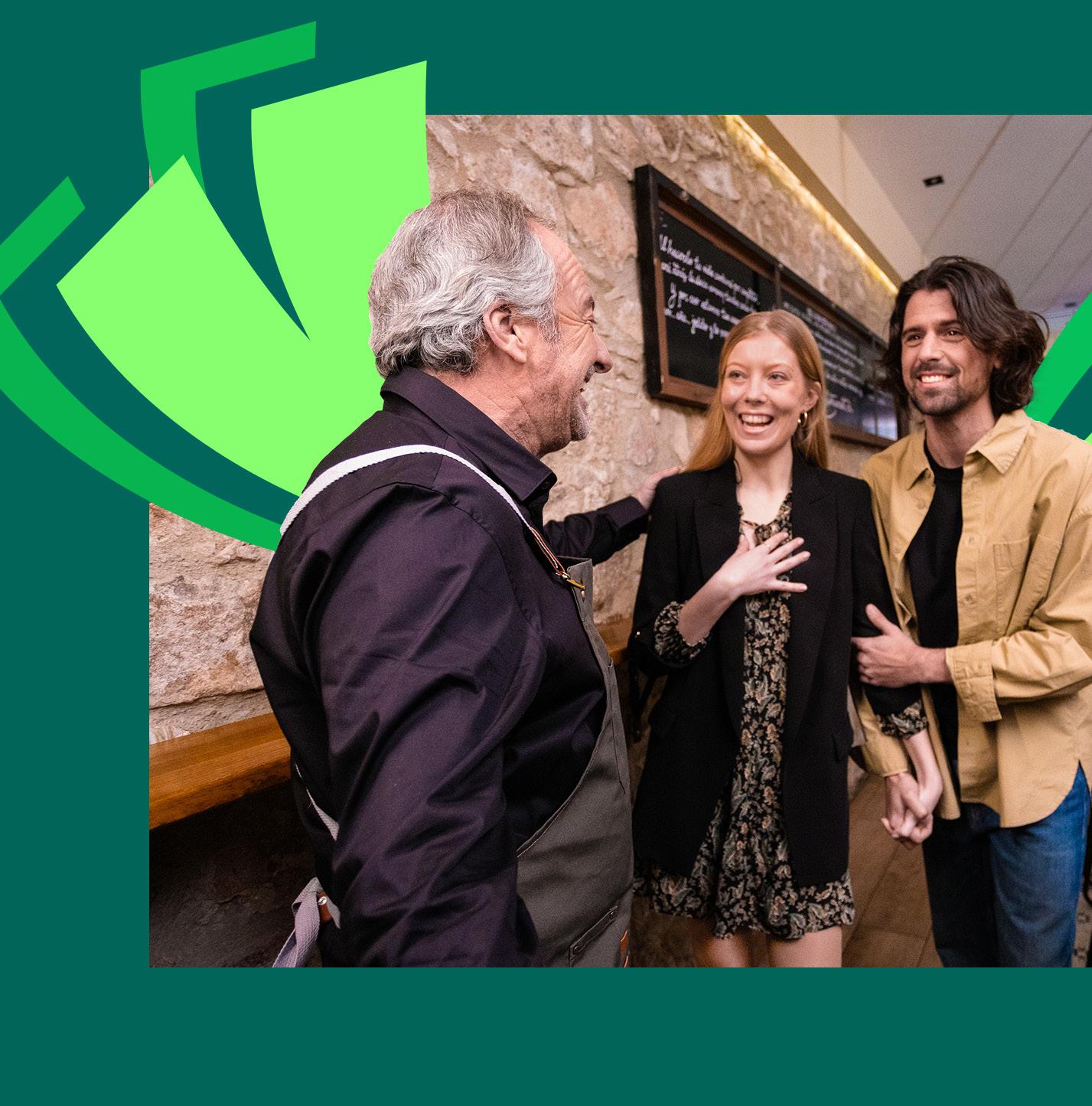

Guiding foodies in their search for the perfect restaurant, TheFork allows its users to book tables for free and in real-time. Patrick Hooykaas, Regional Managing Director, serves us a platter of the app’s exclusive benefits and plans for a mouthwatering future
Writer: Lauren Kania
As the leader in online restaurant bookings across Europe and Australia, TheFork was created in 2007 and swiftly revolutionised the food and beverage industry by offering a new way to foster relationships between restaurants and diners and providing the first online booking diary for professionals.
With over 55,000 participating restaurant partners worldwide and approximately 20 million monthly users, selecting, enjoying, and sharing a dining experience has never been easier.
“TheFork uses technology to connect diners and restaurants,” introduces Patrick Hooykaas, Regional Managing Director.
“For diners, the app makes it simple to discover new, exciting spots, grab a last-minute table, or plan a

special night out. For restaurateurs, it offers innovative tools to manage reservations, track guest preferences, fill seats more efficiently, and invite new diners.”
In removing operational friction, TheFork allows restaurants to spend more time focusing on the people in the dining room.
The app is best known for TheFork Manager – its restaurant management software that simplifies day-to-day operations for busy restaurateurs. As an all-inone solution built for today’s top eateries, it supports businesses with everything from table reservations to diner loyalty, streamlining daily tasks, reducing waste, and controlling costs, no matter the type of restaurant.
“Our client base includes a wide variety of businesses, from
• Exclusive benefits – Offers on many restaurants and lots of other benefits with its loyalty programme.
• Best choice – An unrivalled selection of restaurants for whatever a person craves.
• User reviews – Recommendations and reviews from a powerful community.
• Easy booking – Instant, free, everywhere, 24/7.
independent restaurants to wellknown restaurant groups. In 2019, we became the MICHELIN Guide’s preferred booking platform, and we are now serving over 2,500 Michelinstarred restaurants,” details Hooykaas.
On the dining side, customers are able to personalise their restaurant searches by filtering based on preferences, alongside being guided by 20 million verified reviews. They also benefit from special offers throughout the year and Yums – a loyalty programme that rewards diners for repeat bookings.
TheFork aims to make it easy to discover new favourites, check realtime availability, and book a table in seconds.
In July 2025, TheFork announced its multi-year partnership with Mastercard to elevate the dining experience for their cardholders.
Through the app’s expertise in dining and Mastercard’s global reach, users will receive access to exclusive benefits worldwide.
“European customers and people travelling to the region will have always-on access to reservations and a special selection of exclusive,

“THEFORK USES TECHNOLOGY TO CONNECT DINERS AND RESTAURANTS”
– PATRICK HOOYKAAS, REGIONAL MANAGING DIRECTOR, THEFORK
culinary-centred Priceless Experiences, also offered through our platform,” expands Hooykaas.
This collaboration draws on TheFork’s unparalleled ability to deliver memorable dining experiences across key European countries, including Italy, France, Spain, the UK, the Netherlands, Germany, Portugal,
Switzerland, Belgium, Austria, and Sweden.
“Together with Mastercard, we’ll enable exceptional culinary experiences at top dining locations and spotlight rising chefs,” he prides.
Priceless Experiences inspire and deepen one’s connection to food, culture, and community. They are designed to offer more than the traditional meal and provide people with direct access to restaurants, chefs, and cultural settings that are normally hard to reach, making dining more immersive.
For example, in the UK, users can enjoy 21 experiences, such as moments at Alex Dilling at Hotel Café Royal, offering masterful modern French cuisine in a legendary London setting, and Rebel, a rising star in Newcastle upon Tyne known for its creative, ingredient-led menus in an intimate space.
These experiences directly link guests to the chefs’ stories, techniques, and creative inspiration.
Equally, Hotspots allows Mastercard cardholders to make nearly unbookable restaurants bookable.
“Hotspots give Mastercard holders privileged access to hard-to-get reservations at some of the most in-demand restaurants. This means


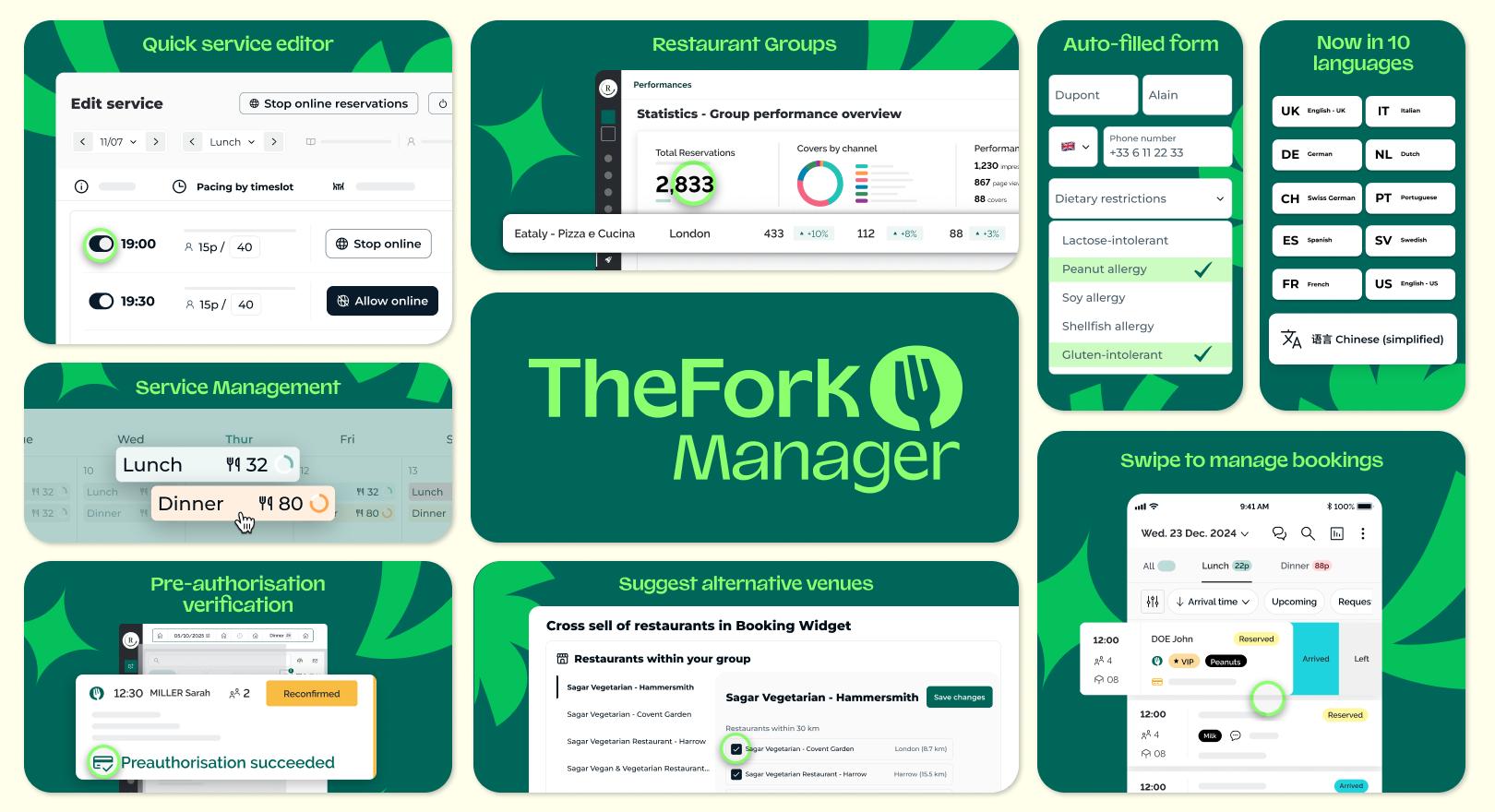
tables that are usually booked out weeks or even months in advance can be reserved,” explains Hooykaas.
Examples include The Lecture Room and Library at Sketch in London, a three-Michelin-starred icon of artful gastronomy, and Albatross Death Cult in Birmingham, celebrated for its cutting-edge culinary flair and vibrant atmosphere.
By opening doors to these soughtafter venues, Hotspots ensures more food-enthusiasts can experience exceptional dining without the usual waitlists.
Recently, TheFork released a suite of powerful new features in its app to streamline operations and provide restaurants with more control than ever before, all whilst maintaining an exceptional experience for diners.
“We’re leaders in no-show reduction for restaurants, and the next layer of that is pre-authorisation for credit cards, combined with credit card guarantees, reconfirmations, and no-show protectors to ensure restaurants’ revenue has been released,” informs Hooykaas.
Equally, the app has introduced The Feed, which adds a highly anticipated social element, allowing diners to discover the latest recommendations
from friends and selected content creators.
Restaurant groups can use the group overview page to track covers, bookings, and performance, making it easier to cross-sell to another restaurant in a group if one is full.
Additionally, the Marketing Toolbox centralises campaigns with smart content, automated setup, and optimised budgets. This is alongside TheFork Manager app, which introduced a new booking form and reservation list optimised for mobile use, making it five times faster and more intuitive.
In addition to these new features, the app is investing heavily in artificial intelligence (AI) and social-led

• Present in 13 countries
• Nearly 60,000 restaurants
• 20+ million reviews
• More than 30 million downloads
• Over 20 million monthly visits
features to transform the way people search and book restaurants.
“AskTheFork’s goal is to revolutionise the current search model through AI integration. We aim to harness the wealth of usergenerated content from our diners, including reviews, photos, and other data like location, pricing, and menus,” breaks down Hooykaas.
“Through advanced AI-powered search, we will deliver highly relevant recommendations.”
Restaurant reservations already thrive on social dynamics, and the app plans to strengthen this further by allowing diners to connect with their contacts via TheFork Social.
People will be able to see restaurants their friends have reviewed and prioritise recommendations from their network.
Additionally, users will be able to follow influencers and other diners, adding credibility to the restaurant experience.
As TheFork looks ahead, its priority is to continue building a truly nationwide marketplace in the UK.
“Following our successful expansion outside of London, we’ll focus on adding the best local gems and top-performing restaurant groups, and expanding our selection of Michelin-starred establishments,” confidently concludes Hooykaas.
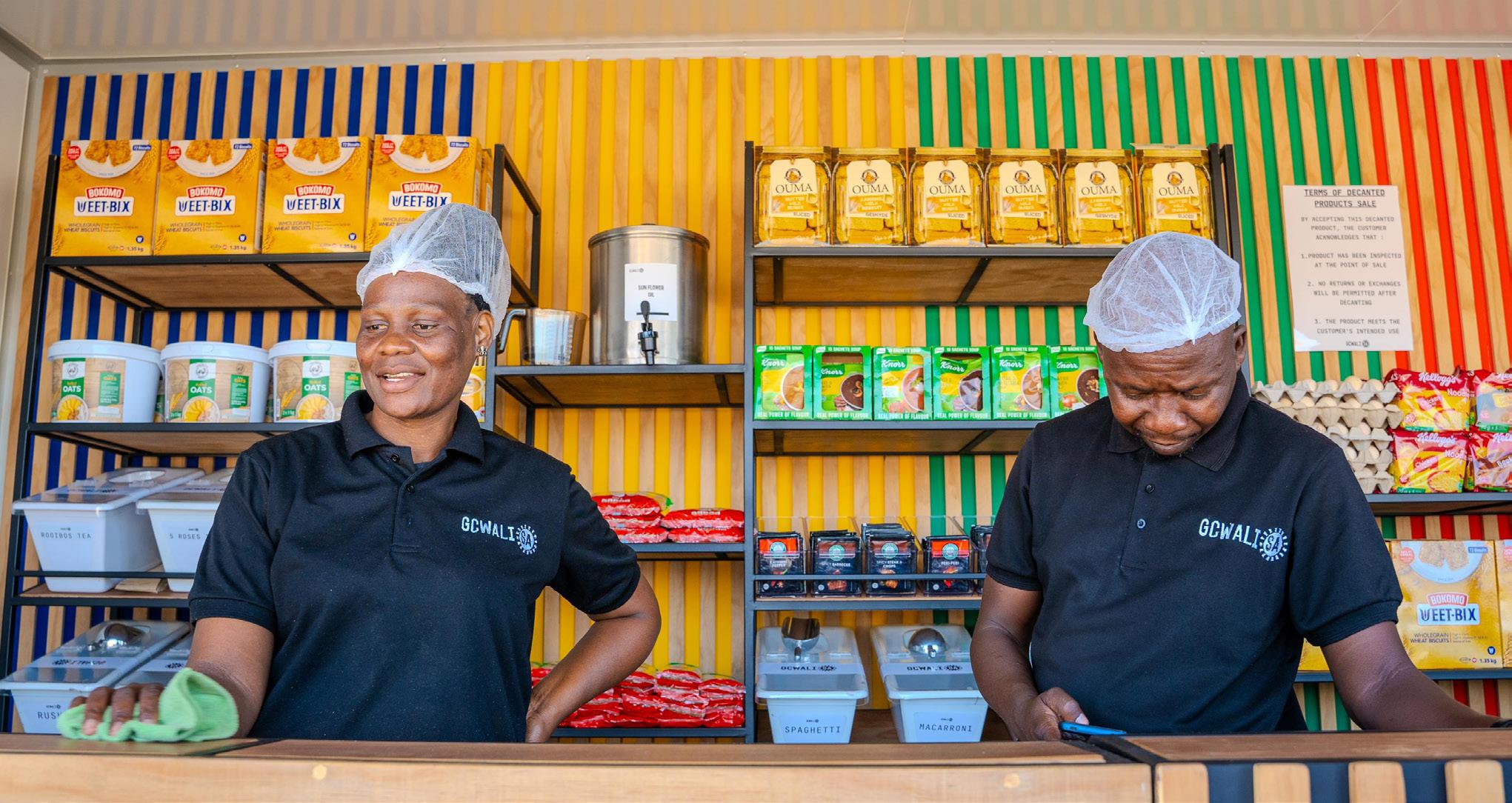
Gcwalisa reimagines a future where food security and sustainability are integral to everyday life, making nutritious food more accessible to lowincome families. Josephine Katumba, Head of Operations, shares insights on how the company works towards this vision
Writer: Rachel Carr
Food accessibility in South Africa (SA) is under increasing pressure, with a complex mix of rising food prices, climate shocks, and structural barriers deepening the crisis.
According to recent data, almost one in five households experienced moderate to severe food insecurity in 2023, with women-led homes
and those relying on social grants disproportionately affected. Meanwhile, food inflation is outpacing income growth, forcing vulnerable families to make difficult choices between nutrition and other basic needs.
The situation is compounded by regional droughts linked to El Niño – a natural climate phenomenon that
threatens harvests and drives up costs – whilst millions of tonnes of food are wasted annually amid high levels of hunger affecting more than 20 million people.
Beyond affordability, deeper systemic issues hinder SA’s ability to achieve lasting food security. Weak infrastructure, insecure land tenure, and limited adoption of modern

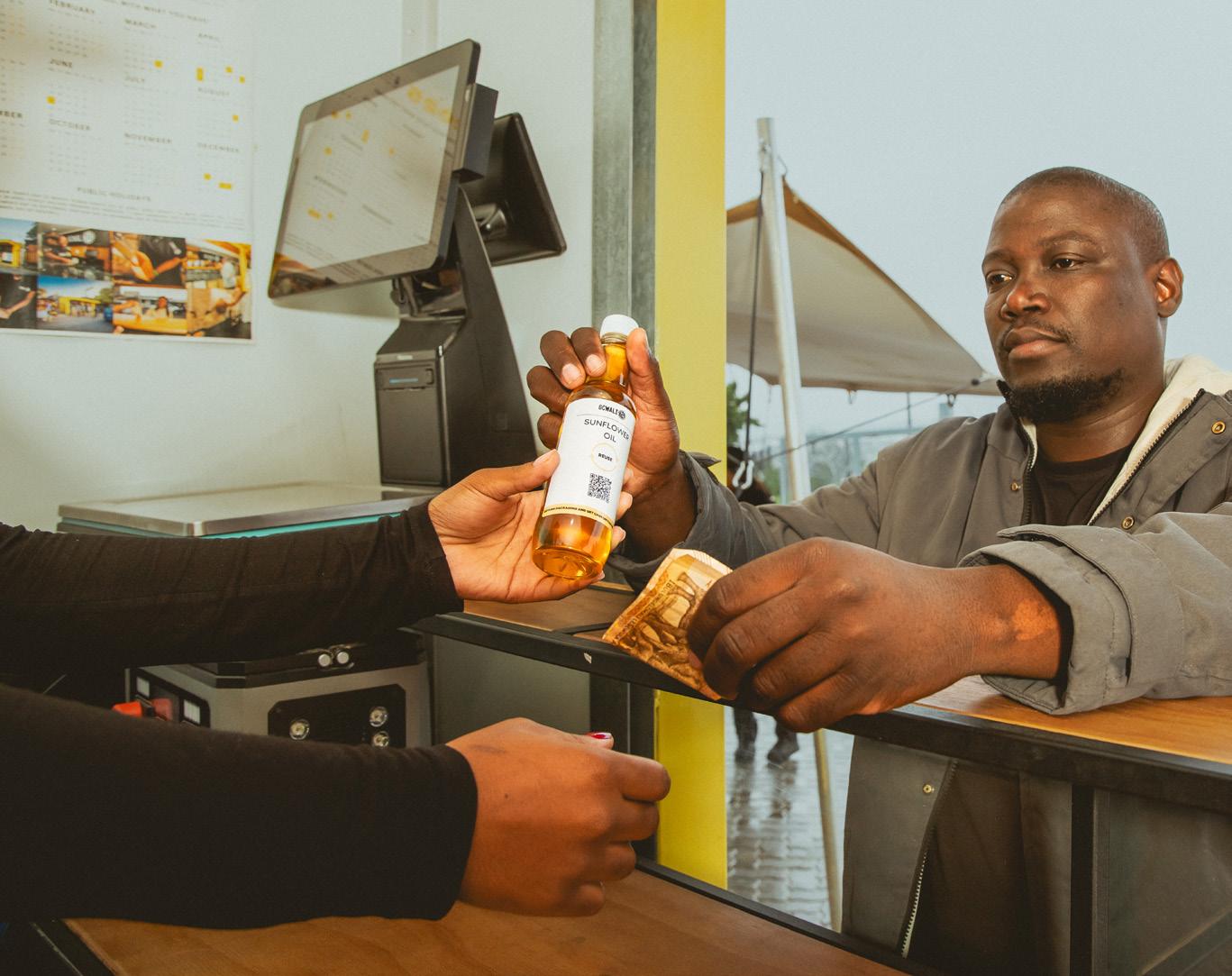
“AT ITS CORE, GCWALISA IS BUILT ON THE PRINCIPLE OF EMPOWERING COMMUNITIES TO ACCESS EVERYDAY ESSENTIALS AT FAIR PRICES, WHILST REDUCING WASTE AND CREATING A MORE EQUITABLE RETAIL SYSTEM THAT PUTS PEOPLE AND THE PLANET FIRST”
– JOSEPHINE KATUMBA, HEAD OF OPERATIONS, GCWALISA
agricultural technologies stifle productivity, whilst restrictive policies complicate climate adaptation. Consequently, food production, access, and distribution remain unequal.
Gcwalisa was conceived during the COVID-19 pandemic as a unique retail outlet aimed at democratising access to nutritious food and essential household products for low-income communities. This approach enables customers to purchase food based on their available funds, rather than adhering to fixed pack sizes.
“Our team witnessed first-hand how communities paid a ‘poverty tax’, forced to buy essentials in smaller, more expensive quantities, leaving families in a cycle of higher costs and limited access to nutritious food. It became clear that something had to
be done to break this inequality,” introduces Josephine Katumba, Head of Operations.
Gcwalisa is a communitydriven retail model that provides affordable and sustainable access to everyday essentials through a refill-andreuse system.
The concept is not new to SA; it was common practice before supermarkets dominated consumer habits, shifting them towards pre-packaged goods. The company draws inspiration from this older model but reimagines it for today’s township economy.
“At its core, Gcwalisa is built


on the principle of empowering communities to access everyday essentials at fair prices, whilst reducing waste and creating a more equitable retail system that puts people and the planet first,” Katumba continues.
At the heart of the business is Gcwalisa’s ‘weigh-and-pay’ model, where customers utilise reusable containers to purchase products by weight, paying only for the exact amount they can afford.
This approach eliminates the poverty tax associated with prepackaged quantities and reduces single-use plastic waste.
By allowing families to buy staples like rice, beans, and cleaning products in flexible amounts, the company

not only makes nutritious food more accessible but also helps stretch household budgets further.
“We reduce the price of food by eliminating costly single-use packaging, which often inflates the

retail price of basic goods. Instead, products are sold unpackaged through a refill system, allowing customers to use their own containers or Gcwalisa reusable ones,” Katumba surmises.
Indeed, the model is building a zero-waste culture in SA by normalising packaging reuse and shifting consumer behaviour away from throwaway plastics.
“Each refill at Gcwalisa is a small step towards reducing plastic pollution in township environments whilst also proving that sustainable solutions can be practical, affordable, and community-led,” she emphasises.
By tackling both affordability and waste, the company demonstrates that economic inclusion and environmental responsibility can be mutually beneficial.
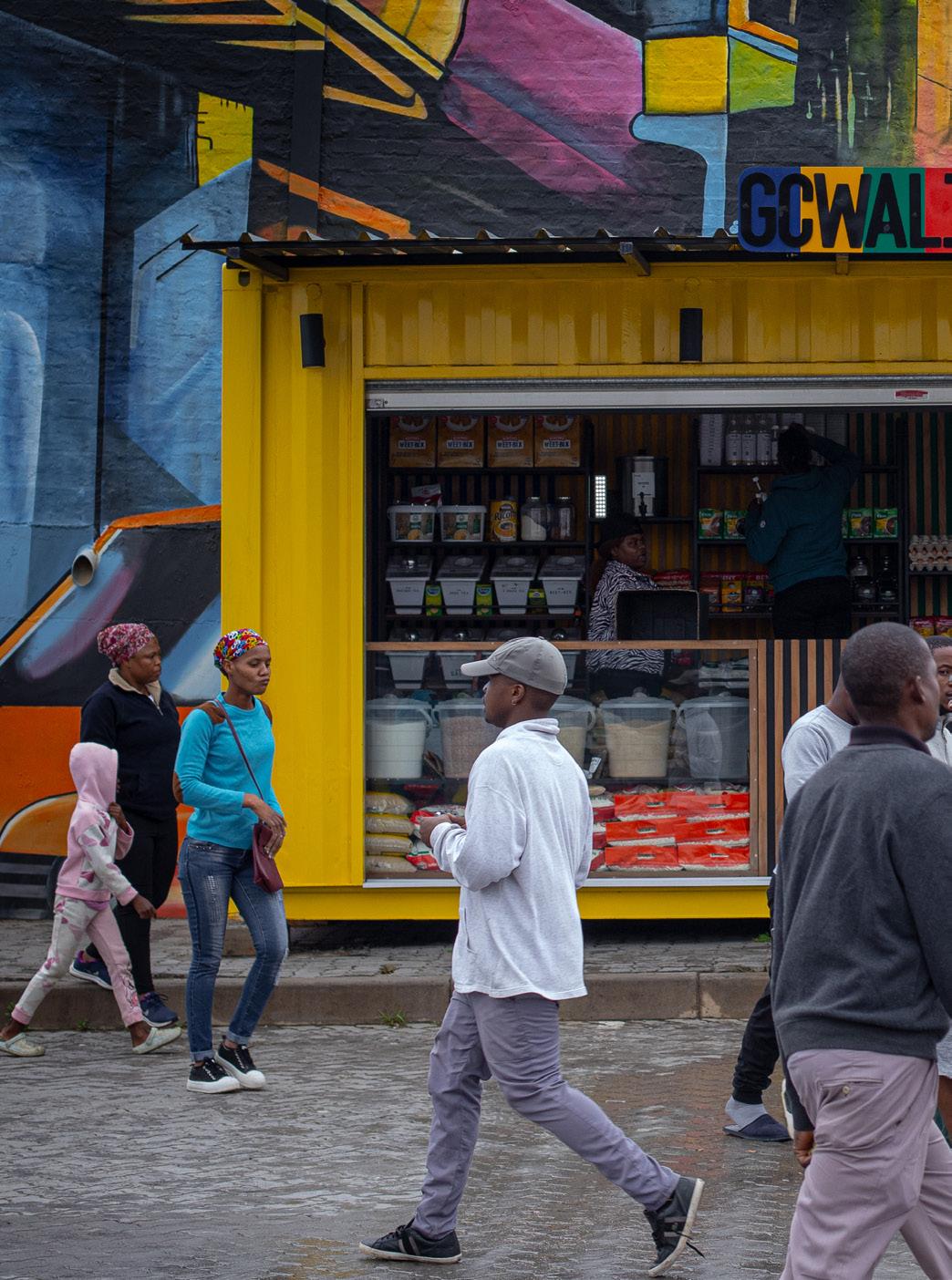
Strategic partnerships with food manufacturers are key to Gcwalisa’s mission of making everyday essentials affordable.
“By collaborating directly with producers, we are able to shorten the supply chain and cut out layers of added cost. This means products can be delivered in bulk to our outlets and sold at a lower price point to customers, without compromising on quality,” explains Katumba.
Manufacturers also benefit by reaching new township markets in a cost-effective manner, whilst innovative packaging and distribution solutions align with sustainability goals.
These partnerships therefore create a win–win – households gain access to cheaper, trusted products
Katumba is a fellow of beVisioneers, a global fellowship that provides training, expert support, and resources to innovators aged 16 to 28 years old, helping them bring environmental projects to fruition.
The programme is designed to remove many of the barriers that aspiring changemakers often face, making it an ideal starting point for a journey towards building impactful, sustainable solutions like Gcwalisa’s.

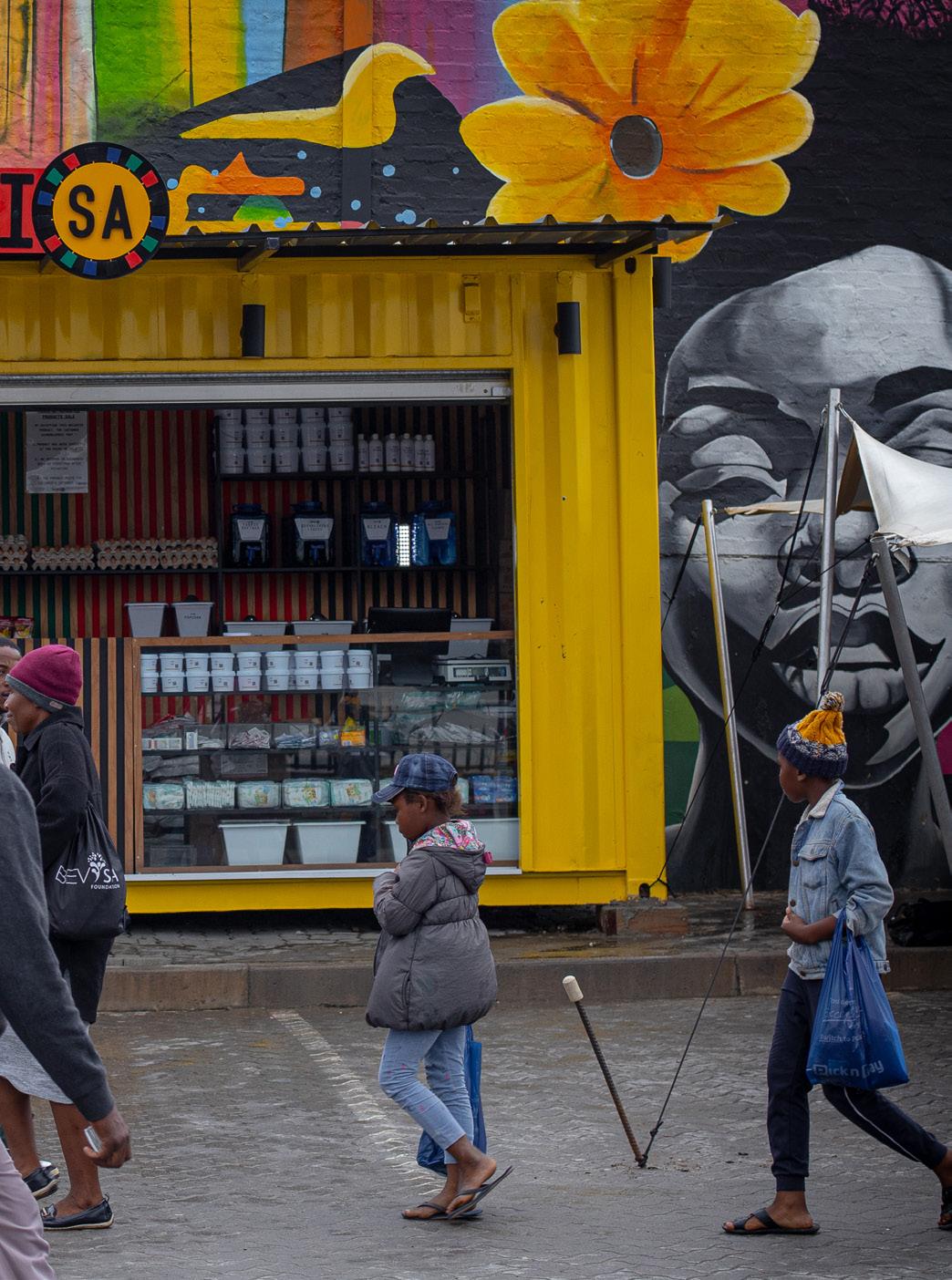
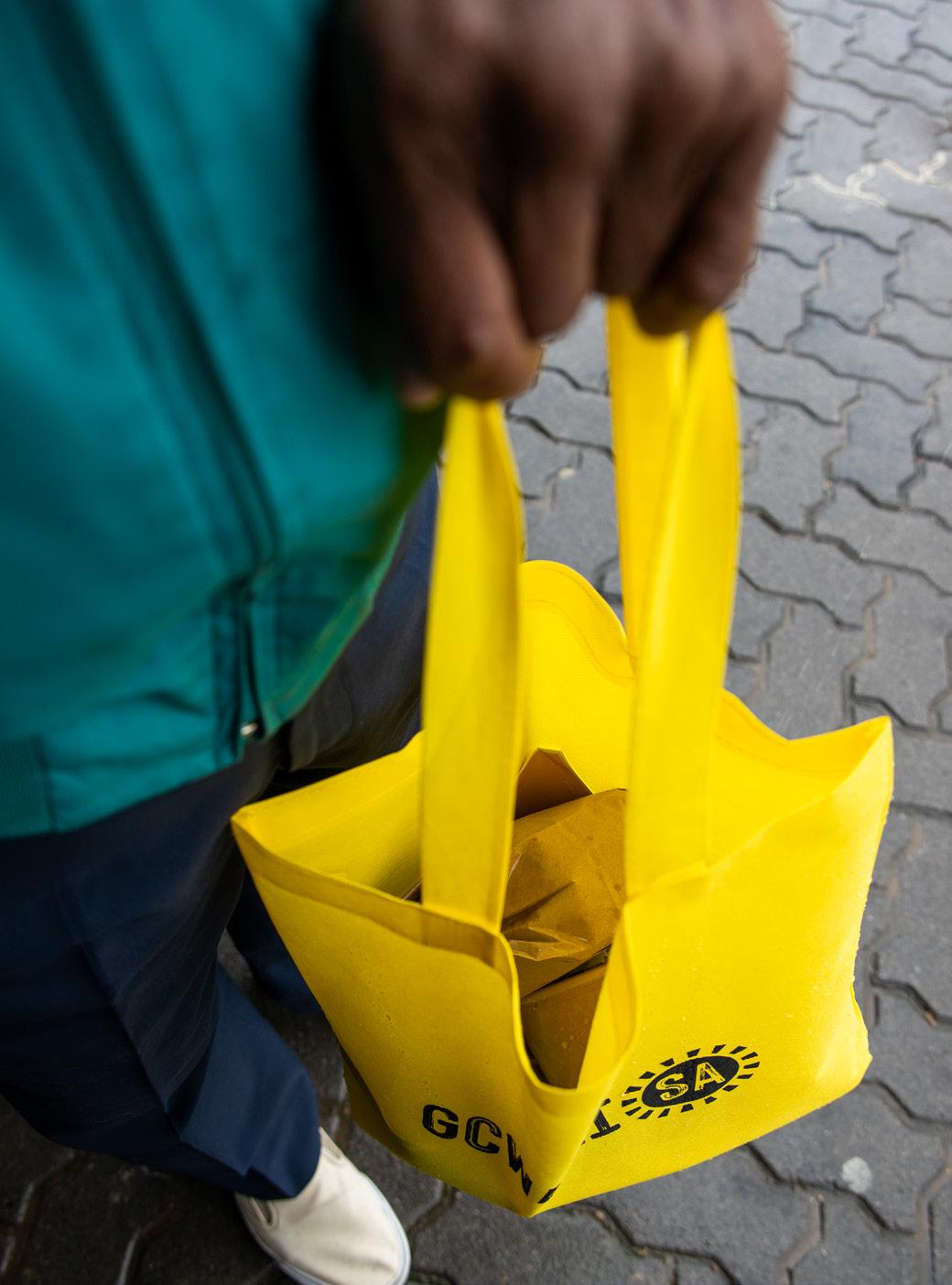

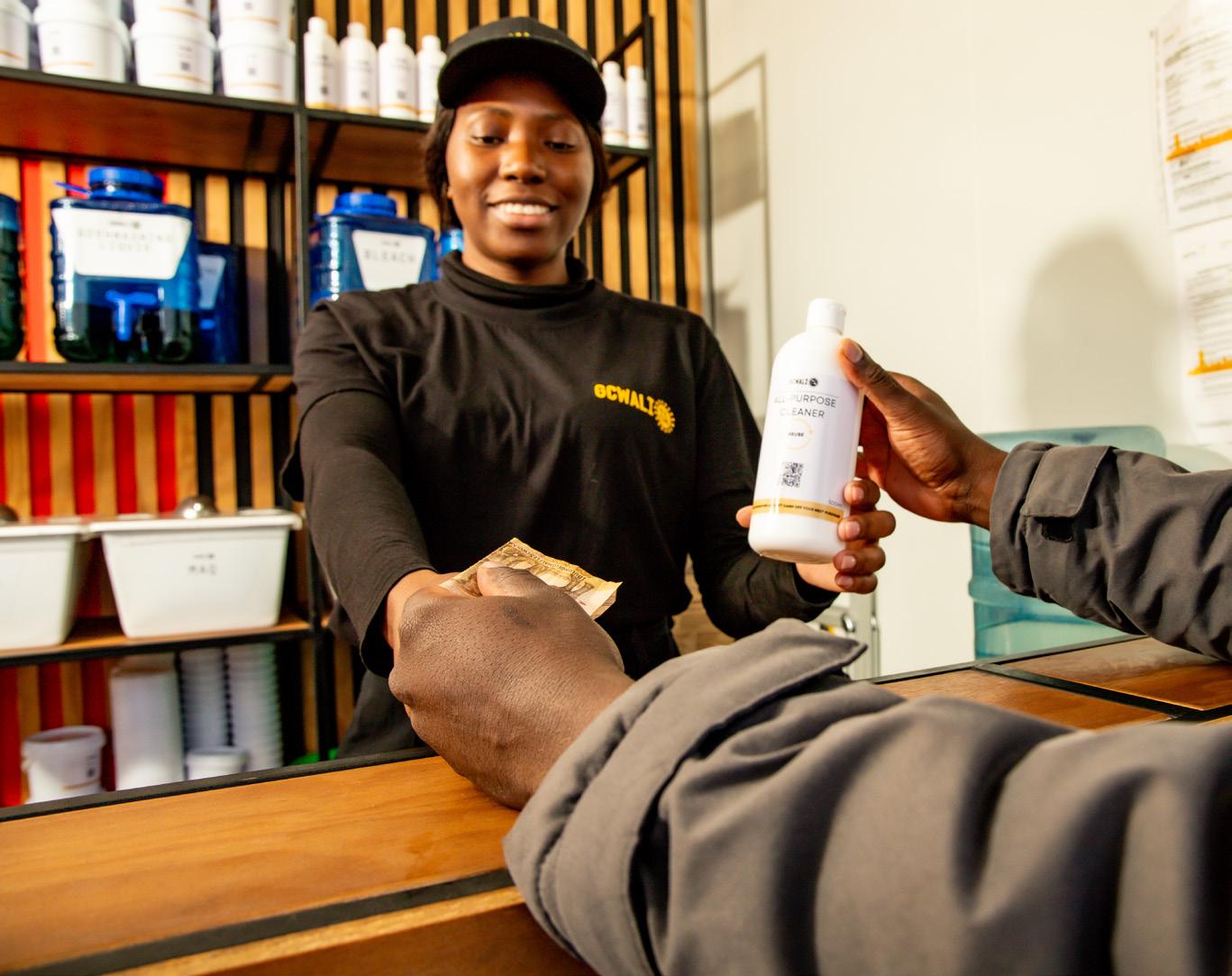
Poverty tax refers to the surcharge paid by lower-income families for staples sold in smaller sizes, which are often the only quantities they can afford at the time.
In SA, this inequality is evident daily across townships and rural communities, where households purchase essentials like maize meal, cooking oil, or washing powder in single-use or small packets that cost significantly more per unit than bulk purchases available in supermarkets.
Combined with higher mark-ups in informal retail outlets and the cost of transportation to larger stores, this poverty tax forces vulnerable families to spend a disproportionately large amount of their income on food, leaving them with fewer options, poorer nutritional quality, and limited opportunities to build financial resilience.
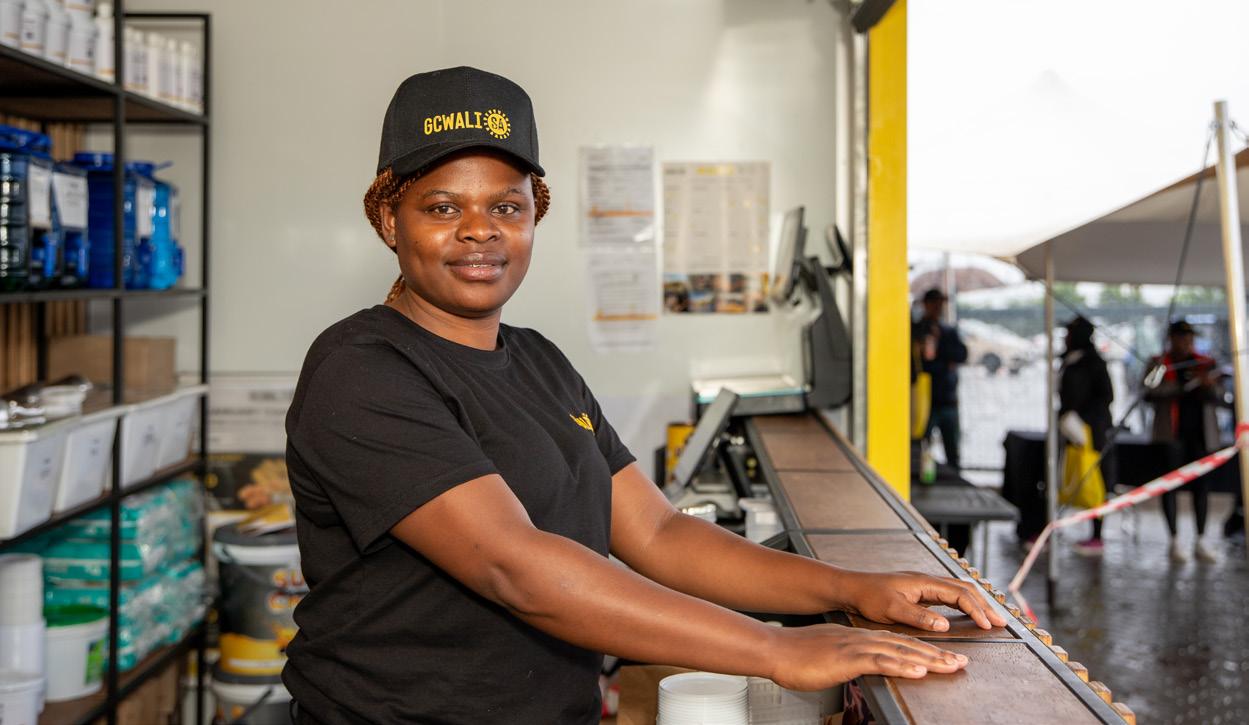
and producers unlock new growth opportunities. Over time, this collaboration helps move the broader retail system towards one that is fairer and more inclusive and responsive to the needs of low-income consumers.
Gcwalisa operates through unique partnerships with community-based organisations (CBOs) who host and run the outlets within their neighbourhoods, ensuring that the business is deeply rooted in the communities it serves, whilst also creating an additional income stream for organisations that are often reliant on donor funding or charity.
“By equipping CBOs with training, stock, and the Gcwalisa model, we empower them to become retail operators, generating sustainable revenue to support their social missions,” outlines Katumba.
“In return, the company benefits from the trust, local knowledge, and networks that these organisations already hold within their communities, which help build customer loyalty and ensure smoother operations on the ground.”
The result is a symbiotic relationship where CBOs gain financial resilience and independence, and Gcwalisa is able to expand its footprint in a way


“BY INTRODUCING A TRUSTED, NUTRITIOUS PRODUCT LIKE CEREVITA INTO OUR WEIGHAND-PAY SYSTEM, NESTLÉ NOT ONLY REACHES UNDERSERVED CONSUMERS BUT ALSO VALIDATES OUR MODEL”
–
that is community-led, inclusive, and sustainable.
Two recent projects highlight how Gcwalisa is scaling both its impact and capabilities.
Firstly, the reuse pilot, conducted in collaboration with the German Agency for International Cooperation (GIZ) and Circular City Labs in Alexandra, tested Gcwalisa’s refill and reusable packaging model.
“Customers were encouraged to return and reuse containers, helping us measure real-world behaviour change and build the foundations of a circular economy at the township level,” Katumba prides.
“The success of the initiative not only reduced plastic waste but also empowered local young women who were trained as ambassadors, reinforcing
our commitment to both environmental and social impact.”
The pilot’s outcomes have since secured additional investment and positioned Gcwalisa as a practical case study for reuse in SA.
“Additionally, we are collaborating with Nestlé to test the Cerevita cereal range through Gcwalisa outlets. This partnership is particularly significant because it highlights the appeal of township refill retail to global brands and signifies a step forward in connecting local communities with reputable products,” she reports.
“By introducing a trusted, nutritious product like Cerevita into our weigh-and-pay system, Nestlé not only reaches underserved consumers but also validates our model.”
It also signals a breakthrough in elevating the Gcwalisa brand, strengthening its supply chain, and demonstrates
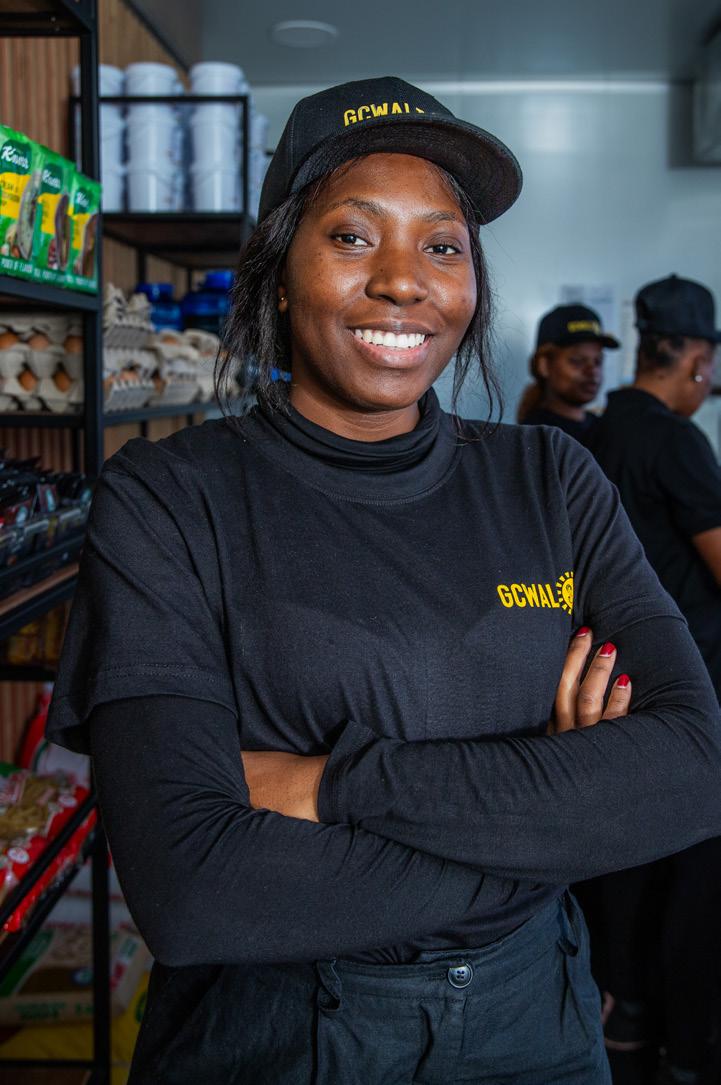
that large-scale players can align with inclusive, community-driven retail solutions.
“Our key priority is to strengthen and expand our team, ensuring we have the right talent and leadership to scale our vision. A resilient team will help us manage growth, enhance community partnerships, and drive innovation,” she specifies.
However, Gcwalisa’s immediate goal is to extend to 25 outlets in Alexandra, illustrating how the refill-and-reuse model can transform access to affordable, nutritious essentials at a community-wide level.
“The Alexandra expansion will improve our reach and impact, generate new jobs, create additional income streams for local organisations, and further prove the viability of inclusive, township-based retail.
“At the same time, we will continue to cultivate partnerships with manufacturers and funders, building the foundations to implement this model beyond Alexandra and into other townships across SA,” Katumba passionately concludes.
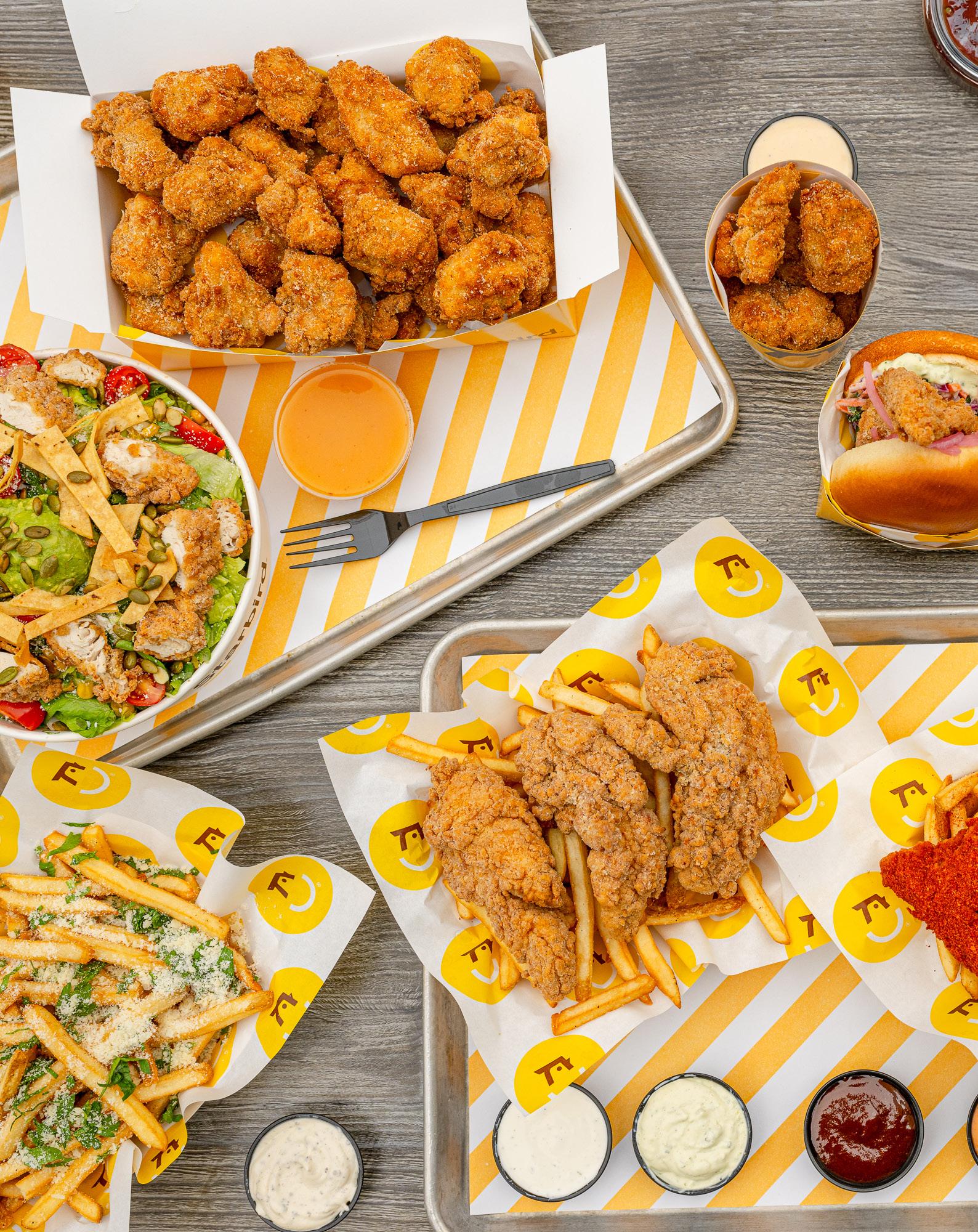
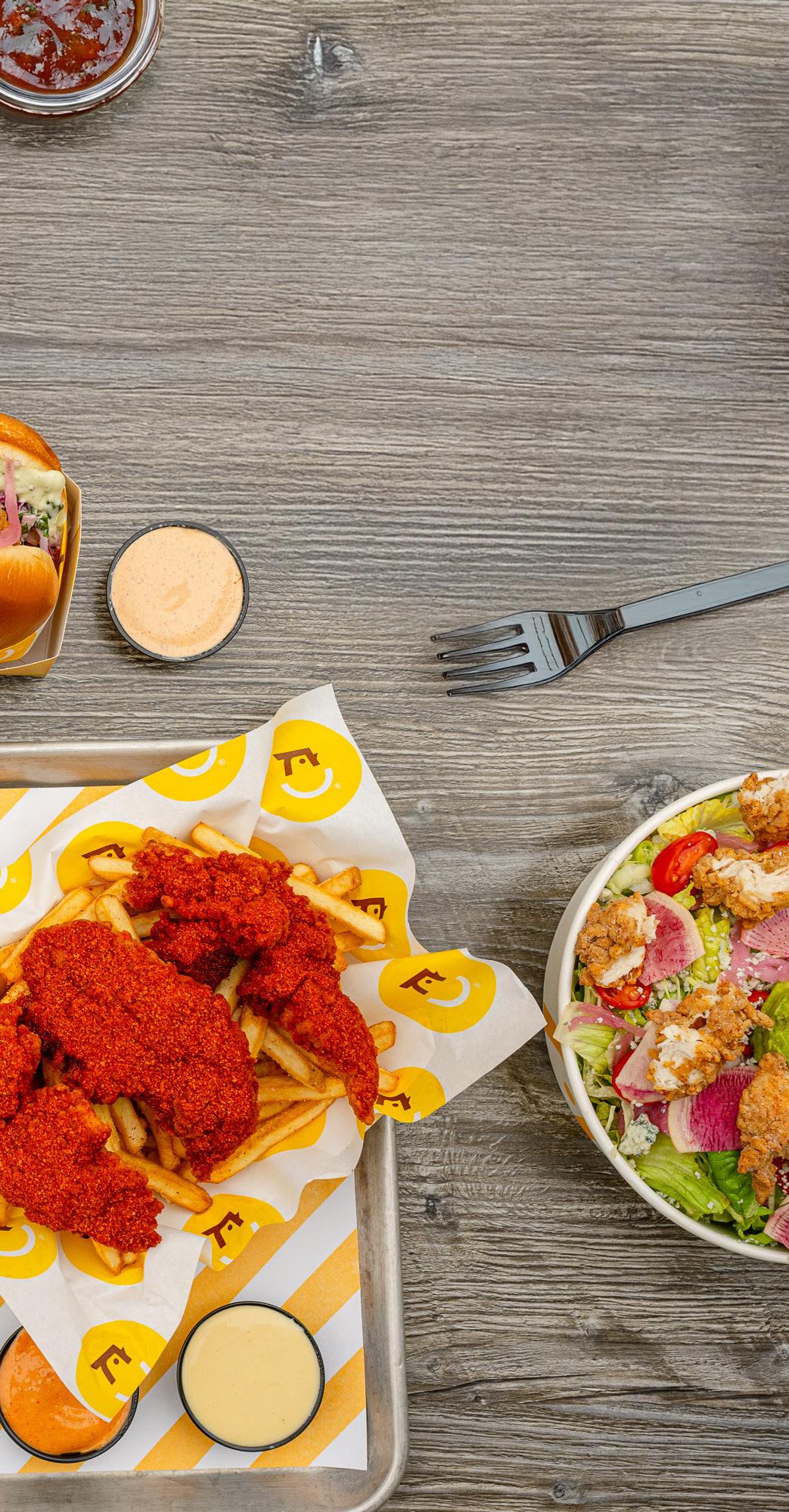

Starbird, the award-winning, super-premium fast-food concept redefining quick service, is officially expanding beyond its California roots. We find out more about the opening of its first out-of-state location in Denver with Director of Marketing, Casey Hilder
Writer: Jack Salter
Starbird created and leads the super-premium fast-food space. It’s about so much more than trends to us – it’s about redefining the category.”
Founder, Aaron Noveshen, launched Starbird in 2016 with The Culinary Edge to create the nation’s first super-premium fast-food concept within the $34 billion US chicken market.
Long before opening, the company was obsessed with perfecting its crispy chicken.
“Too often, fried chicken was heavy, greasy, and one-note. We believed it could be reimagined and that’s what our guests are now able to enjoy!” acclaims Casey Hilder, Director of Marketing and orator of the opening statement.
“Our food stands on its own. It’s never raised with antibiotics or treated with hormones, never frozen chicken, and always hand-breaded with our proprietary gluten-free flour and spice blend.”
Casey Hilder, Director of Marketing: “In California, we’ve donated more than 5,500 meals through our Gift a Meal partnership with local food banks. As we enter Denver, that commitment continues through partnerships with Food Bank of the Rockies.
“We also host ‘Dine and Donate’ events, teacher appreciation initiatives, and community meal donations, embedding charitable giving into the DNA of the brand.
“Wherever we grow, our goal is the same – to build community, support local causes, and make a lasting impact on our team members and guests.”
The result is a lighter, crispier, and more craveable product. Layer on chef-driven recipes, bold flavors, and tech-enabled ordering like mobile, kiosk, and pick-up cubbies, and guests no longer have to choose between quality and convenience.
“We’ve proven fast food can be elevated, and both consumers and the industry are taking notice,” Hilder tells us.
In 2024, Starbird grew its corporate footprint across California by 60 percent with new openings in Cupertino, Pleasanton, Palo Alto, Marina del Rey, and South San Francisco, the latter a record-setting opening weekend.
Today, it operates 19 locations and employs nearly 500 team members, with a growing corporate team supporting both company-owned and franchised expansion.
“On the franchise front, we’ve signed four agreements totaling over 30 committed locations in Denver, Seattle, Salt Lake City, and Chicago,” shares Hilder.
“These are powerhouse markets that set the stage for Starbird’s next chapter of growth. We’re not


On 15th September, Starbird will open its first out-of-state restaurant in Denver on Colorado Boulevard, a major milestone for the brand.
This location is the first of seven restaurants being developed in partnership with Whiplash Holdings, a Denver-based hospitality company with deep ties to the community.
The Denver opening has already generated strong buzz in the local media and food scene, building momentum even before the doors have opened.
“We’re entering Colorado with more than just food. We’ve partnered with Food Bank of the Rockies through our Gift a Meal program, and we’re working with the Denver Children’s Foundation to support its community initiatives,” Hilder reveals.
“From day one, we want to be a brand that contributes as much as it serves.”
Denver is a city that values innovation, wellness, and high-quality food experiences, which makes it a natural fit for Starbird.
“We wanted our first out-of-state market to be intentional, and Denver checks every box,” notes Hilder.
scale – we’re building proud of, one market at a time, with valuesaligned partners and a focus on operational
Partnering with Whiplash Holdings was another key factor as CEO Daniel Wagner and his team immediately recognized Starbird’s potential after experiencing the brand in San Francisco and committed to bringing it to Denver with seven new restaurants planned.
“They are best-in-class operators and the perfect fit for the first launch outside of California.
“Denver is just the start. With additional development underway in Seattle, Salt Lake City, and Chicago, we’re laying the groundwork for a strong national footprint,” Hilder affirms.
While opening its first restaurant in the heart of Silicon Valley, technology has been central to Starbird since day one.
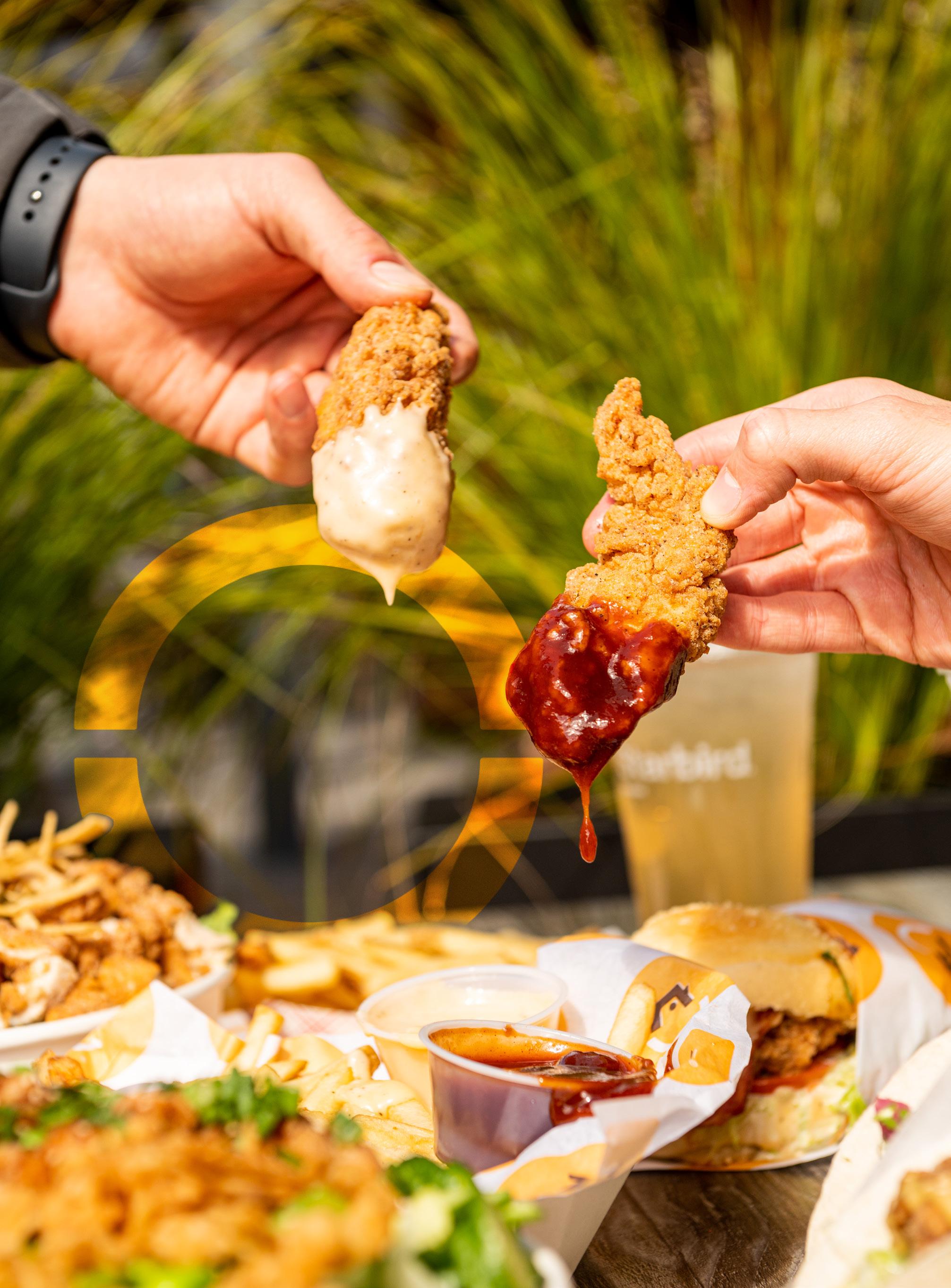
“WE WANTED OUR FIRST OUT-OFSTATE MARKET TO BE INTENTIONAL, AND DENVER CHECKS EVERY BOX”
– CASEY HILDER, DIRECTOR OF MARKETING, STARBIRD
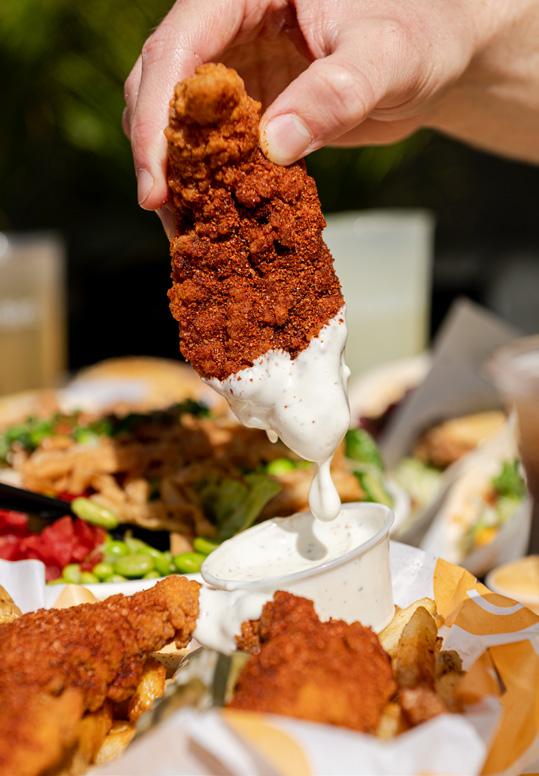
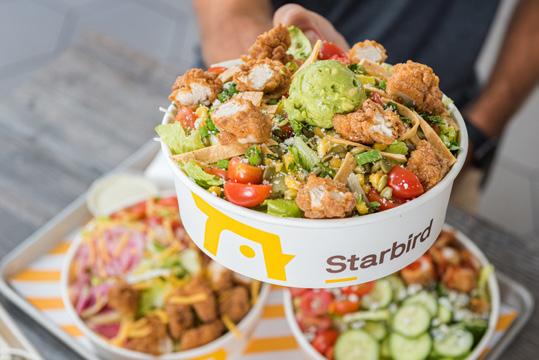
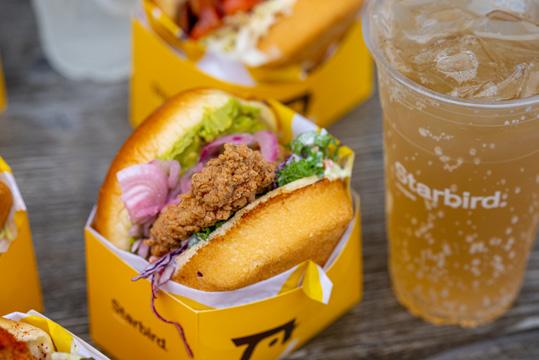
The company’s loyalty app, kiosks, and pick-up shelves create a frictionless guest experience and allow it to serve modern diners the way they want.
“Our kiosk and mobile app experiences allow for complete customization of products and give guests a better understanding of their options at Starbird,” Hilder outlines.
“However, technology alone doesn’t define us; pairing it with uncompromising food quality is
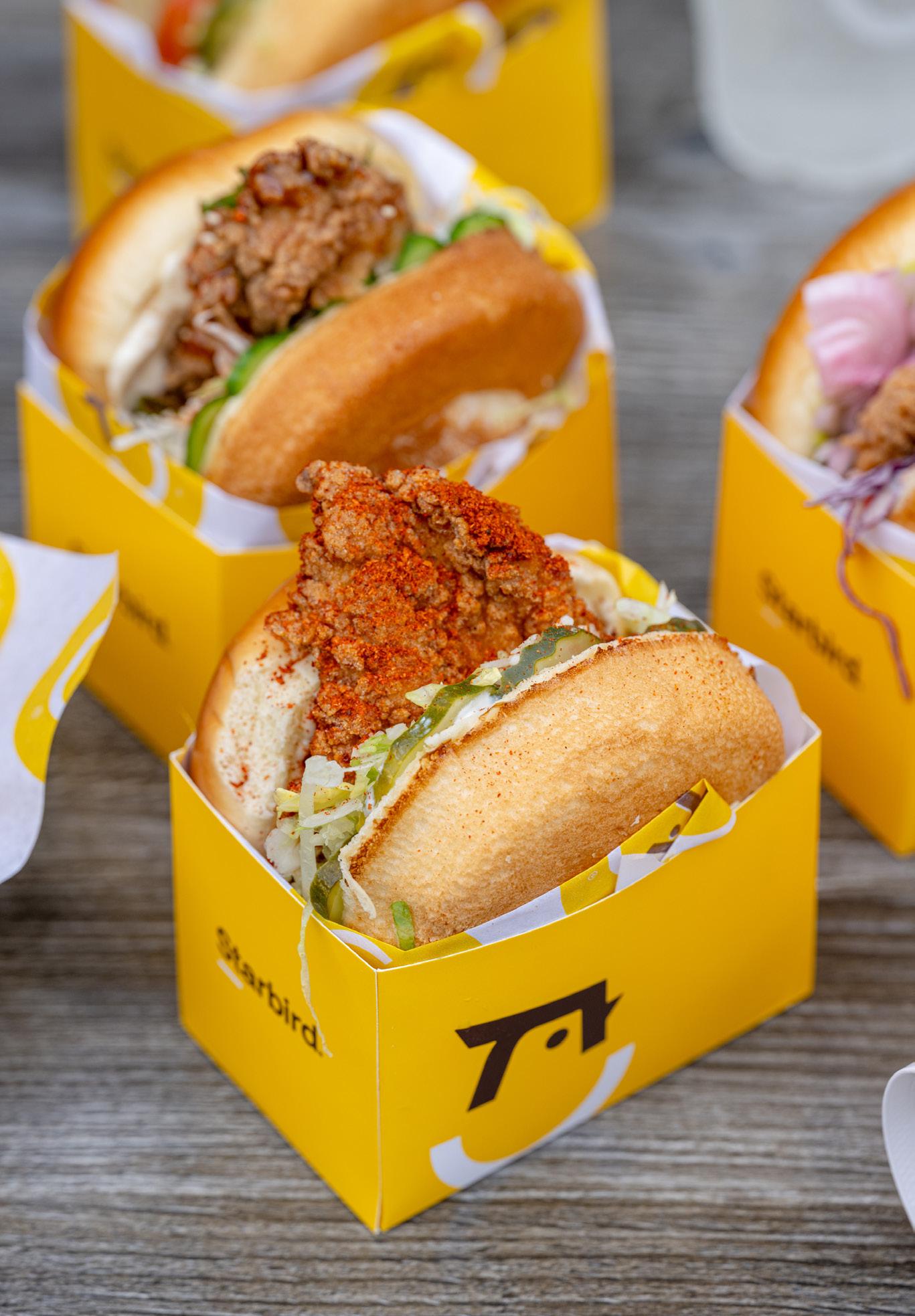
where we’ve set ourselves apart. Our recipes and packaging have been tested and engineered to hold up during delivery, so our chicken tenders or salads taste just as good at home as they do in the restaurant.”
This combination of digital-first convenience and culinary integrity is how Starbird is setting new standards for the category.
Denver will be quickly followed by a
second Colorado restaurant in Castle Rock, deepening Starbird’s presence in the market.
Beyond Colorado, its franchise agreements include 17 locations in Seattle, five in Salt Lake City, and five in Chicago, with more to come in the near future.
“Each of these markets reflects significant demand for premium chicken and tech-enabled dining,” insights Hilder.
To support this growth, Starbird
“STARBIRD CREATED AND LEADS THE SUPER-PREMIUM FAST-FOOD SPACE. IT’S ABOUT SO MUCH MORE THAN TRENDS TO US – IT’S ABOUT REDEFINING THE CATEGORY”
– CASEY HILDER, DIRECTOR OF MARKETING, STARBIRD
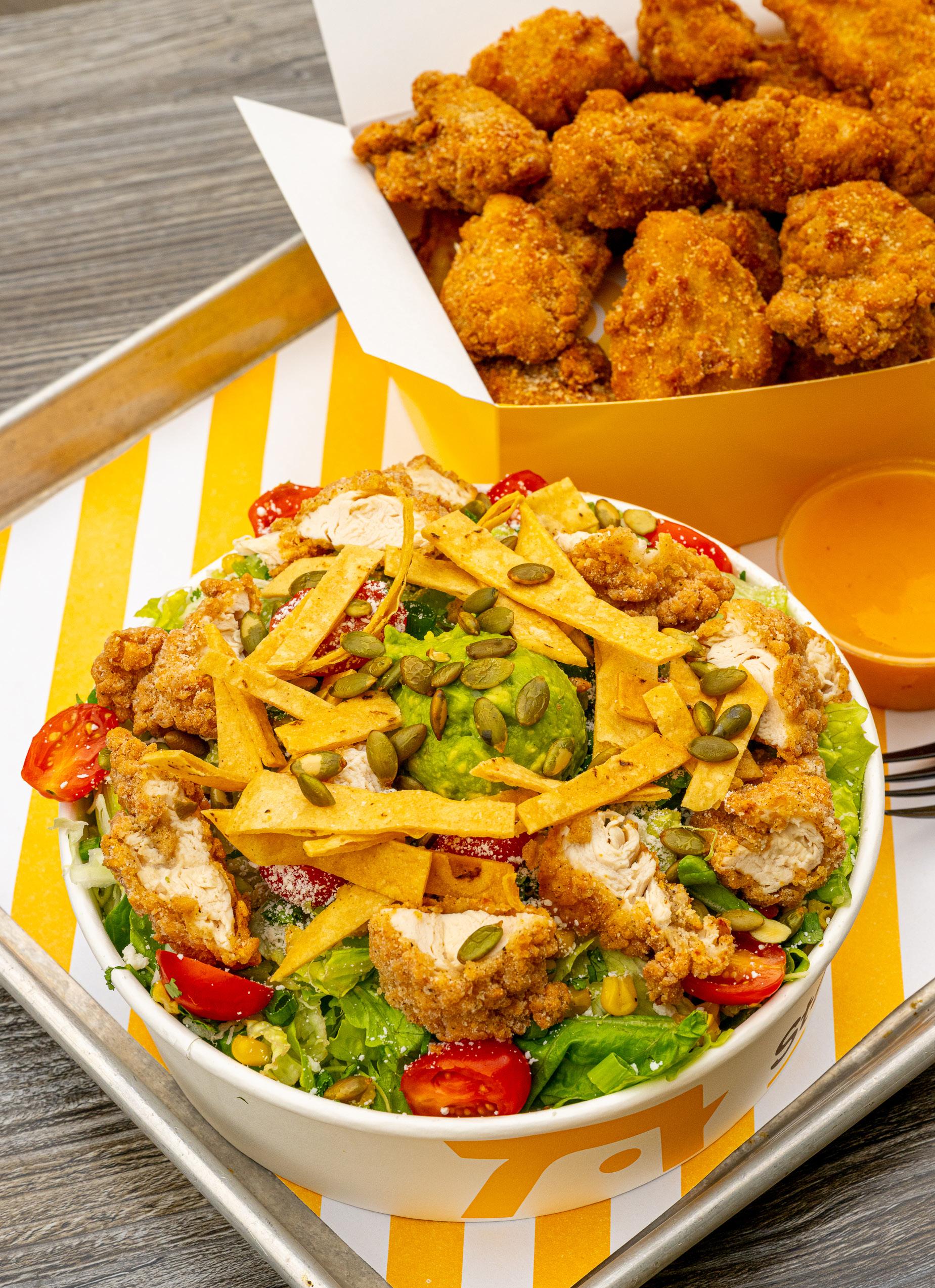
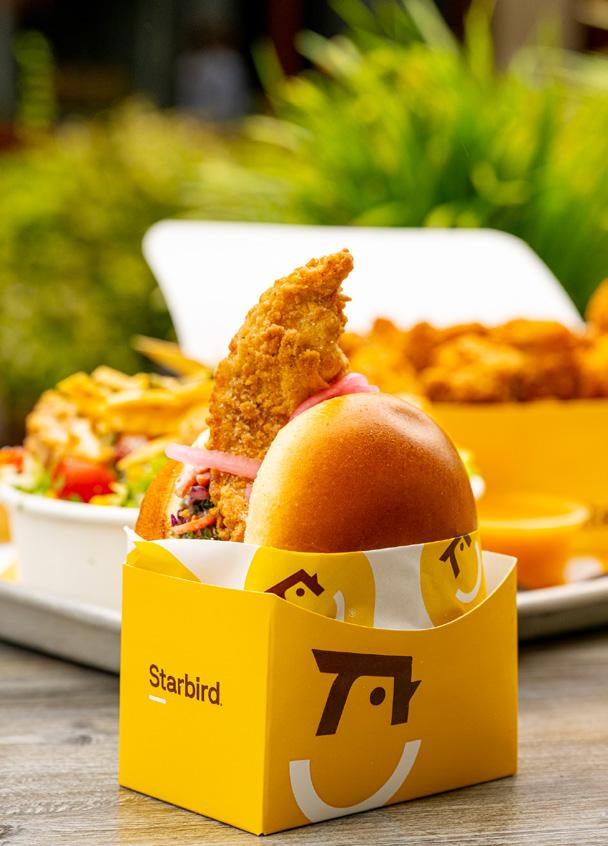
hired Brian Carmichall as Vice President of Development last year.
Charmichall oversees both corporate and franchise development, ensuring that every opening, whether in California or beyond, maintains the integrity of the Starbird experience.
“These investments in leadership, operations, and development are paying off, positioning us to scale with quality,” Hilder emphasizes.
Sustainable, values-driven growth is Starbird’s priority, scaling in a way that maintains the quality of its food and consistency of the guest experience.
That includes partnering with experienced multi-unit operators who share the company’s vision, expanding into markets where Starbird will resonate, and continuing to evolve its menu with bold, fresh flavors.
Just as important is culture, supporting its employees and building a people-first approach as Starbird grows into new regions.
“We’re not only opening restaurants but setting the tone for the next era of fast-food,” closes Hilder.

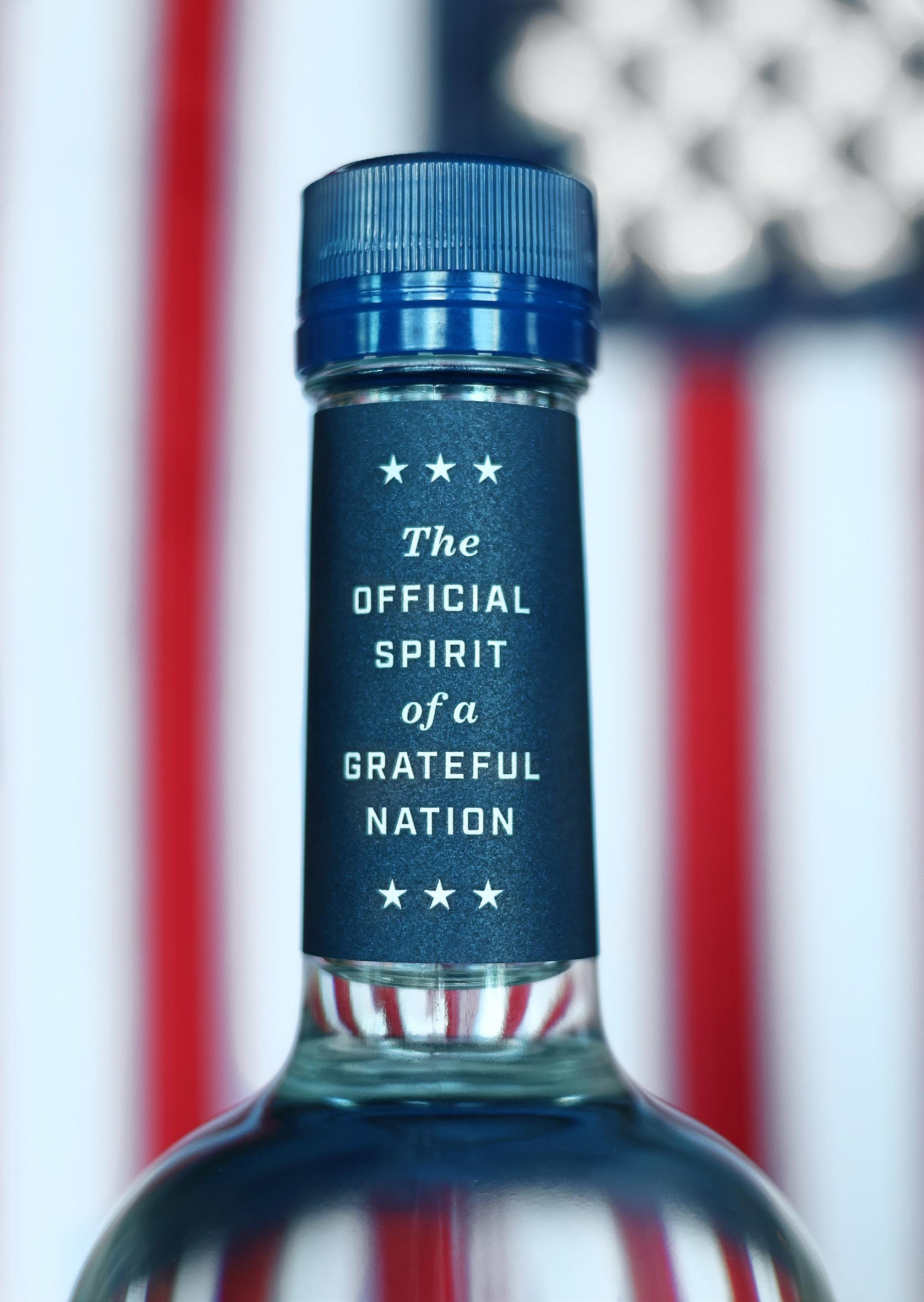
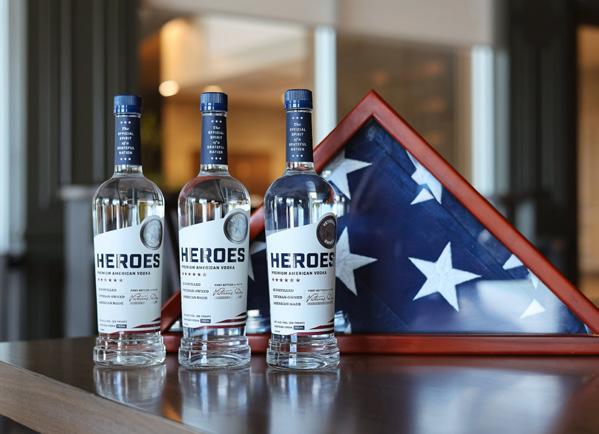
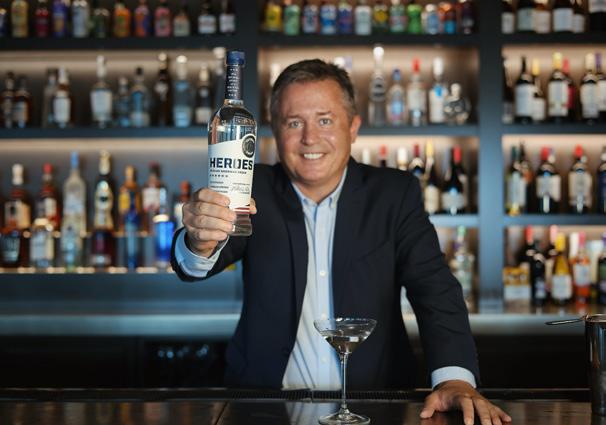

As the official spirit of a grateful nation, Heroes Vodka is on a mission to provide exceptional taste and superior value to consumers, while honoring those who serve, protect, and perform outstanding work.
We get the full story from Trisha Cancilla, Vice President of Marketing and Brand Strategy at R.S. Lipman Company
Writer: Ed Budds
Heroes Vodka was founded in 2009 by Travis McVey, a US Marine Corps Veteran who proudly served as a Presidential Honor Guard from 1989 to 1992.
As a fearless serviceman, as well as an innovative and determined entrepreneur, McVey endured the life-changing tragedy of losing a good friend in combat during the War on Terror in Afghanistan.
The harrowing experience paved the way for McVey to embrace the American dream of owning a business that would enable him to continue to serve his country from home.
McVey’s founding vision was to develop a brand that partners with well-known Veteran organizations to assist them in getting ex-soldiers the care they deserve. With Heroes Vodka, his dream has proudly become a reality.
Heroes Vodka was first bottled on November 11th 2011 on Veterans Day –11.11.11 – a special date that occurs only once in a century and epitomizes the rarity of this event.
As the ‘Official Spirit of a Grateful Nation’, the company’s mission is to provide exceptional taste and superior value to consumers, while

honoring heroes who serve, protect, and perform outstanding work in their communities.
The brand was created to give back to heroes who sacrifice their time –and often lives – for their country.
Today, Heroes Vodka is a part of the R.S. Lipman Company (R.S. Lipman), a Nashville-based international supplier of wines, spirits, beers, and mixers who, in 2009, began producing Lonely Cow Wines, thereby laying the groundwork for building a diverse alcoholic beverage portfolio.
As such, R.S. Lipman gives 10 percent of Heroes Vodka’s profit back to three carefully selected Veterans charities – Night Stalker Foundation, The Legion Fund, and Team Red, White & Blue.
“To date, we have given over a quarter of a million dollars, excluding the in-kind donations we make to various other organizations that support local heroes,” introduces Trisha Cancilla, Vice President of Marketing and Brand Strategy at R.S. Lipman.
Consumers can usually tell when a company takes shortcuts in favor of increasing its bottom line and decisions like this can kill the brand and cause detrimental effects.
Heroes Vodka understands that if you have a high-quality product and are persistent in sharing the story of the brand, it will resonate with the right consumers; it may take longer, but those are the companies with staying power.
“Quality, perseverance, and integrity are the winning combination to longterm success in this industry. While you can see fads come and go, the brands that stand the test of time are high-quality products with a reason for being,” she explains.
National Heroes’ Day is celebrated each year on October 8th in the US and has been observed since 2020.
“This is an occasion that honors real-life heroes and recognizes that the title of ‘hero’ can be given to many other individuals outside of the armed forces,” Cancilla acclaims.
“A hero is also the teacher who stays after school to make sure the student understands the text. It includes the doctors who go above and beyond to ensure their patients get the best care possible, or the first responder that takes care of local emergencies.
“There are so many types of heroes, and we want to honor and recognize each of them.”



Cancilla has also been integral to envisioning The Legacy Project, an initiative by Heroes Vodka which honors a new hero each year alongside supporting a charitable initiative of their choosing.
The nominated hero also appears on the packaging on the back of each bottle of Heroes Vodka.
“I realized we could use the bottle itself to expand our giveback by changing the hero on the back label annually, allowing us to highlight real, individual heroes from across the country,” she excites.
Looking ahead, Heroes Vodka has numerous plans in place to develop its efforts to give back by expanding its fundraising events and range of merchandise.
“We are planning to launch the Heroes Hall of Fame to provide a platform that enables consumers to support charities serving heroes of all types.
“QUALITY, PERSEVERANCE, AND INTEGRITY ARE THE WINNING COMBINATION TO LONG-TERM SUCCESS IN THIS INDUSTRY. WHILE YOU CAN SEE FADS COME AND GO, THE BRANDS THAT STAND THE TEST OF TIME ARE HIGHQUALITY PRODUCTS WITH A REASON FOR BEING”
– TRISHA CANCILLA, VICE PRESIDENT OF MARKETING AND BRAND STRATEGY, R.S. LIPMAN COMPANY

“Over the next 12 months, we will additionally launch our first Legacy bottle, honoring a new hero while also unveiling a new additional charitable partner for the year. We are very excited to continue honoring our heroes of the armed forces and beyond,” Cancilla concludes.
With an innovative and ambitious pipeline of projects on the horizon, the company strives to be remembered as the great-tasting vodka that honors those who have dedicated their lives to helping others.


With the sun setting earlier, leaves changing into vibrant shades of red, and wisps of winter whispering through the now-barren branches, autumn is the perfect time to bundle up with a quenching drink and bask in the beauty of the changing season. We raise our glasses and explore new beverages sure to put a fire in your belly
WRITER: LAUREN KANIA

ROEBUCK ESTATES – CLASSIC CUVÉE 2019
There’s no better way to embrace the changing of the seasons than with an elegant sparkling wine that’s been aged to perfection.
That is exactly what the leading English sparkling wine producer, Roebuck Estates, is proudly offering with the latest addition to its
acclaimed classic collection – Classic Cuvée 2019.
With a clear vision of crafting exceptional vintage sparkling wines every year from its collection of vineyards throughout Sussex and Kent, Roebuck Estates’ Classic Cuvée 2019 comprises carefully selected bunches of Pinot Noir, Chardonnay, and Pinot Meunier grapes that were
gently whole-bunch pressed, with a small proportion partially fermented in aged Burgundian oak barrels, followed by extended bottle ageing to impart a unique depth, richness, and complexity.
Pop open a bottle to experience delicate bubbles and a vibrant acidity that leads to a long, beautifully balanced finish.

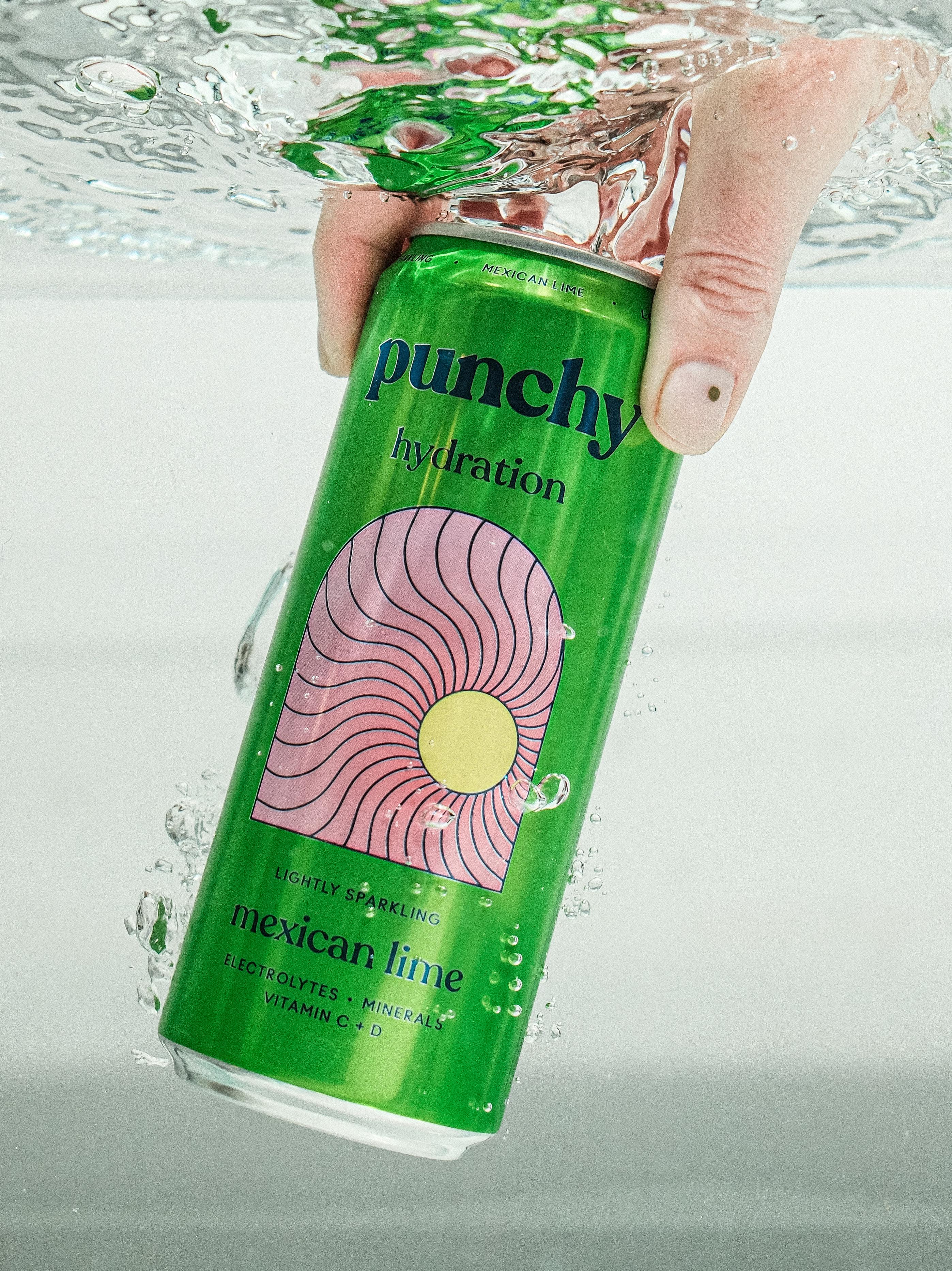
Join the refreshment renaissance and rewrite the rulebook on soft drinks by diving into a brighter, bubblier future.
Powered by sunshine and myriad health benefits, Punchy Hydration is as good for you as it is delicious, offering a lightly sparkling drink made with real fruit, electrolytes, vitamins C, D, B3, B6, and B12, and minerals.
This low-calorie, caffeine-free drink boasts a game-changing wellness blend that aids its consumers’ muscle function, supports immunity, and is even vegan.
With many finding it a struggle to meet daily water quotas, Punchy Hydration’s range is the perfectly supercharged way to meet our body’s hydration needs.
Present in thousands of stores across the UK, it’s time to drink up and feel punchy, all whilst taking care of all your hydration in one tasty, satisfying can.
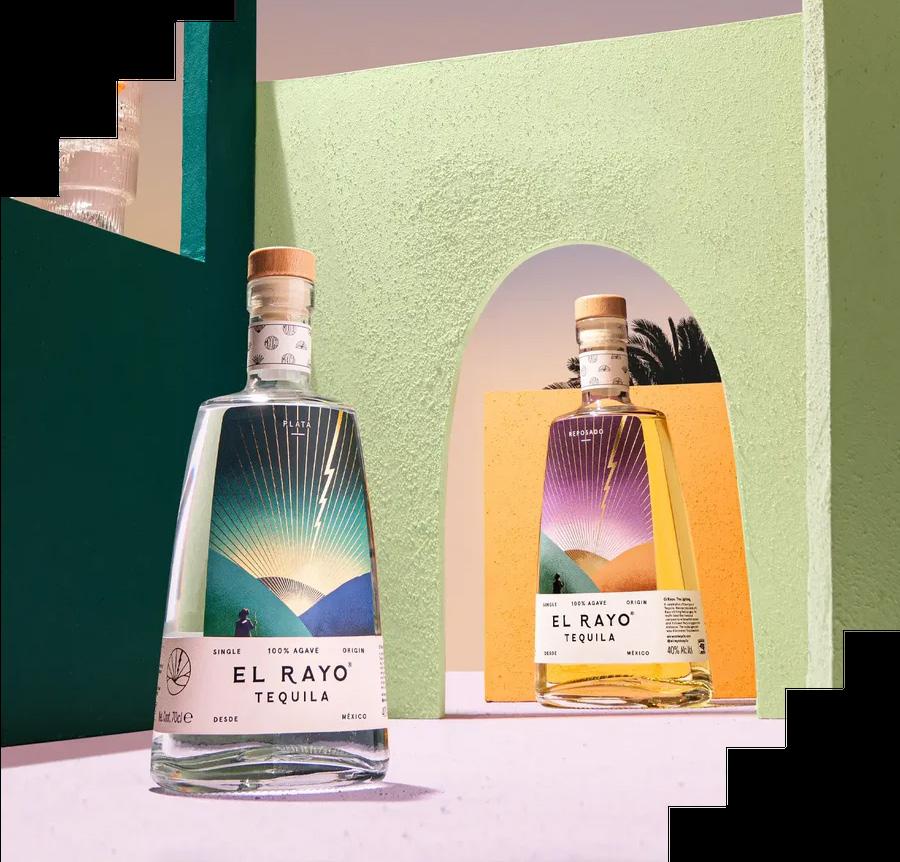
Forgo the lime, salt, and regret, and embrace tequila made for tonic, grapefruit, and good times. El Rayo Tequila offers a one-of-a-kind taste that’s clean, light, and smooth yet also vibrant, fresh, and zingy. Those who venture a sip will enter a whole new era through a drink that lets you start your night, not end it.
Made from only 100 percent natural Blue Agave, which spends eight years in the Mexican sun soaking up a rich flavour from the Los Altos soil, this tequila and tonic (T&T) is authentically Mexican, carefully crafted, and extremely drinkable.
Produced with award-winning Plata, crisp Indian tonic water, and a hint of grapefruit, El Rayo Tequila is ready to drink whenever you are –whether it’s on a rooftop, at a festival, at a picnic, on an evening at the beach, or anything in between.
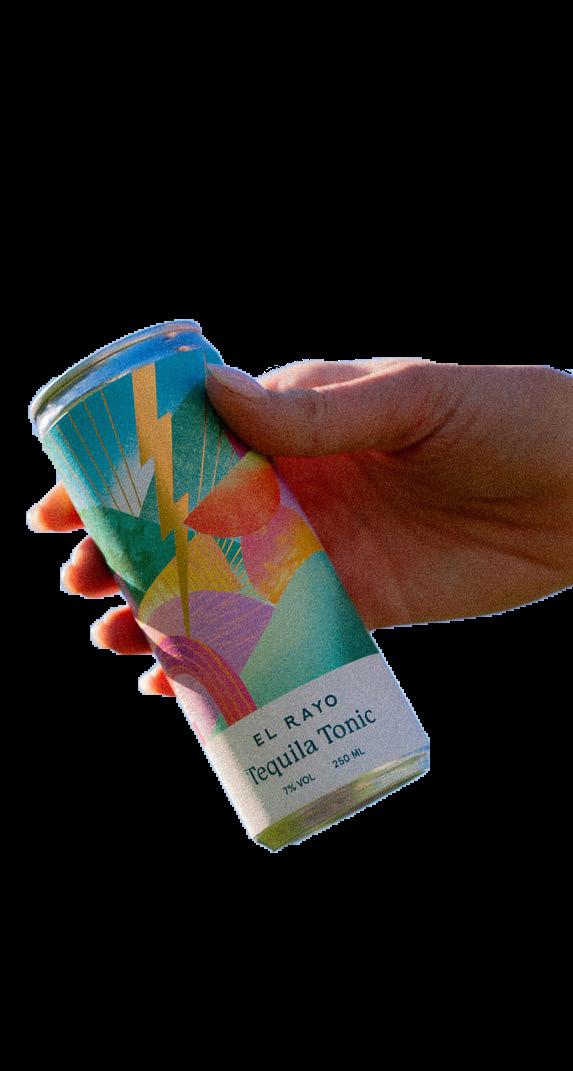

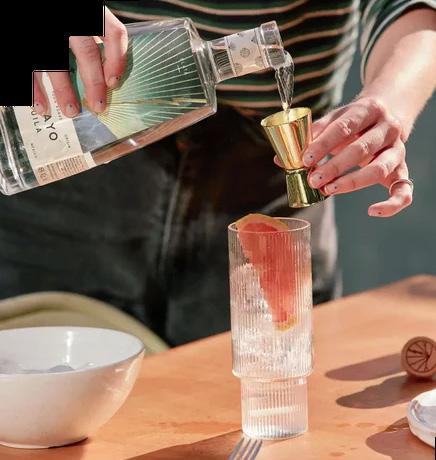
Can you handle the heat? Sweet heat, also known as ‘swicy’, continues to be a trending flavour across 2025 food categories, with innovative taste combinations consistently hitting the market.
Leading this tantalising trend is the newest collaboration between Penrhos Spirits and Oddbox, who have teamed up to launch the UK’s first-ever pear and chilli gin.
As a limited-edition release of just 500 bottles made from produce deemed ‘too odd’ and destined for waste, this fiery new spirit is the second collaboration between the two companies, both of which are pioneers in the fight against food waste.
With over 20 recipe formulations tested to nail that perfect sweet heat balance, this pear and chilli gin is made for those who are ready to handle the heat and celebrate all things swicy.



Celebrate the holiday season with Vinca’s newest magical range of award-winning organic wines, wrapped up in a stylish cracker-style gift that glistens like the ornaments of a Christmas tree.
Filled with a mixed selection of canned wine, including Pale Rosé with fresh notes of rose petal, White Wine with hints of citrus and blossom, and Red Wine with red berry and forest fruit aromas, Vinca proudly represents the future of wine.
Equally as enticing as its Christmas appearance is the brand’s status as the UK’s first 100 percent recycled aluminium wine bottle. Turning the wine industry on its head, Vinca offers an organic drink in infinitely recyclable packaging, demonstrating its mission to change the way you drink wine whilst doing its bit for the planet. Treat yourself or a fellow drinks enthusiast to the Wine Tasting Christmas Cracker this holiday season.



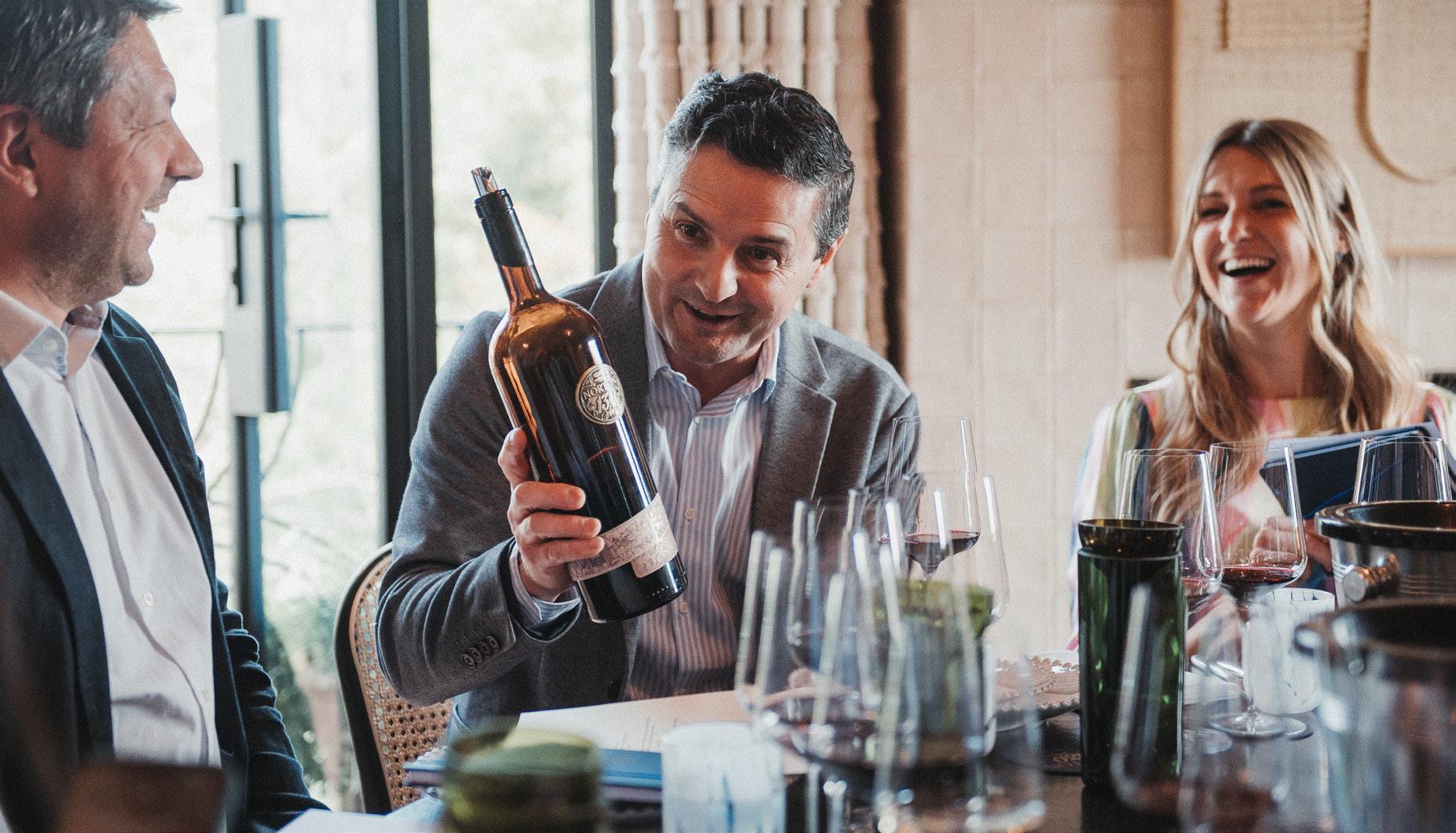
BODEGA NORTON – NORTON 130 AÑOS
Celebrating 130 years of winemaking expertise, Bodega Norton – Argentina’s oldest winery in Luján de Cuyo – is releasing its ultra-limited Malbec, Norton 130 Años.
With only 2,000 magnums released globally and sourced from a single, historic vineyard, this collector’s Malbec is a testament to the patience, craftsmanship, and passion behind one of the country’s most iconic and enduring brands.
Norton 130 Años has been produced from a select harvest of Parcel No. 3 at Finca Agrelo and offers a uniquely smooth texture, deep colour, and vibrant fresh red fruit aroma that is expertly balanced with elegant complexity.
Created with hand-harvested grapes, the wine was aged for 12 months in French oak barrels to preserve its character before being bottled unfiltered and unrefined, guaranteeing its authenticity and exceptional ageing potential.
Indulge in this luxury bottle today and taste all that this one-of-a-kind wine has to offer.

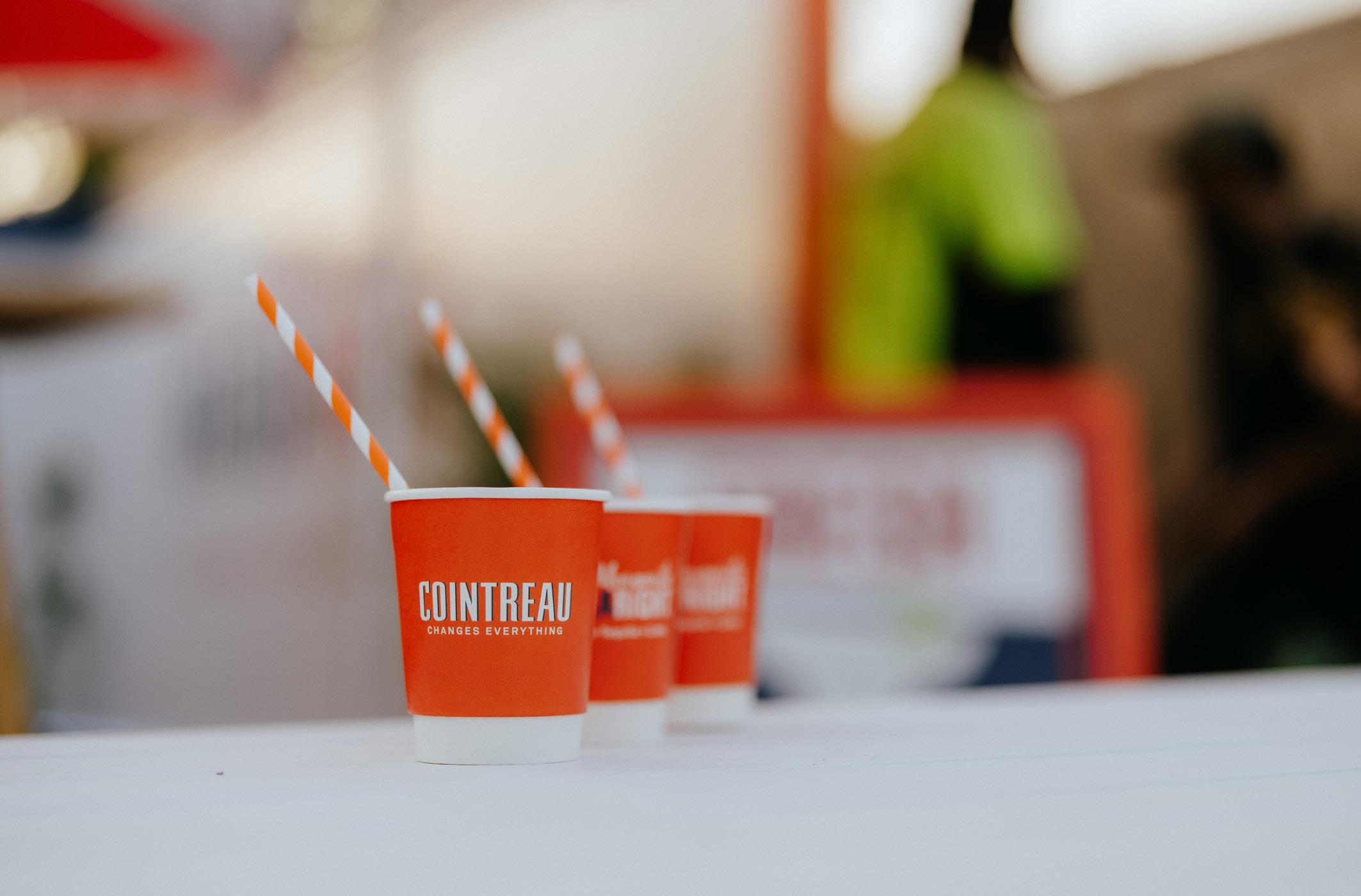

We sit down with the Professor of Music at the University of Roehampton, London, Adam Ockelford, who paired up with drinks brand Cointreau at this year’s All Points East music festival to explore the unique concept of sonic seasoning and how music can influence our perception of flavour
Writer: Lily Sawyer
Drawing on the perceptual phenomenon of synaesthesia – where stimulation of one sensory or cognitive pathway leads to the automatic, involuntary activation of a second – the concept of sonic seasoning examines how sound can enhance or alter taste and flavour.
Countless scientific and theoretical studies have been conducted which all point to the profound, if often unacknowledged, role our environment can play on flavour perception.
Adam Ockelford, Professor of Music at the University of Roehampton, London, is a leading international figure in music psychology who is actively researching how the mind makes sense of music and the emotional impact that different types can have on us.
“Sonic seasoning describes how sound can modulate our

understanding of flavour through cross-modal correspondences, altering how we experience sweetness, bitterness, and texture,” introduces Okelford.
In a 2019 study conducted at the University of Oxford, for example, researchers sought to measure taste

perceptions of the same beer when listening to music associated with both positive and negative emotions.
It found participants preferred the beverage and rated it as tasting sweeter when listening to ostensibly positive music, whilst the same beer was rated as more bitter when paired with music associated with negative emotions.
“High pitches enhance sweetness, low pitches amplify bitterness or saltiness, and rhythmic qualities affect texture; music-induced emotions also shift flavour experience,” Okleford observes.
Keen to emphasise how the unique phenomenon of sonic seasoning can be explored from the comfort of people’s homes, Cointreau provides its original Margarita recipe to pair with a favourite playlist:
INGREDIENTS:
• 30 millilitres (ml) of Cointreau
• 50 ml of blanco tequila
• 20 ml of fresh lime juice
METHOD:
• Shake with ice
• Strain into a salt-rimmed glass
• Garnish with a lime wheel

Moreover, participants were willing to pay seven to eight percent more for the beer they tasted whilst listening to positively associated music.
As such, for Ockelford, the way in which music can add significant value to how a consumer responds to a drink, brand, or flavour experience is notable.
Multisensory environments such as music festivals are considered great opportunities to further investigate the phenomenon of sonic seasoning.
The sensory stimulation often experienced at festivals, with various tempos, pitches, and music genres perhaps enhancing the perception
of sweetness or sourness in foods and beverages, is precisely what Ockelford is interested in.
“The immersive, high-arousal social environment of music festivals intensifies multisensory interactions, making the effects of sonic seasoning even more powerful,” he assesses.
As such, Ockelford partnered with

Cointreau at All Points East in London this summer, where he explored the link between music and taste and how shared soundscapes at festivals can heighten emotion and social connection, making drinks feel more immersive.
“I enjoyed advising Cointreau at All Points East this summer.
Carole Quinton, Master Distiller and Head of R&D and Innovation at Cointreau, weighs in on the brand’s exploration of sonic seasoning at All Points East this year in partnership with Ockelford.
“As someone whose work is all about aroma and flavour, the idea of sonic seasoning fascinates me.
“Just as balance in a cocktail depends on the right blend of ingredients, the sounds around us can subtly shape the way we taste, feel, and remember a drink.
“A festival like All Points East, where music and social connection are at the heart of the experience, is the perfect setting to explore that link.”

emotion, the beverage’s depth means every sip reveals something different within the ever-changing atmosphere of a festival setting.
At All Points East, the drinks brand was on hand to offer its signature Margaritas at a Cointreau pop-up bar,
It was an ideal setting to explore the connection between sound and flavour,” he confirms.
With a complex flavour palette comprising more than 40 aromatic notes, Cointreau orange liqueur is uniquely positioned to explore the phenomenon of sonic seasoning.
Like music, which layers mood and
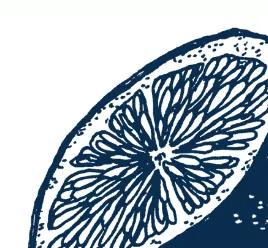

“Complex drinks with many aromatic notes are well-suited for sonic seasoning since their multiple flavour facets can be highlighted with sound.”
Cointreau gave away 50 complimentary Margaritas across the 10-day event, available on a firstcome, first-served basis.
On the menu were festival favourites including original, spicy, and frozen passion fruit Margaritas, alongside ready-to-drink serves like the Lime Daiquiri and Berry Cosmo
– each offering an opportunity to discover how flavours shift with the music around them.
“For a liqueur like Cointreau, with a wide aroma palette, pairing different music genres or moods could map onto the various flavour notes, creating a richer, layered drinking experience,” Ockelford summarises.

With music acting as a social glue –synchronising movement, emotion, and even heart rates – Ockelford assesses that it’s able to make us feel more connected.
“It is thought that music fosters emotional synchrony and bonding; this collective mood amplifies taste
experiences, making them more pleasurable,” he tells us.
As sipping on a drink associated with a musical memory could have the ability to take you back in time, it is hoped festivalgoers can be transported back to All Points East

when next sipping on a Cointreau Margarita.
“Flavour and music also act as strong triggers of autobiographical memory, transporting people back to experiences like a festival when re-encountered later on,” Ockelford adds.
Indeed, serving as a natural bridge to language – which has undoubtedly become a mechanism for group cohesion – music’s role in social bonding is significant.
Cointreau is also keen to emphasise how the link between music and taste can be explored just as easily in a home setting.
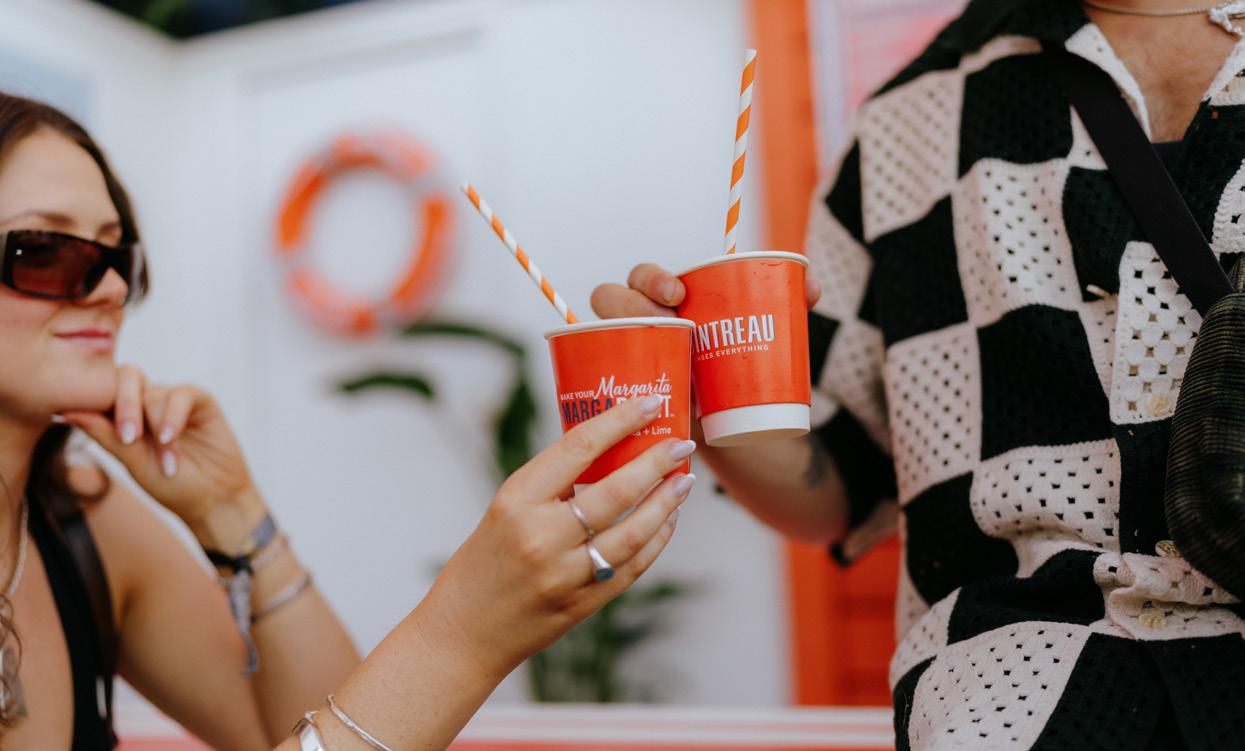

For those interested in exploring the concept of sonic seasoning without attending a festival, the drinks brand invites consumers to pair its classic Margarita cocktail with different music playlists at home to highlight contrasting elements of its flavour.
“For example, high-pitched legato music can be paired with drinks for sweetness or creaminess, and lowpitched or staccato for bitterness or crunchiness,” Ockelford advises.
Depending on individual music tastes, upbeat disco or melodic pop may lift the cocktail’s citrus brightness, whilst bass-heavy hip hop or reggae could add warmth and depth.
Alternatively, smooth jazz or acoustic ballads might evoke a subtle sweetness from the orange liqueur.
Pairing drinks with your favourite playlists is therefore a simple way to explore the sonic seasoning theory from the comfort of your own home.
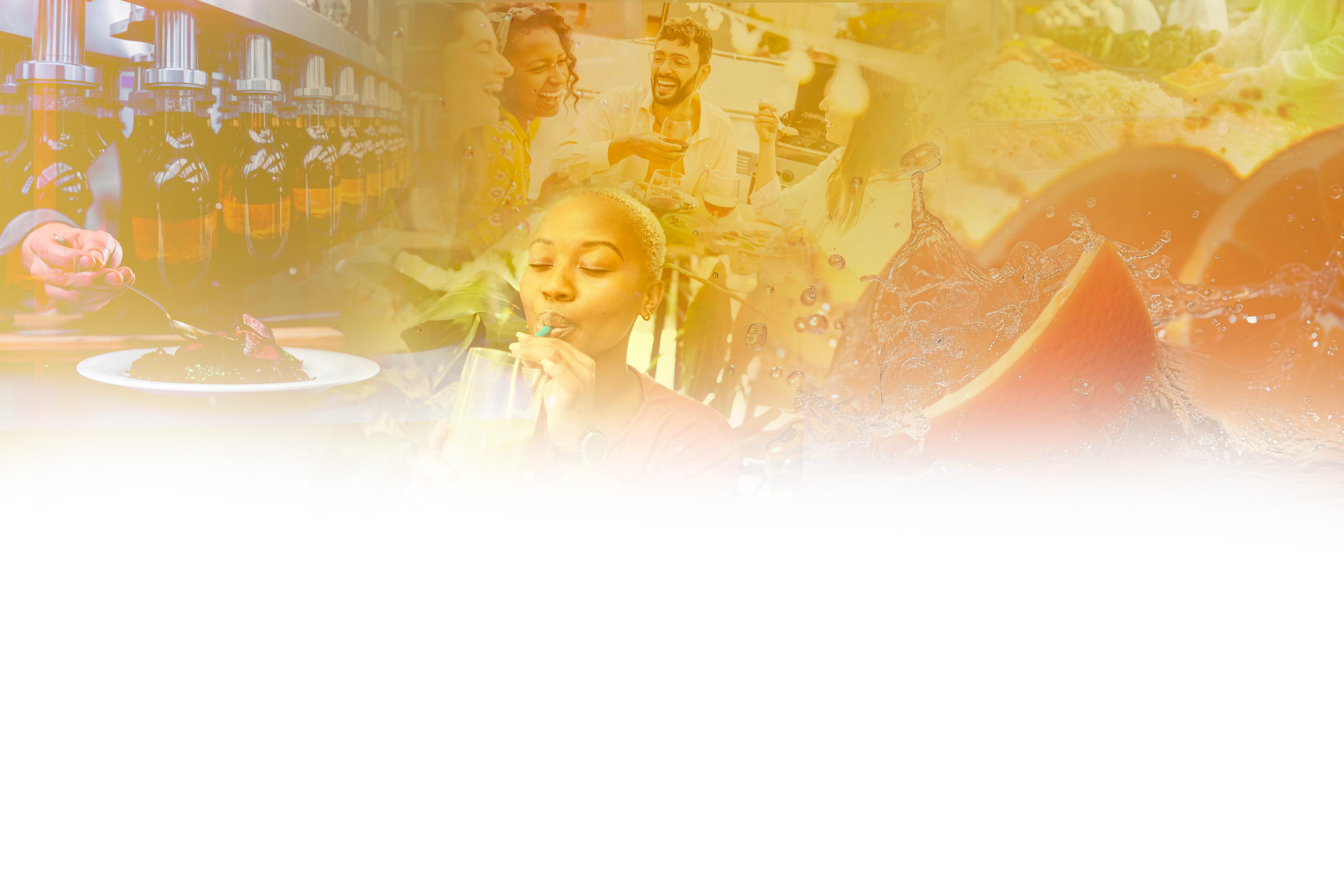
As organisations worldwide confront unprecedented change, embracing technological innovations and incorporating critical environmental sustainability agendas, now more than ever is the time to showcase the strides being taken in the food and beverage sector.
A multi-channel brand, Food & Beverage Outlook serves up all the positive global developments driven by companies across the food and beverage industry. Discover exclusive content presented through its website, social media channels and dispatches, delivered straight to your inbox with a bi-weekly newsletter.
Through this compelling new venture, Food & Beverage Outlook foregrounds the movers and shakers of the industry by confronting unprecedented change, showcasing technological innovations and incorporating critical environmental sustainability agendas. To participate as a featured company and join us in this exciting endeavour, contact one of our Project Managers today.





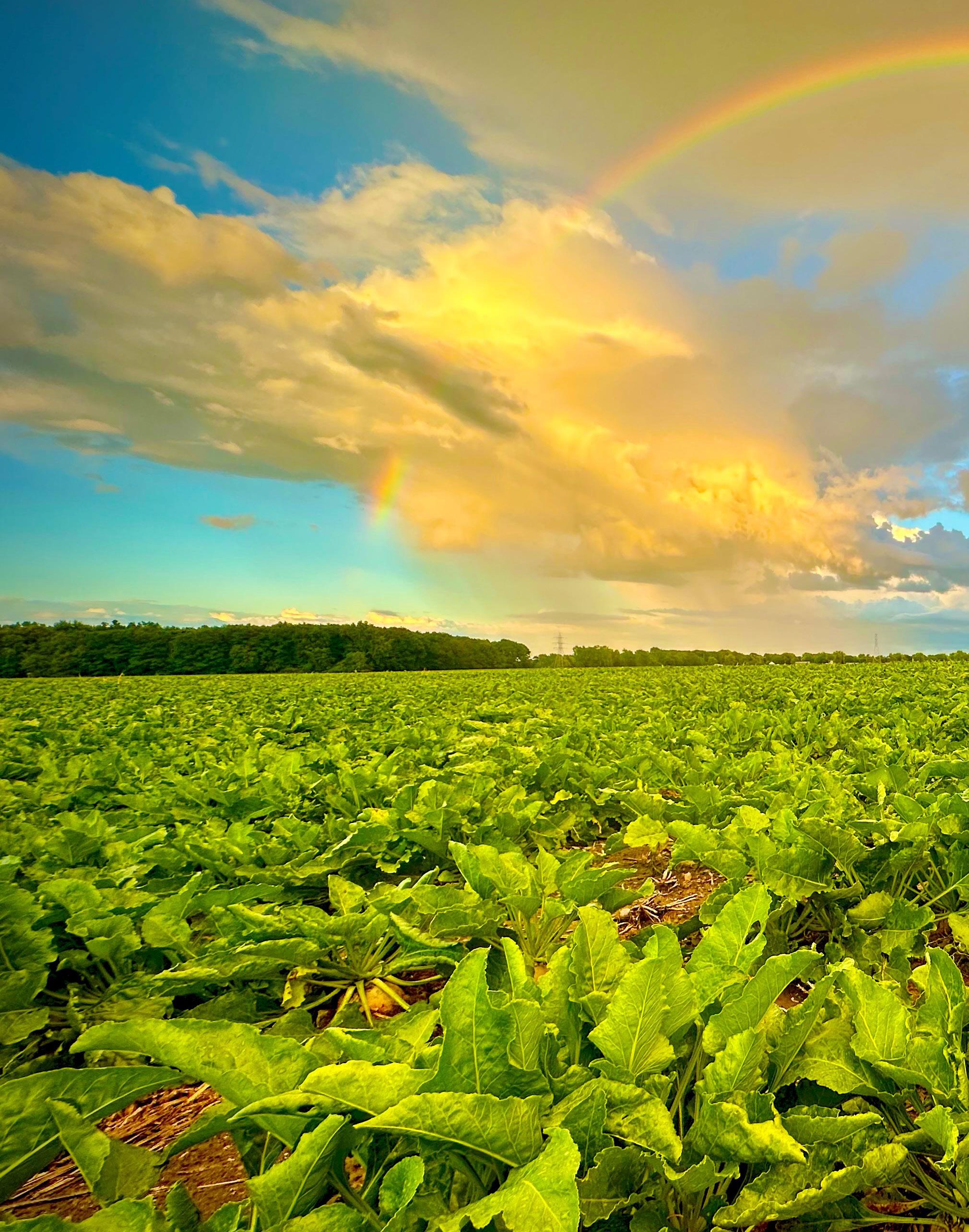
Neil Juhnke, President and CEO of Michigan Sugar Company, outlines the grower-owned cooperative’s latest developments and new facilities, alongside the company’s ongoing commitment to sustainability which sees it in constant pursuit of strategies to grow better crops with less input
Writer: Lily Sawyer | Project Manager: Marc Lewis
With the application of technology advancing rapidly over the last 20 years, both in the field and agronomically, North America’s agricultural landscape has significantly evolved.
Historically, it has witnessed a steady growth of value-added agricultural processing, with the sugar beet industry being the oldest
enduring example, dating back to the early 1800s when Napoleon commissioned French scientists to develop the root vegetable at scale.
Today, genetically modified organism (GMO) technology continues to transform the sector.
“When I began my career in the sugar industry in 1990, an 18-tonper-acre (tpa) crop with 16 percent sugar was considered a good yield.

Now, we’re growing between 34 and 35 tpa – nearly double – with sugar content close to 18 percent,” opens Neil Juhnke, President and CEO of Michigan Sugar Company (Michigan Sugar).
As such, in recent years, Michigan Sugar has been able to reduce its planted acres from 160,000 to 140,000 while still being able to produce more sugar.
However, the sugar beet industry has not been without its challenges, with the recent COVID-19 pandemic necessitating workforce revitalization and restructuring.
Mother nature, meanwhile, has presented its own challenges, with cercospora leafspot a recurring disease damaging crops and developing tolerance to the different fungicides used to control it.

“Nature finds a way to challenge us in the agronomic production of sugar beets,” Juhnke says.
As the third-largest sugar beet cooperative in the country and the most vertically integrated, Michigan Sugar plants, grows, harvests,
“SAFETY IS PARAMOUNT, AND WE’VE INVESTED IN DEVELOPING KEY SAFETY PROCEDURES SUCH AS NEW TRAINING AND SAFETY AWARENESS POLICIES”
– NEIL JUHNKE, PRESIDENT AND CEO, MICHIGAN SUGAR COMPANY
processes, stores, and packages sugar in value-added configurations.
“More than 50 percent of our sugar is supplied to customers in some value-added form, and we are proud to count eight out of the nine major US retailers among our customers,” he adds.
As it focuses on increasing its sugar production in the most sustainable manner, Michigan Sugar has invested heavily in maximizing the efficiency of its separation processes.
A new molasses desugarization (MDS) plant, which opened its doors in May 2024, has significantly contributed to this goal with the ability to produce more than 80 million additional pounds (lbs) of sugar yearly for the company.
Molasses desugaring is accomplished through chromatographic separation, a resin-based process in which molasses – a by-product of the sugar extraction process from sugar beets – is passed through a bed of tiny resin beads to extract additional sugar from the molasses.
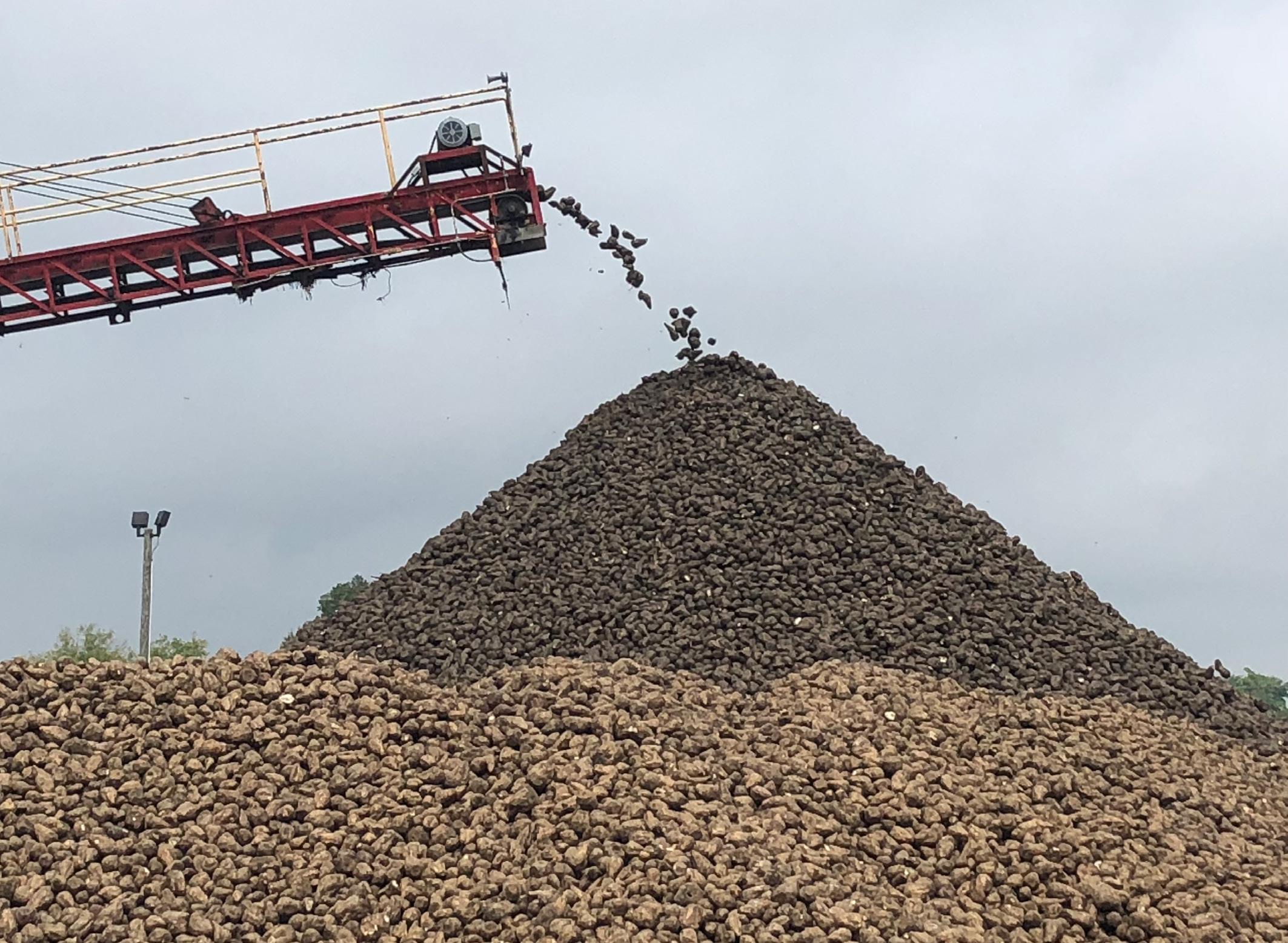
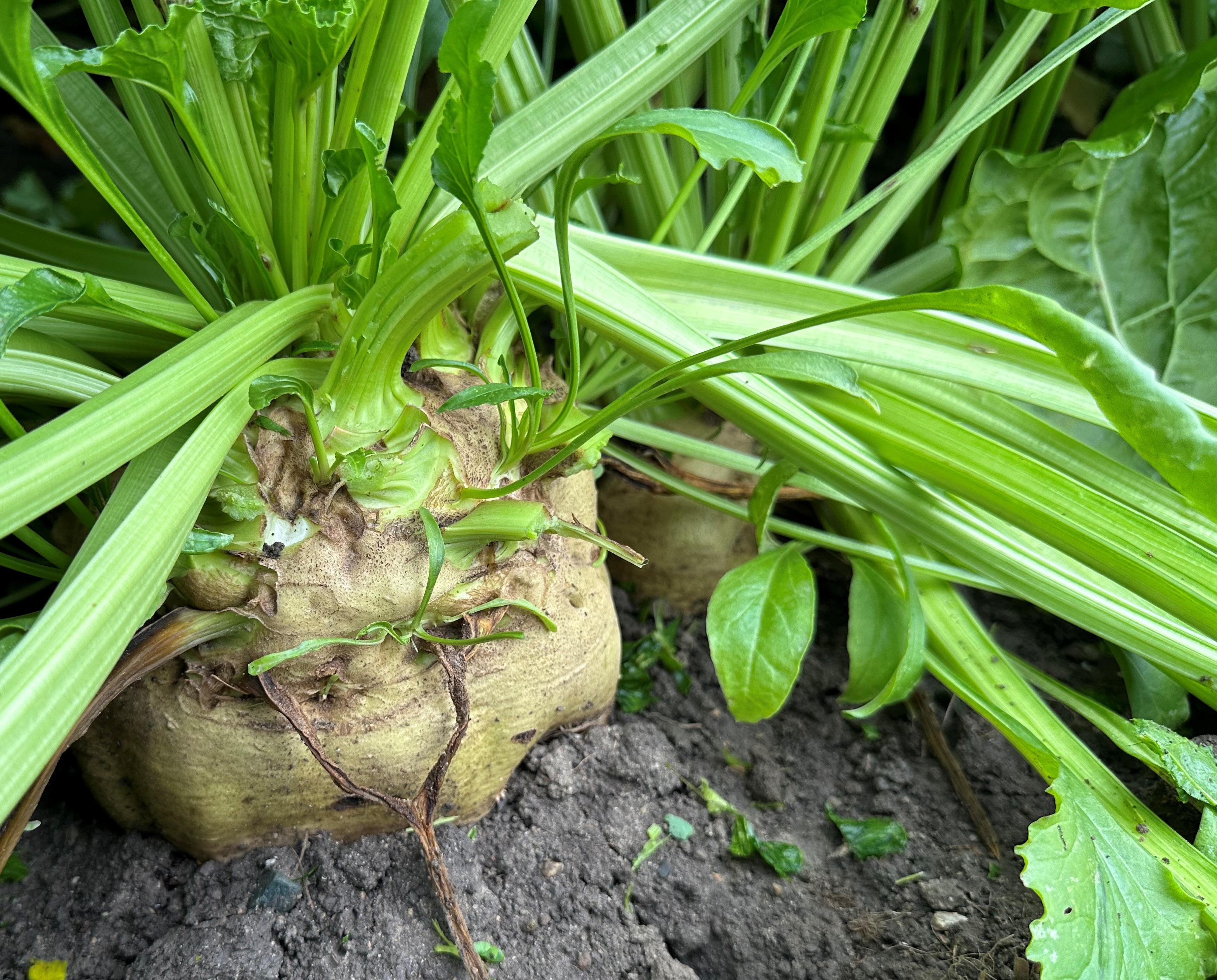
“This state-of-the-art facility, the largest capital investment in Michigan Sugar’s near 120-year history, is a complete game-changer for us,” Juhnke explains.
“We can now desugar 100 percent of the molasses we produce as a by-product of the sugar extraction process, as opposed to 60 percent previously. We have doubled our production capacity from 325 tons (t) of molasses per day to 650.”
Built over four years with more than 160,000 safe working hours, the MDS facility is a success story in sustainability because it allows the company to produce additional sugar without the need for its growerowners to plant another acre of sugar beets.
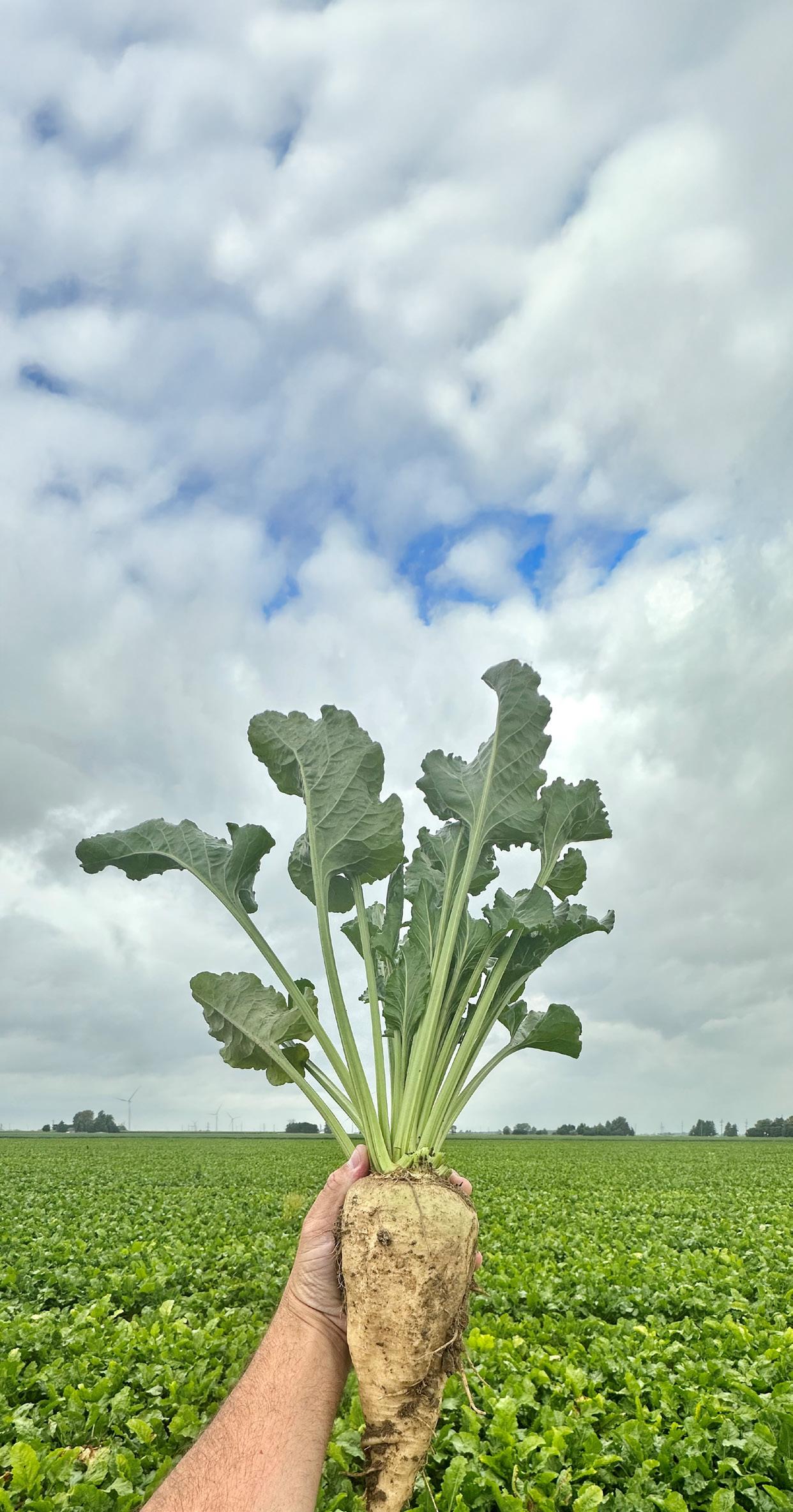
Michigan Sugar was founded in 1906 when six smaller sugar companies merged their operations.
In 2002, Michigan Sugar became a grower-owned cooperative, before merging with Monitor Sugar in 2004 to form the company that exists today.
Michigan Sugar is headquartered from its corporate office in Bay City, Michigan, and has sugar beet processing facilities across the state in Bay City, Caro, Croswell, and Sebewaing.
Its 865 grower-owners plant and harvest about 140,000 acres of sugar beets each year across Michigan, as well as operating in Ontario, Canada.
The beets are sliced at the factories and turned into about 1.3 billion lbs of sugar annually, which is sold to industrial, commercial, and retail customers under the company’s Pioneer brand.
With 1,000 year-round employees and an additional 1,100 seasonal workers, Michigan Sugar’s annual payroll is more than $90 million and its annual direct economic impact is upwards of $700 million.
The company is the third-largest of seven sugar beet processing companies in the US, and Michigan is one of 11 states where sugar beets are grown.
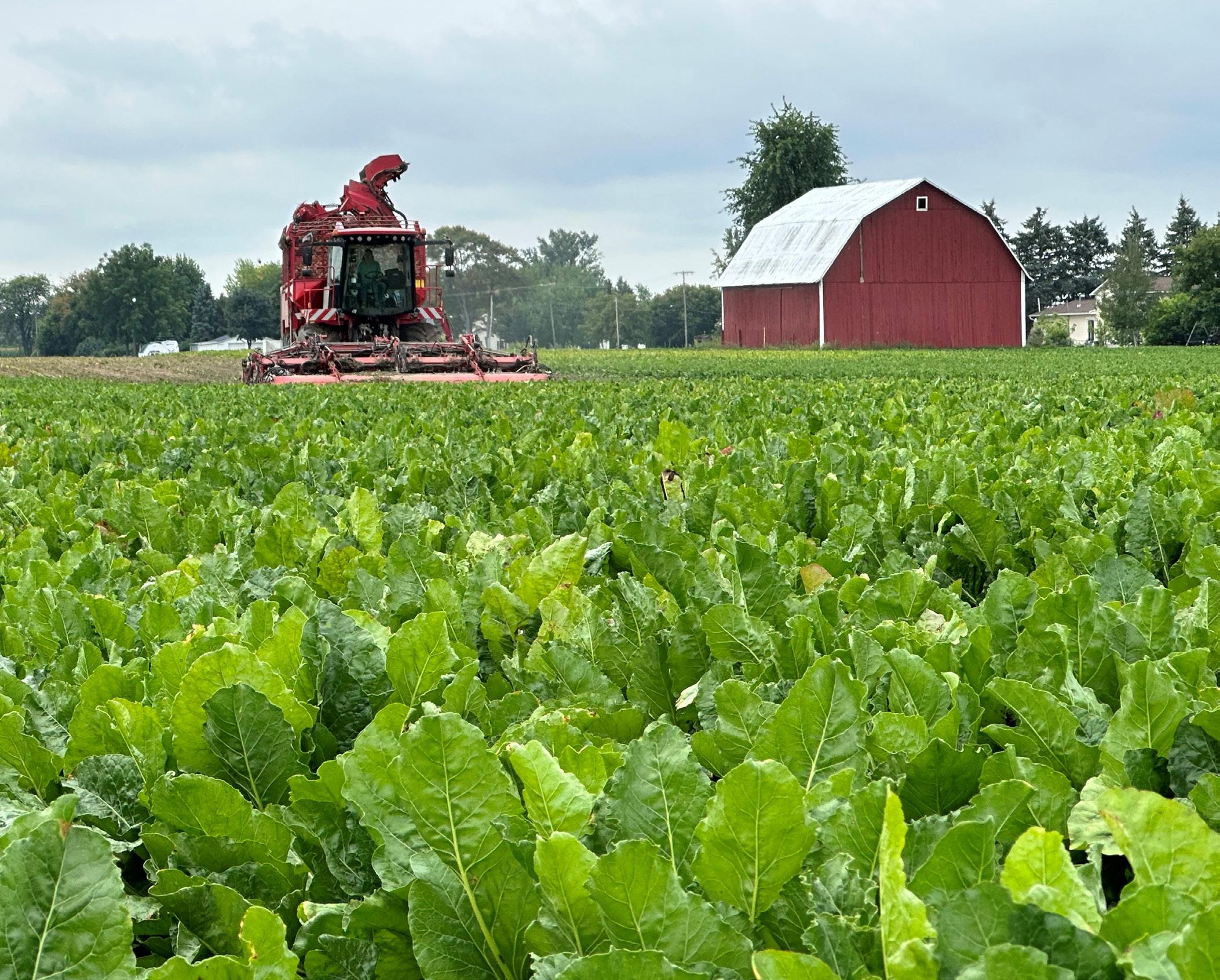
“That means no additional input costs and no additional impact to the soil in our farmers’ fields,” Juhnke says.
Counting many of the most progressive growers in Michigan among its farmers, Michigan Sugar is constantly evaluating how to grow better crops with less inputs.

A new quality payment system, for example, rewards growers for producing beets with higher sugar content and better overall quality, as opposed to simply growing larger beets.
“This system is intended to align our processing asset priorities with the agronomic production priorities of our farmers,” Juhnke outlines.
As a result, the company
incentivizes its growers to produce more recoverable white sugar per t – the analytical measure of how much sucrose per t is recoverable in the factory.
“It’s a method to encourage the production of beets with higher recoverable sugar content – which requires lower tonnage – so our processing costs go down and sugar recovery goes up, aligning with our agronomic priorities,” he emphasizes.
In this way, Michigan Sugar emerges as a progressive sugar cooperative that not only encourages its farmers to maintain the local environment but financially incentivizes them to do so.

“MORE THAN 50 PERCENT OF OUR SUGAR IS SUPPLIED TO CUSTOMERS IN SOME VALUE-ADDED FORM, AND WE ARE PROUD TO COUNT EIGHT OUT OF THE NINE MAJOR US RETAILERS AMONG OUR CUSTOMERS”
– NEIL JUHNKE, PRESIDENT AND CEO, MICHIGAN SUGAR COMPANY
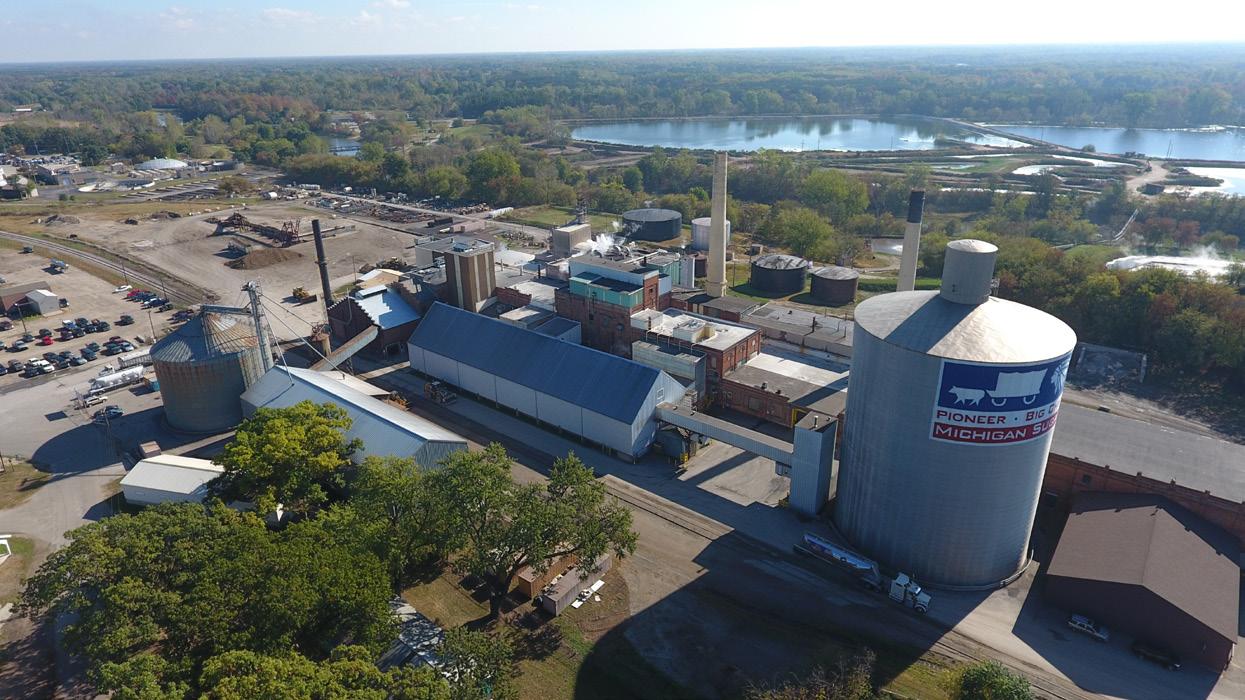
“Having been approved by the Board of Directors in 2024, the quality payment formula has so far been well received by all and has contributed to us achieving the highest sugar content on record this year in our entire history
as a cooperative,” Juhnke says.
Elsewhere, the company utilizes GMO sugar beet seeds to increase its yields and reduce the number of herbicides applied to crops.
In addition, it is investing in green
power generation strategies in a bid to adopt more sustainable electricity in at least two of its plants.
“We’re undertaking preliminary studies to assess the feasibility of cogeneration – whether we’d be able to generate enough electricity to serve the needs of the communities close to where our plants are co-located,” he tells us.
Michigan Sugar is currently investigating the possibility of generating six megawatts (MW) of electricity for its own use, and another 6 MW to power the local area – all through natural gas.
“That will be a huge reduction in generated electricity and another step forward in terms of our corporate social responsibility (CSR) and sustainability contributions,” Juhnke notes.
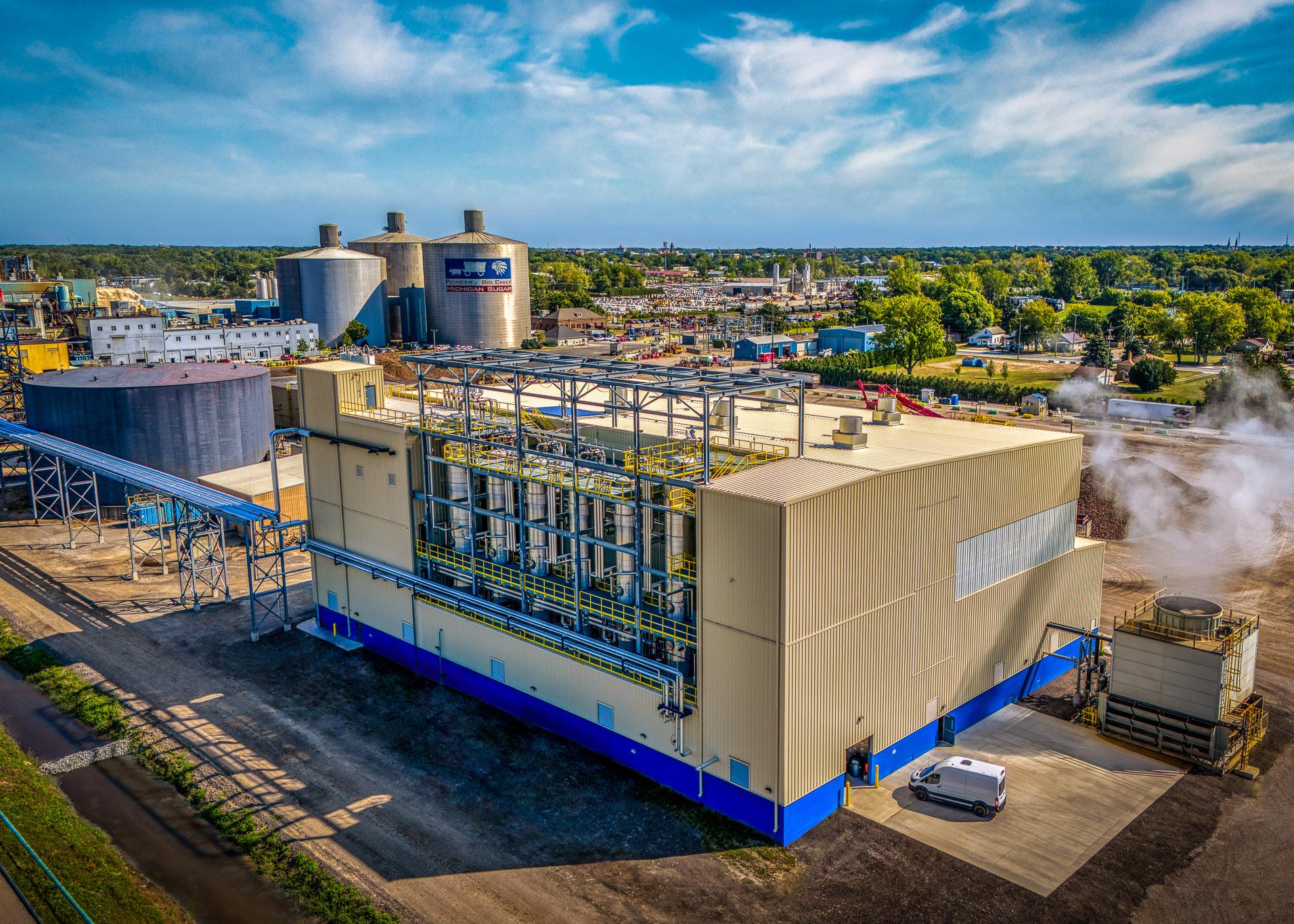
• Ground broken – June 2022
• Start-up – May 2024
• Safe working hours to build plant – 160,000+
• Cost of project – $109 million, the largest capital investment in Michigan Sugar’s history
• Total size – 22,000 square feet (ft)
• Construction materials – Block, concrete, steel, and wood
• Concrete – 4,866 cubic yards
• Structural steel – 766 t
• Piping – 10.4 miles (mi)
• Cable tray – 3,400 ft
• Cable wire – 18 mi
• Instruments – 760
• Valves – 2,475
• Motors – 109
• Pumps – 93
• Fiber for network – 3,000 ft
As a company honored to count many military veterans among its ranks, Michigan Sugar supports ex-military personnel through employment.
When the company re-evaluated its workforce after the COVID-19 pandemic, it conducted a survey to ascertain which employees were most fulfilled and motivated by their work.
Those that fit this profile tended to be from a military background, so the company began to develop a military recruitment program.
“We’re partnered with RecruitMilitary, an organization that helps us connect to folks retiring from the armed forces,” Juhnke says.
Having now taken part in several recruiting events at military bases across the country and with an upcoming event scheduled at the Citadel Military College in South Carolina, Michigan Sugar has
established a tangible partnership with military veterans.
The company is also proud to participate in the Department of Defense (DoD) SkillBridge program, which allows active-duty service members to gain professional experience through internships, apprenticeships, or training.
“These activities have resulted in us hiring a number of ex-military personnel as shift supervisors and business leaders,” he reflects.
As a company that recognizes the leadership skills of employees with military backgrounds, it utilizes the DoD SkillBridge program to enable them to understand the industry while gaining technical expertise.
“Having hired a handful of military folks, I can safely say they’re all doing very well,” Juhnke affirms.
In addition, Michigan Sugar’s Veteran of the Month program rewards those who demonstrate
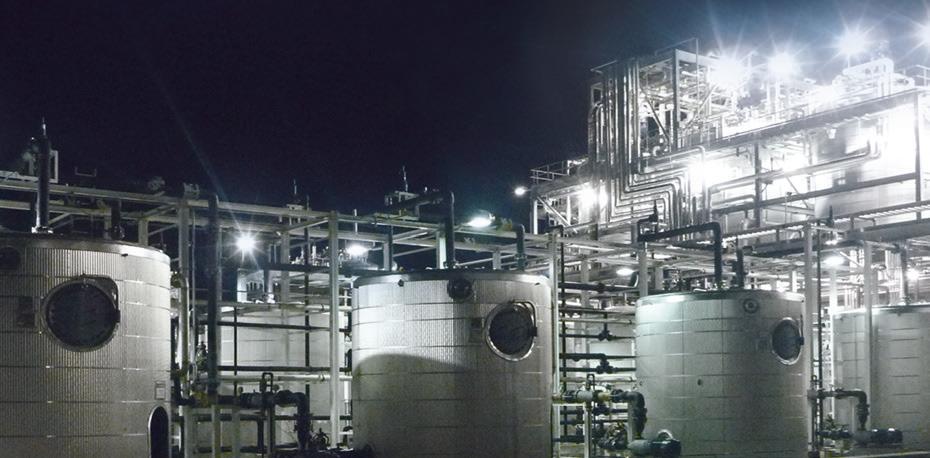

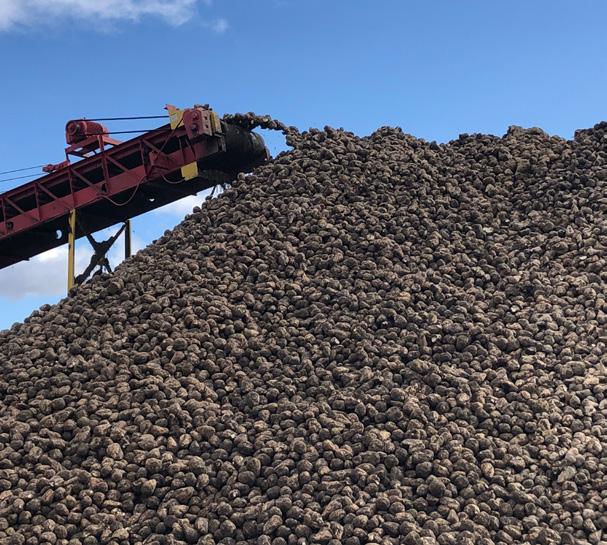
commendable achievements, and it celebrates veterans on social media who have helped to build the company.
Michigan Sugar’s three-year strategy to rebuild foundations for future success, led by Juhnke, focuses on improving company performance through investments in people and technology.
“We felt like we were a good company, but needed to be a great company,” he says.
In collaboration with the company’s Board of Directors, Juhnke used Jim Collins’ best-selling book, ‘Good to Great’, as a foundational framework upon which to build.
The strategy focuses on improving operational capabilities, accountability, accuracy, and data utilization in decision making, alongside shoring up the workforce, training, and finances.
“We’re through the toughest two years of that three-year strategy, and this year we’re focusing on the finer details of our performance,” Juhnke shares.
As such, extracting and removing waste from the system, improving operational reliability, and enhancing safety are among the company’s top priorities.
“Safety is paramount, and we’ve invested in developing key safety
procedures such as new training and safety awareness policies,” he details.
With plans to sit down with its Board of Directors again in February 2026, Michigan Sugar is looking forward to what the future holds.
As a grower-owned cooperative with 865 shareholders and 350 farm operations, the company is proud to generate more than $700 million in annual revenue – the majority of which is reinvested into the local community.
“We’re very proud to be a worldclass, grower-owned cooperative,” Juhnke passionately concludes.


Tel: 989-686-0161
info@michigansugar.com www.michigansugar.com www.pioneersugar.com



The Caribbean’s largest tea producer, Caribbean Dreams Foods Ltd, a subsidiary of Jamaican Teas Ltd, possesses an unwavering commitment to innovation and quality. Jonathan Mahfood, Commercial General Manager, spills the tea on the company’s growth journey
Writer: Lucy Pilgrim | Project Manager: Joshua Mann
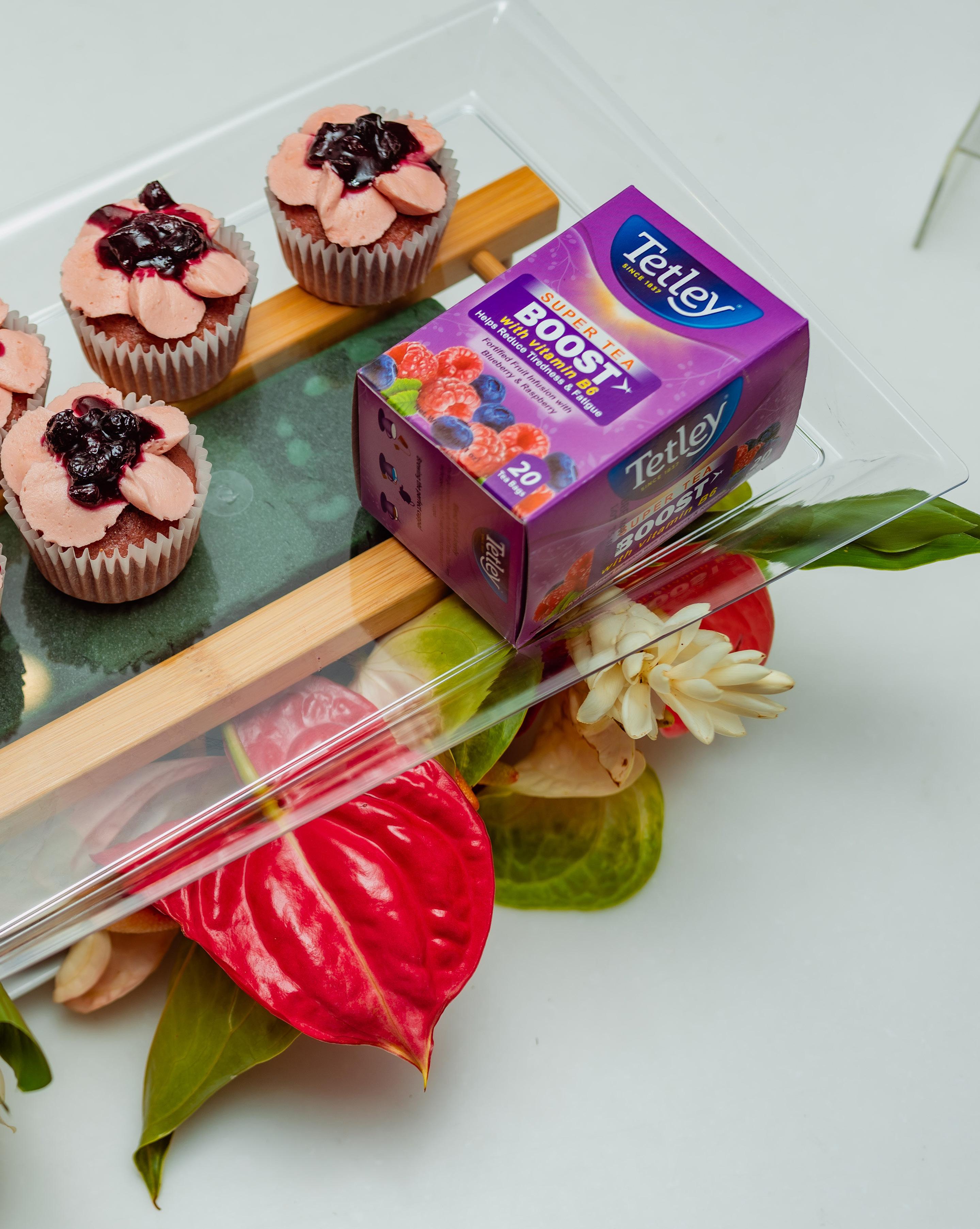
The Jamaican beverage market has significantly evolved in the last 30 years, particularly the black tea sector, where consumers are now looking for hot drinks that offer functional benefits, support a healthy lifestyle, and deliver unique flavors. Despite heightened industry competition from overseas imports, especially from Asia, there is greater awareness around and focus on local brands and ingredients.
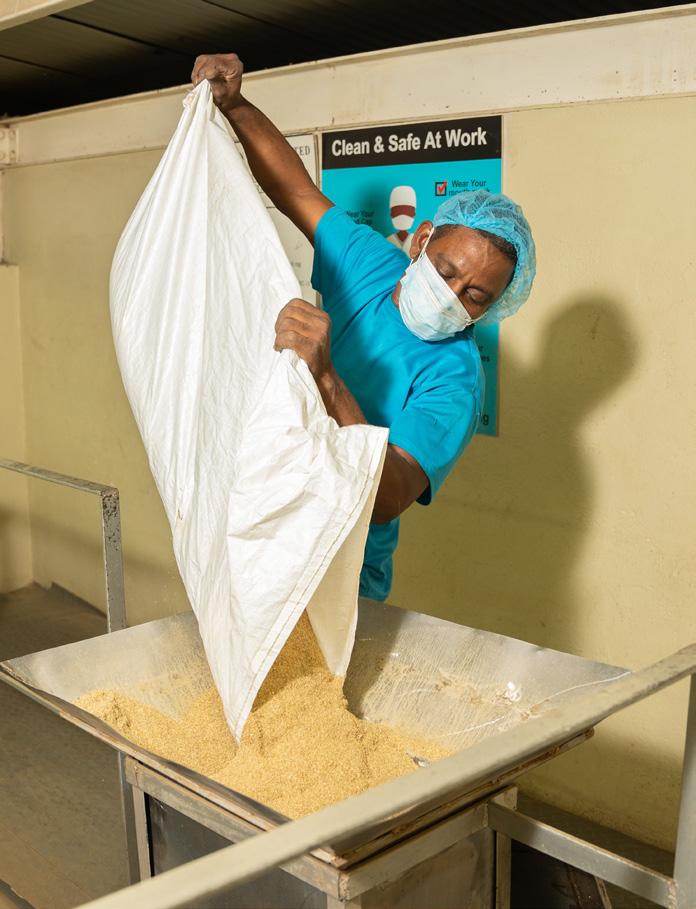
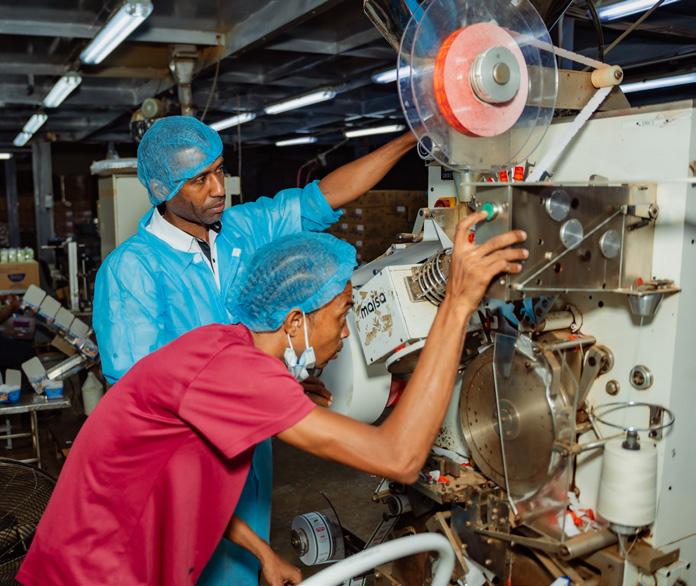
“THE CARIBBEAN CONSUMER IS MORE INFORMED AND LOOKING FOR QUALITY, CONSISTENCY, AND PURPOSE IN THE PRODUCTS THEY CHOOSE”
– JONATHAN MAHFOOD, COMMERCIAL GENERAL MANAGER, CARIBBEAN DREAMS FOODS LTD
“The Caribbean consumer is more informed and looking for quality, consistency, and purpose in the products they choose,” opens Jonathan Mahfood, Commercial General Manager of Caribbean Dreams Foods Ltd (CDFL), the region’s leading tea producer.
Established in 1967 under the name Universal Foods, the company initially exclusively produced black teas under license for major tea brand Tetley.
When Mahfood’s grandfather, Abeeb, and father, John, acquired the business in 1995, they saw the opportunity to do something much bigger.
CDFL is more than just a subsidiary of JTL and brand – it represents a connection to culture, wellness, and the Caribbean lifestyle.
The company was created with the health of its consumers in mind, as its tea products are formulated with natural ingredients that are easily accessible and trusted across the region, such as ginger, moringa, and soursop.
Over the years, CDFL has added new flavors and functional blends to meet the growing demand for healthy, affordable alternatives.
Additionally, all its products are Safe Quality Food Institute (SQFI), Hazard Analysis Critical Control Point (HACCP), and Food and Drug Administration (FDA)-certified.
“We’re proud of where we’ve taken the brand and excited about the opportunities ahead. We’ve built something that is both local and global, and we plan to keep growing in a way that stays true to who we are,” Mahfood insights.
CDFL is actively building out its line of pantry items to expand the brand even further. In the future, it hopes to showcase products in the spices category, including flavors like oxtail, goat, and sazon, alongside many other exciting products.
“It had solid roots but was underdeveloped. They saw the chance to scale it up and build a company that could compete not only in Jamaica but across international markets,” he elaborates.
Their focus was to modernize the operation, create value-added products, and establish a platform that could export Jamaican-made goods to the diaspora and beyond.
“The acquisition was about unlocking potential and creating a long-term growth model built on quality and consistency, while the goal was to bring the taste of home to all islanders here and abroad.”
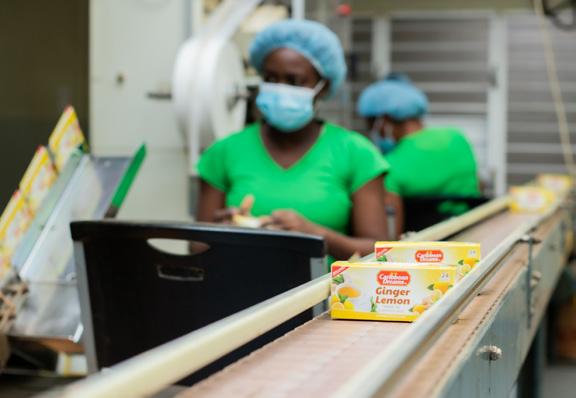
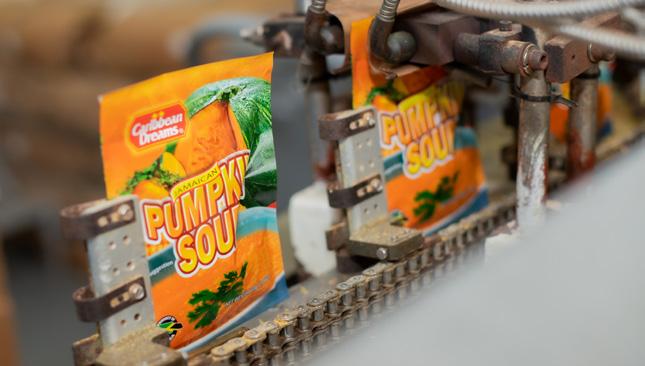
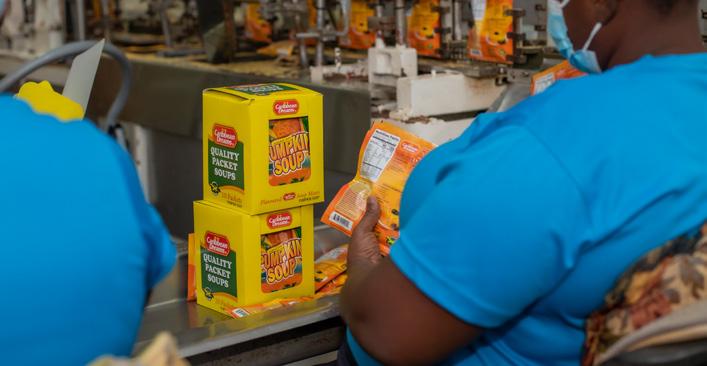

At Gogoco, we bring you the natural richness of coconuts straight from the source. As a trusted coconut manufacturing company, we are passionate about delivering high-quality coconut products made with care and integrity.
From powder to extracts, every Gogoco product starts at our carefully selected farms, where only the freshest coconuts are harvested at peak ripeness. We preserve their nutrients and flavor using advanced processing methods, ensuring you receive nothing but the best.
Whether you’re creating delicious recipes or healthy drinks, Gogoco’s coconut ingredients offer authentic taste and nourishment you can trust.
Join the wave of natural living - choose Gogoco for your coconut needs.







Exporting to over 20 countries, CDFL’s distributor partners are essential as they provide key insights for marketing and execution.
“We then provide them with consistent supply, trade marketing support, and the tools they need to succeed. At the end of the day, our success is tied to theirs,” Mahfood elaborates.
The company additionally upholds an unwavering commitment to the fair treatment of its farmers and suppliers and supports local sourcing where possible in order to grow alongside its partners.
“Our relationships are built on transparency and mutual respect. We work with them consistently, agree on fair terms, and ensure they’re paid on time. This kind of reliability fosters long-term partnerships, which are a cornerstone of how we do business.”
Jamaican Teas Ltd (JTL) is listed on the Jamaican Stock Exchange (JSE) and CDFL is a key subsdiary of its four divisions.
CDFL is responsible for the operation of the company brand, Tetley products under license, and the manufacturing operations of other brands on behalf of JTL.
Shoppers Delite, meanwhile, is JTL’s retail supermarket division in Jamaica, while H. Mahfood and Sons handles its real estate portfolio.
QWI Investments, which is also listed on the JSE, manages a diversified portfolio of equity investments on behalf of JTL.
Employing over 160 people, CDFL supplies both local and global markets and holds a diverse client base that includes major distributors, supermarkets, and food service providers across the Caribbean, Americas, UK, and more.
Manufacturing over 40 different types of teas, the company is differentiated by its ability to operate at scale and a level of certification that few of its competitors are able to achieve.

Indeed, CDFL utilizes in-market activity, trade marketing, and distributor support to ensure its products not only reach supermarket shelves but stay there – without shying away from innovation.
“Whether it’s our wellness teas
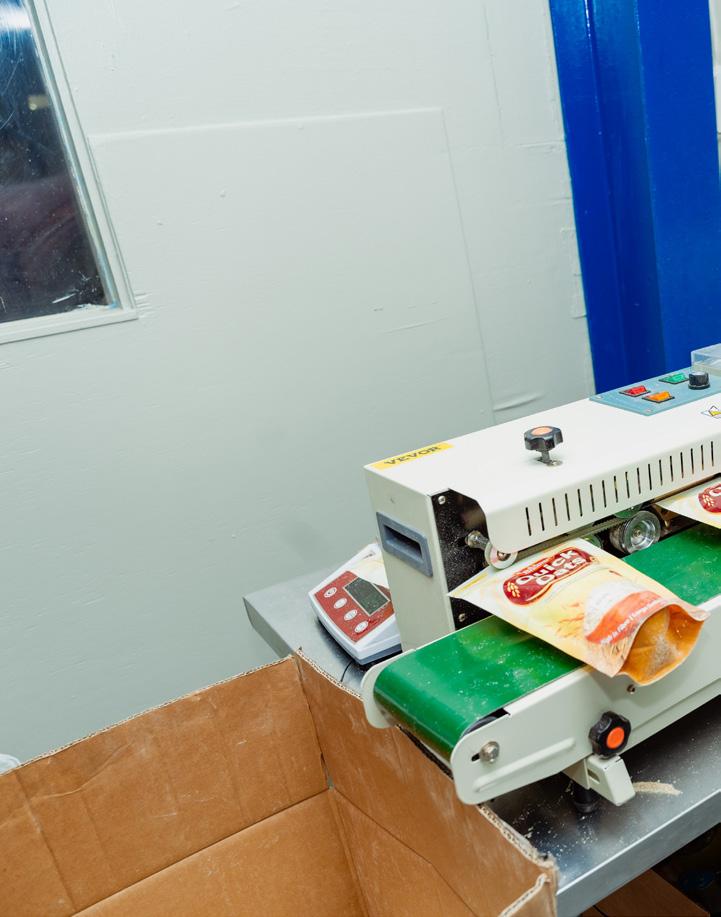
or value-added pantry items, we’re always looking to bring something new and relevant to the consumer. This focus on innovation should excite our partners and customers about future products we will bring to the market,” Mahfood shares.
In 2024, CDFL made the strategic decision to move its dry pack and tea operations to a new facility located in Temple Hall in the parish of Saint Andrew.
This relocation was a highly significant investment in the future as it provides the company with greater capacity, improved workflow, and the infrastructure to meet growing international demand.
“It sets the foundation for expanding our product lines and
“WHETHER IT’S OUR WELLNESS TEAS OR VALUE-ADDED PANTRY ITEMS, WE’RE ALWAYS LOOKING TO BRING SOMETHING NEW AND RELEVANT TO THE CONSUMER. THIS FOCUS ON INNOVATION SHOULD EXCITE OUR PARTNERS AND CUSTOMERS ABOUT FUTURE PRODUCTS WE WILL BRING TO THE MARKET”
– JONATHAN MAHFOOD, COMMERCIAL GENERAL MANAGER, CARIBBEAN DREAMS FOODS LTD
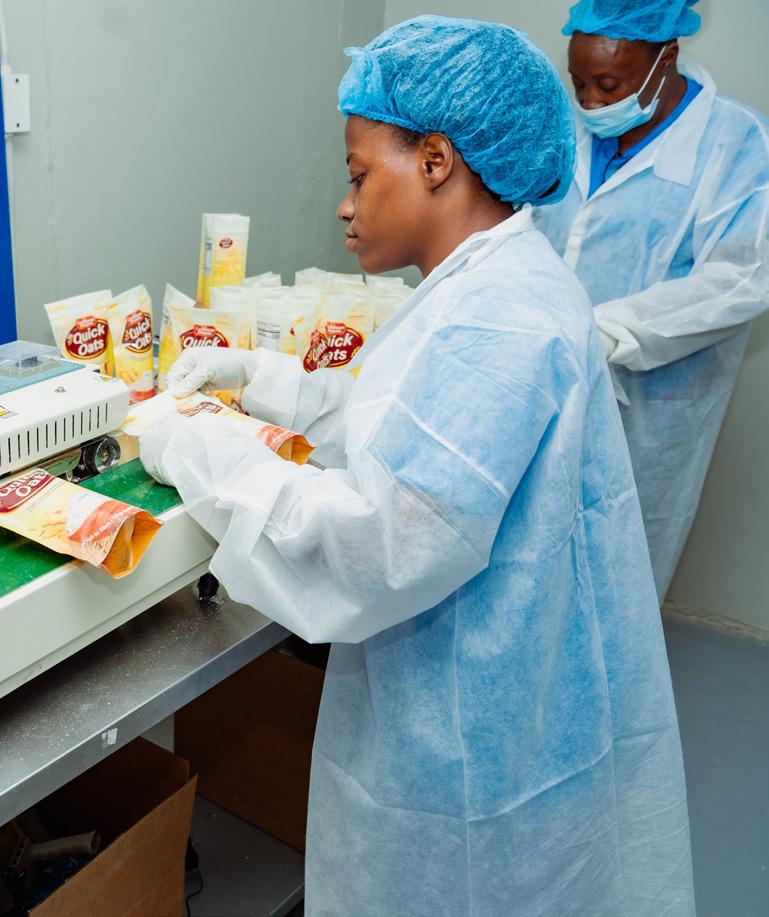
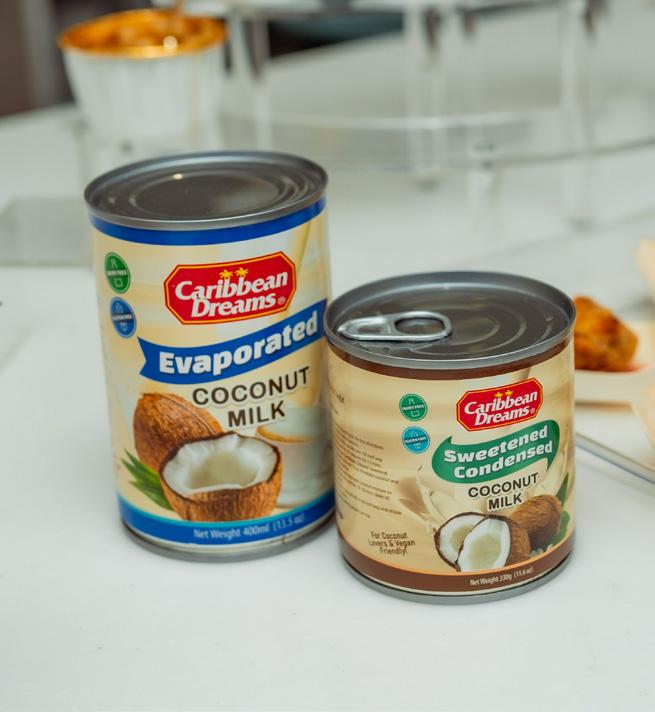
bringing in new co-manufacturing clients. The facility also means we are more efficient and better equipped for export readiness,” Mahfood expands.
CDFL’s solar power investment, meanwhile, helps it to reduce electricity costs and lower its environmental footprint. As a manufacturer, this not only matters for cost control but also long-term sustainability.
The new facility is currently approximately 50 percent solar powered, with plans to expand this further in the near future.
This emphasis on eco-friendly operations also aligns with the expectations of CDFL’s global customers, who are increasingly focused on working with brands that have responsible practices in place.
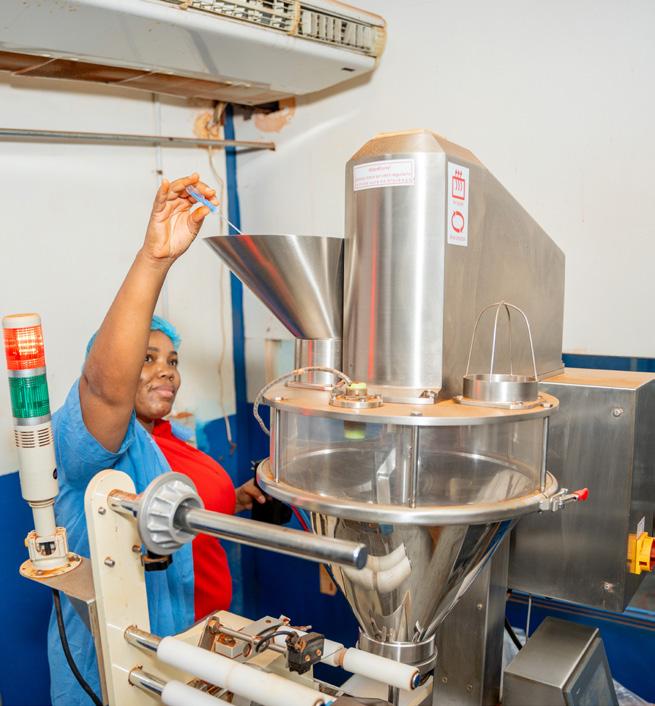
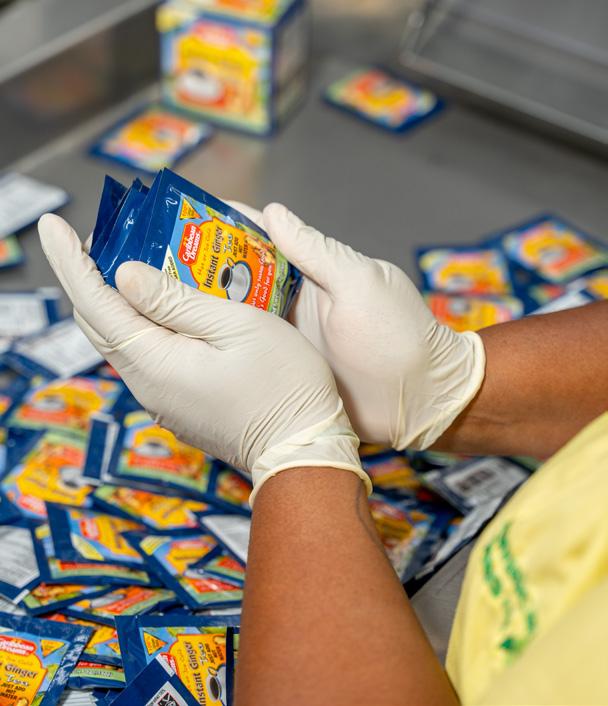

CDFL is equally keen to meet the needs of the local communities, supporting several local schools, youth sports initiatives, and community events, as well as donating products to health fairs and wellness programs across the region.
“Within the company, we’ve implemented employee development programs, health insurance, and performance incentives to ensure both the community and our team are supported in meaningful ways,” Mahfood highlights.
Looking ahead, the company has a keen focus on growing exports, increasing distribution, and developing new product lines.
It also strives to improve operational efficiency and continue
building strong relationships in each of its markets.
“Another key area is digital transformation. We’re investing in better data systems, updated marketing materials, and product packaging that supports both retail and e-commerce growth,” he concludes.

Ph: 876 656-9491 / 876 764-8015
info@jamaicanteas.com
www.jamaicanteas.com
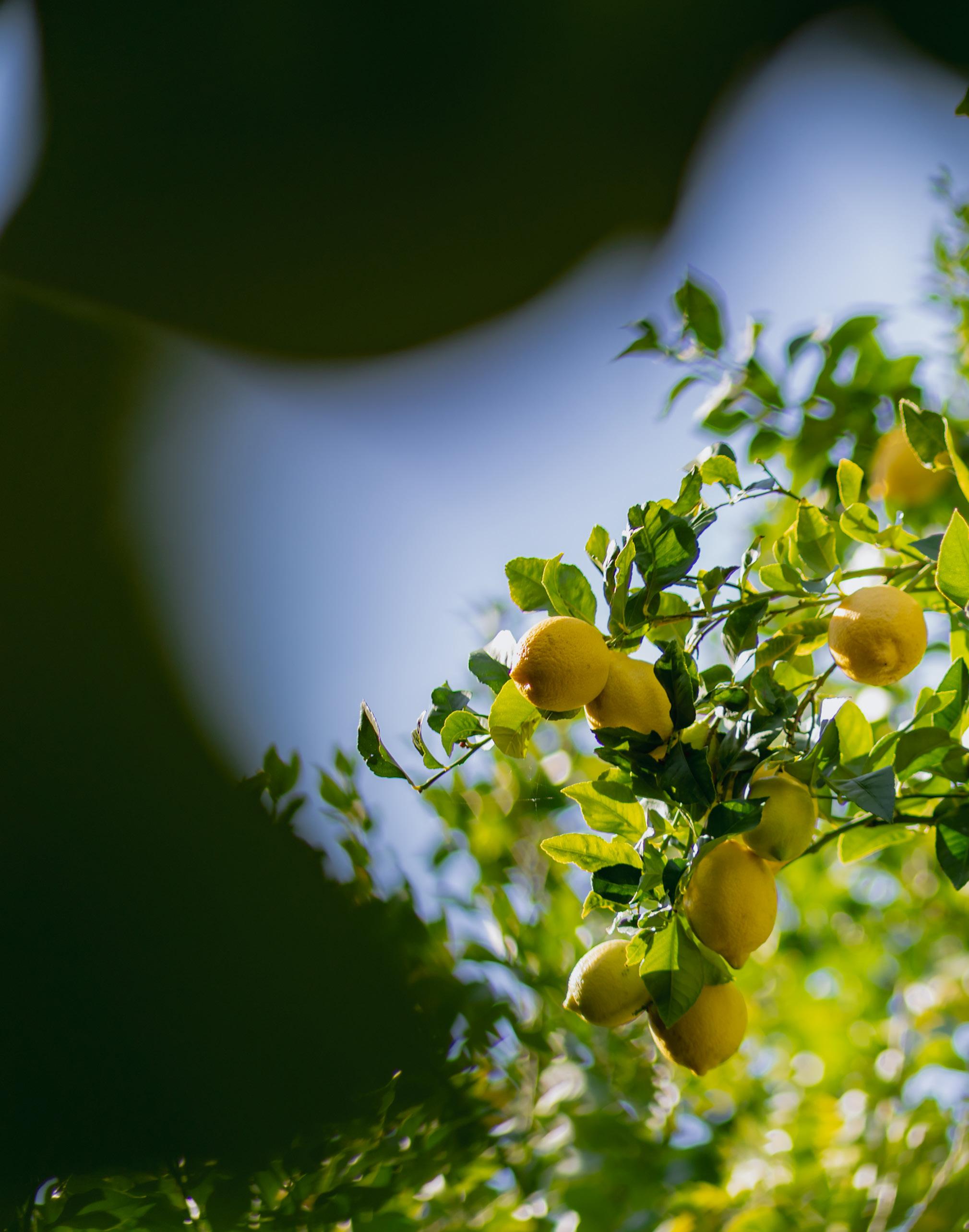

From field to table, Safresco offers freshness and quality straight from the farm. Juan Greyvenstein, Managing Director, tells us more about the company’s a-peeling global offerings of premium, fresh fruit
Writer: Lauren Kania | Project Manager: Connell Privett
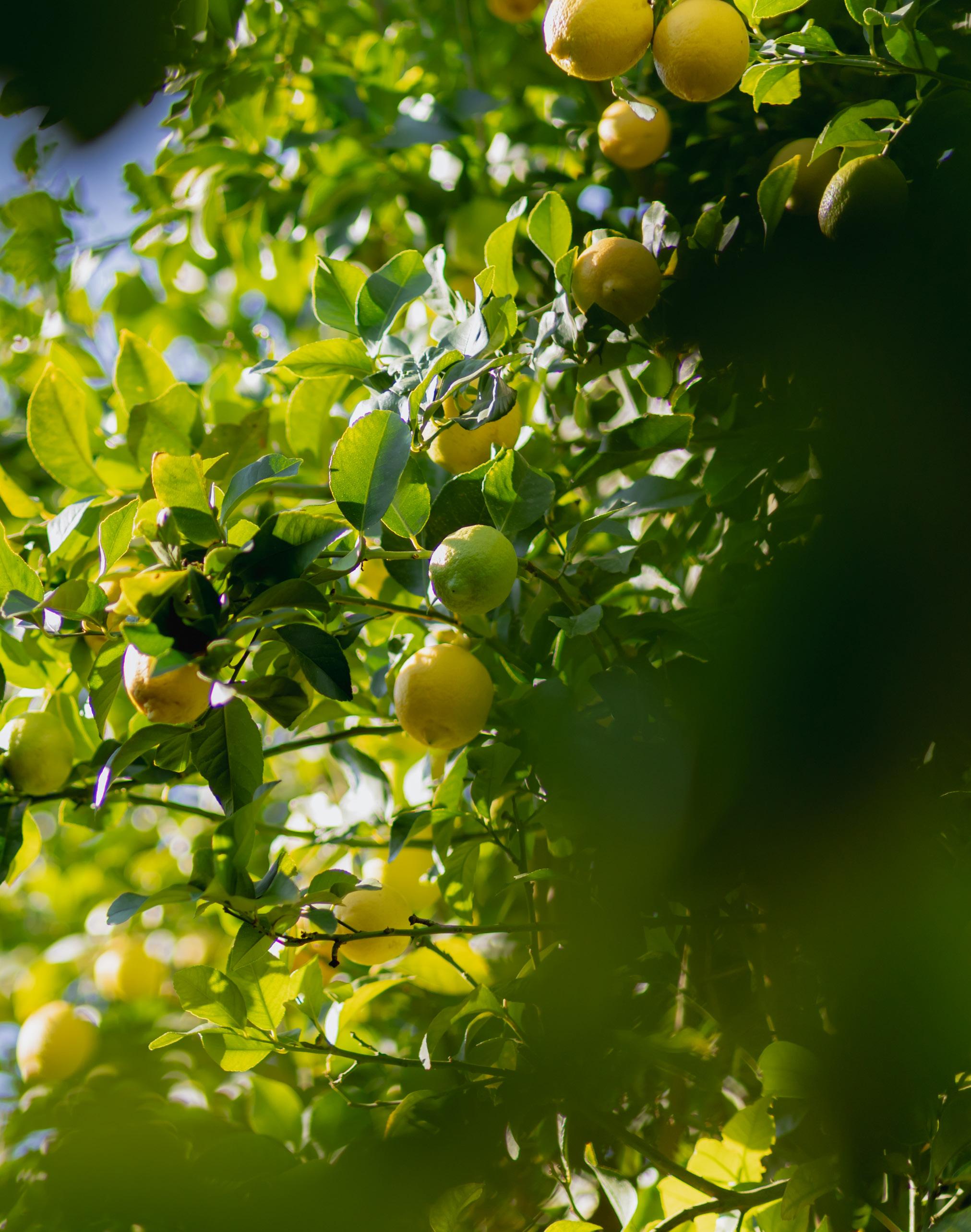
As a leading producer of citrus fruit, grapes, and avocados in the Southern Hemisphere, Safresco’s speciality is fresh fruit that’s more than just tantalisingly delicious but also good for consumers’ health.
Supplying fruit with the highest quality and safety standards, the company proudly meets its customers’ specifications whilst satisfying worldwide demand for its premium produce.
“We grow, pack, source, and commercialise fruit, with citrus being the primary product,” introduces Juan Greyvenstein, Managing Director.
“Avocados and grapes are increasing in volume whilst vegetables remain a small component in the local market.”
With a presence in multiple countries across the Southern Hemisphere, Safresco has approximately 1,300 hectares (ha) of planted citrus and two packing facilities in South Africa (SA), 600ha of citrus, 500ha of grapes, and 500ha of avocados in Peru, and a sourcing team in Argentina.
“The Southern Hemisphere operations sell more than 180,000 tonnes per annum (tpa), mainly to the Northern Hemisphere countries, with Europe and the US being the largest markets,” he adds.
Additionally, Safresco forms part of Cirtri&Co – a European-based group which sells about one million tpa of fruit with operations in Spain, France, Morocco, Brazil, SA, Peru, and the UK.
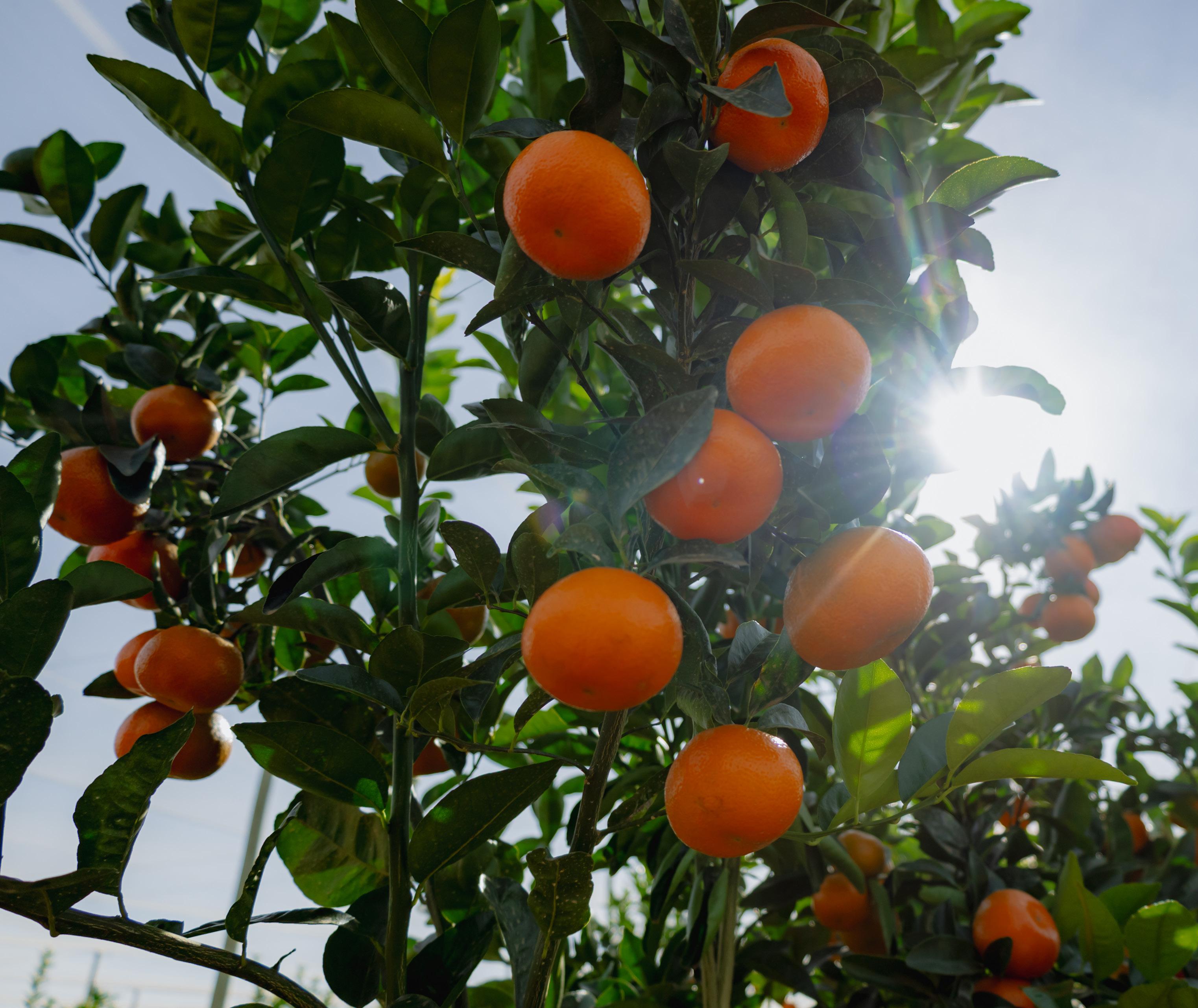
Greyvenstein did not start his career in the fruit industry; instead, he began in manufacturing, which he laments did not pose the same dynamics as his current position, which offers an everchanging landscape and an “every day is different” environment.
Currently, Greyvenstein views the sector as equal parts exciting and challenging.
“After a few tough years for South African growers, the industry finds itself at a profitable point in the citrus cycle for most varieties,” he details.
“Citrus, like most agricultural sectors, has so many different influences and unknown factors that could impact strategic and operational decision-making. This
makes it a very exciting industry to be involved in.”
Safresco has worked diligently over its history to differentiate itself from the competition through its uniquely fresh and succulent fruit offerings.
The company’s multiple origins allow it to service key customer programmes from various sources and provide more reliability in case of certain challenges.
“We are vertically integrated, handling R&D, growing, packing, sourcing, exporting, and managing customer relationships. We understand the challenges and opportunities of each facet alongside
the importance of having a secure supply through our own production,” outlines Greyvenstein.
Safresco’s vertical integration also means it can oversee quality at all stages of production. The company prides itself on being attentive to every detail, from cultivation to delivery to the end consumer, complying throughout with the strictest quality requirements.
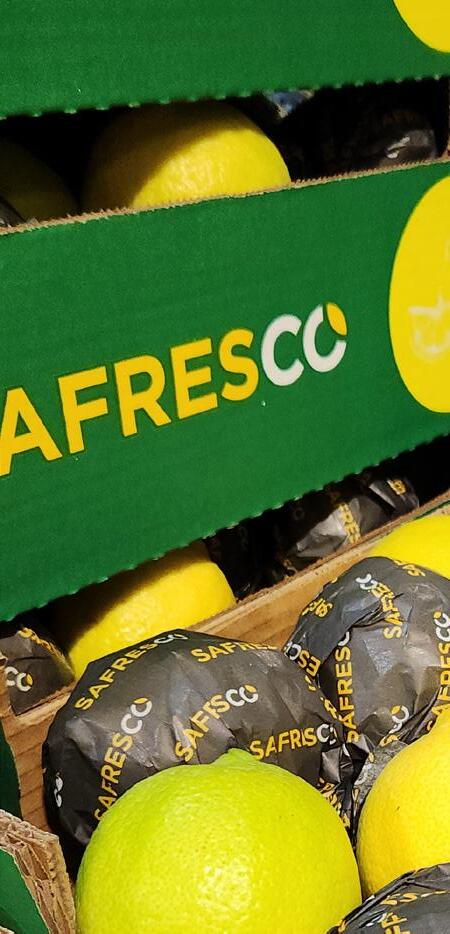
“Controlling quality is extremely important for our customers, and having our own orchards and packaging produce in our facilities

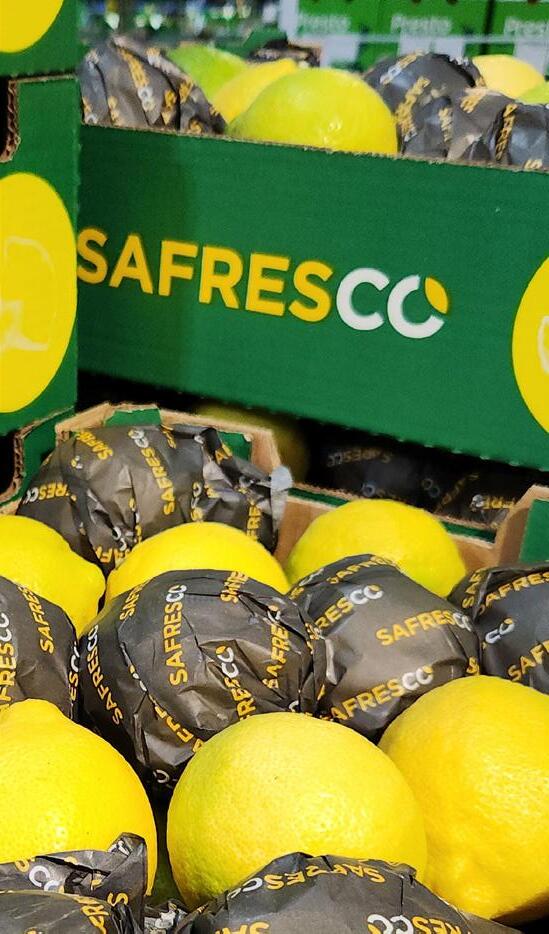
ensures we control the quality of the product throughout the process,” he asserts.
The company has also worked to cement its position as one of the largest fruit producers in its region through consistent support from shareholders, with profits reinvested into the business for expansion and improvement.
Equally, it has received support from suppliers, particularly growing partners who entrust Safresco to pack and commercialise their fruit.
Juan Greyvenstein, Managing Director: “Since the inception of Safresco in SA back in 2010, we’ve been fortunate to have fantastic support from business partners. From a financing point of view, Standard Bank has been with us from the start and willing to match our appetite for risk and opportunity.
“This has enabled us to grow in SA from 250ha of planted citrus and 25,000 tonnes (t) of exported fruit to 1,300ha and 115,000t of fruit sold. Importantly, through industry rough patches, the relationship and support have remained steadfast.”
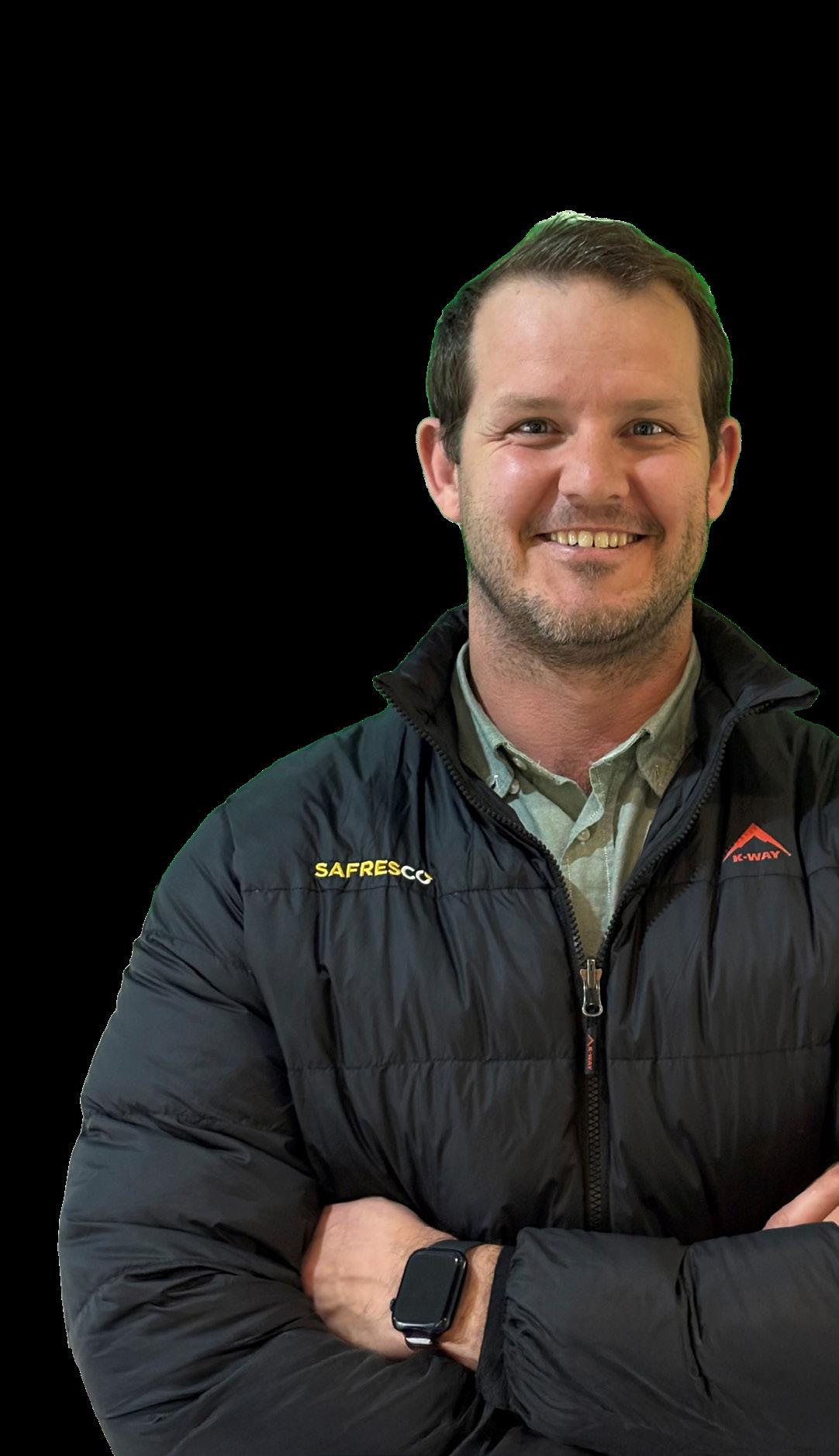
Through the group’s R&D centres and widely experienced technical teams, its expert technicians continuously research new varieties of fruit and suitable agricultural practices to obtain the best quality, the latest technology for packaging, and the most fitting marketing methods.
Specifically, the company’s packing plants are equipped with cuttingedge machinery and located in close proximity to the farms where the produce is grown, optimising the fruit’s conservation and transport conditions.
As Safresco continues to expand its fresh and fruity footprint, it is
highlighting the increased demand from its customers and growing its volume further.
The company is achieving this goal by renting more orchards, partnering with strategic growers, and investing in netting to ensure an increase in volume with an improvement in quality.
“We have also finalised a transaction whereby we acquire a stake in the first commercial citrus operation in Botswana, which currently entails 1,000 planted ha of citrus and a stateof-the-art packing facility. Phase 2 of the project will commence in the next 12 to 24 months, increasing the area to approximately 2,200ha,” insights Greyvenstein.




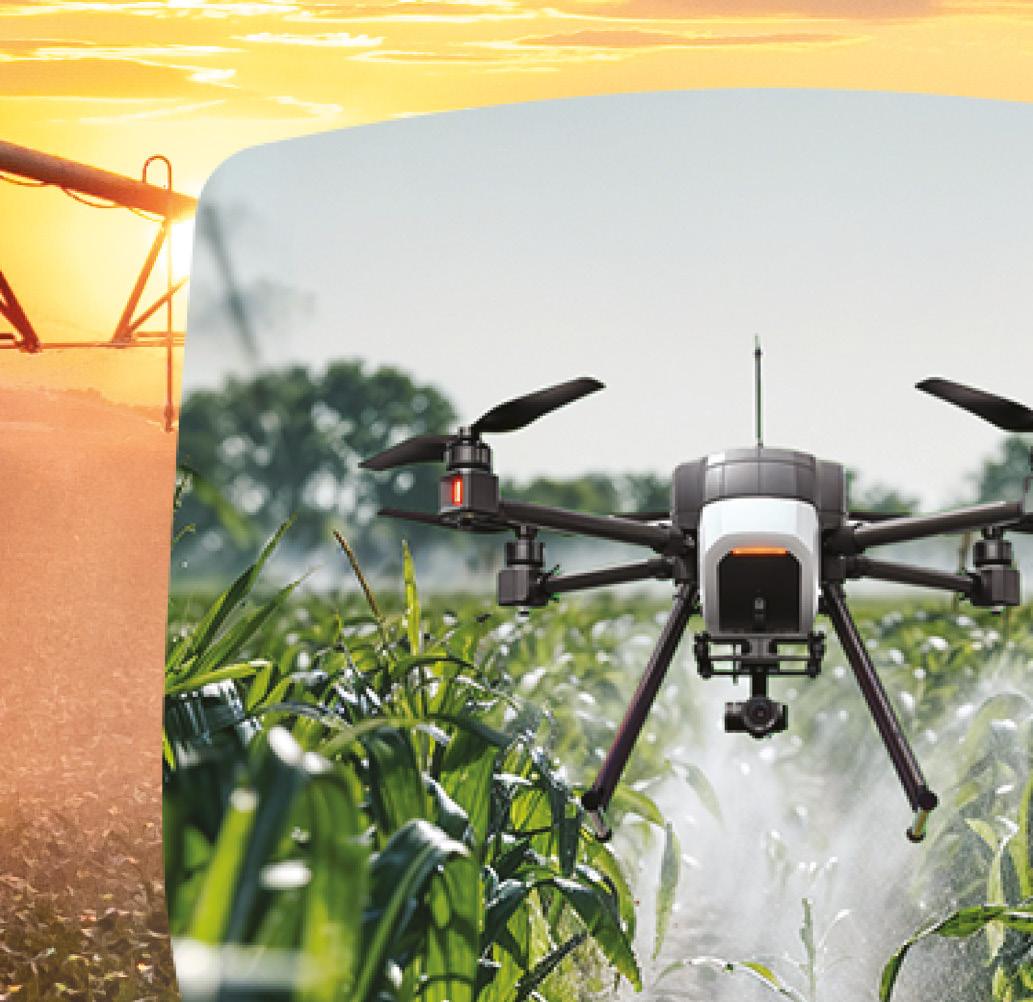
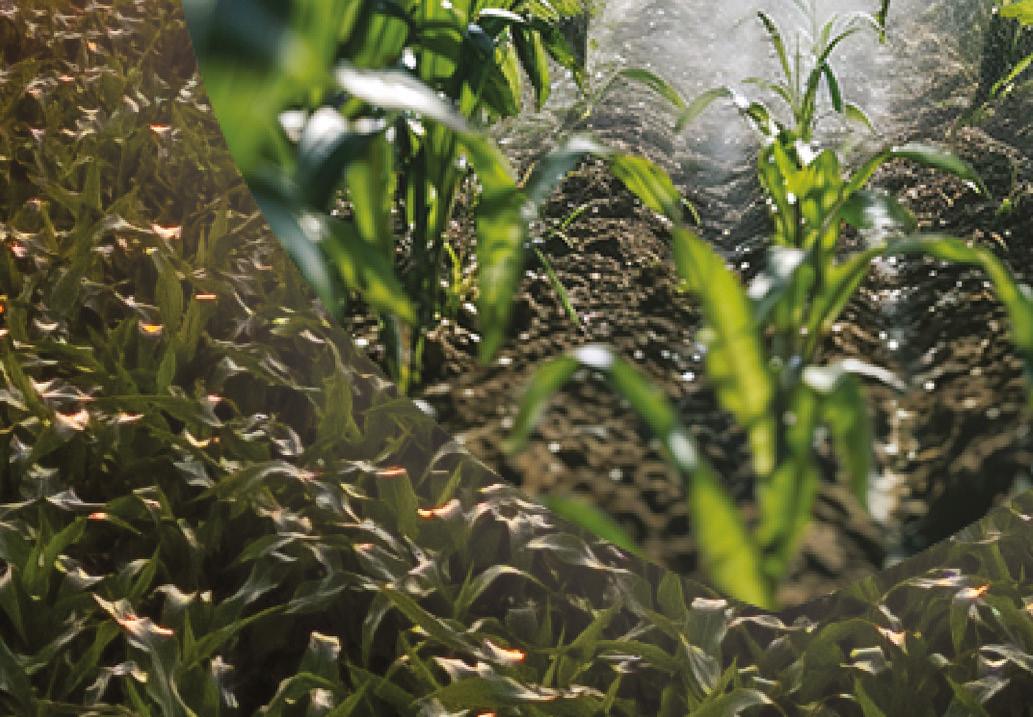



When you choose Standard Bank Business and Commercial Banking, you get access to a suite of solutions designed to take your Agribusiness further.
From our transactional banking and business solar loans to our trading and lending solutions, we provide the resources, connections, and expertise to fuel impactful growth. Because our offerings are not just about exploring possibilities – they’re about turning those possibilities into incredible opportunities.

Standard Bank Business & Commercial Banking
“CONTROLLING QUALITY IS EXTREMELY IMPORTANT FOR OUR CUSTOMERS, AND HAVING OUR OWN ORCHARDS AND PACKING PRODUCE IN OUR FACILITIES ENSURES WE CONTROL THE QUALITY OF THE PRODUCT THROUGHOUT THE PROCESS”
– JUAN GREYVENSTEIN, MANAGING DIRECTOR, SAFRESCO
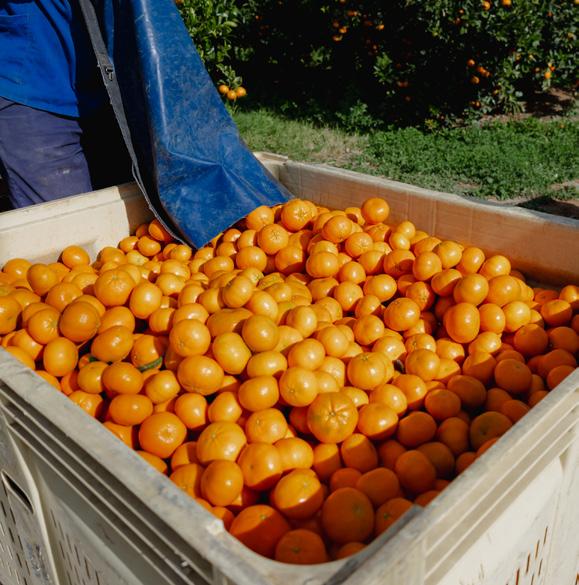
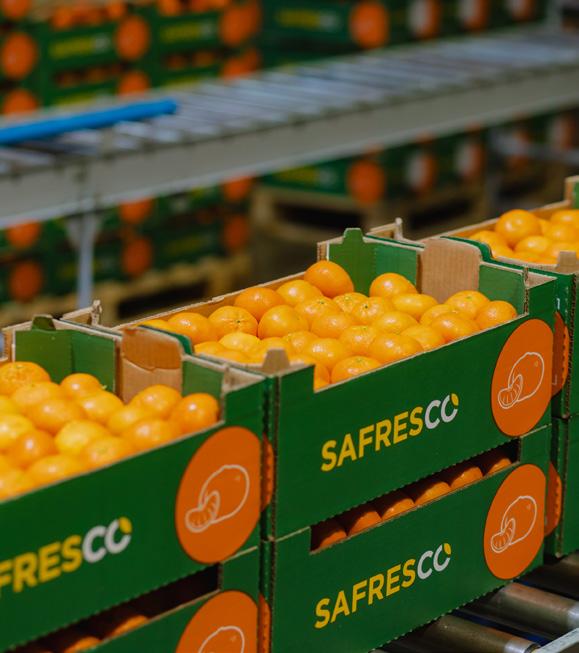
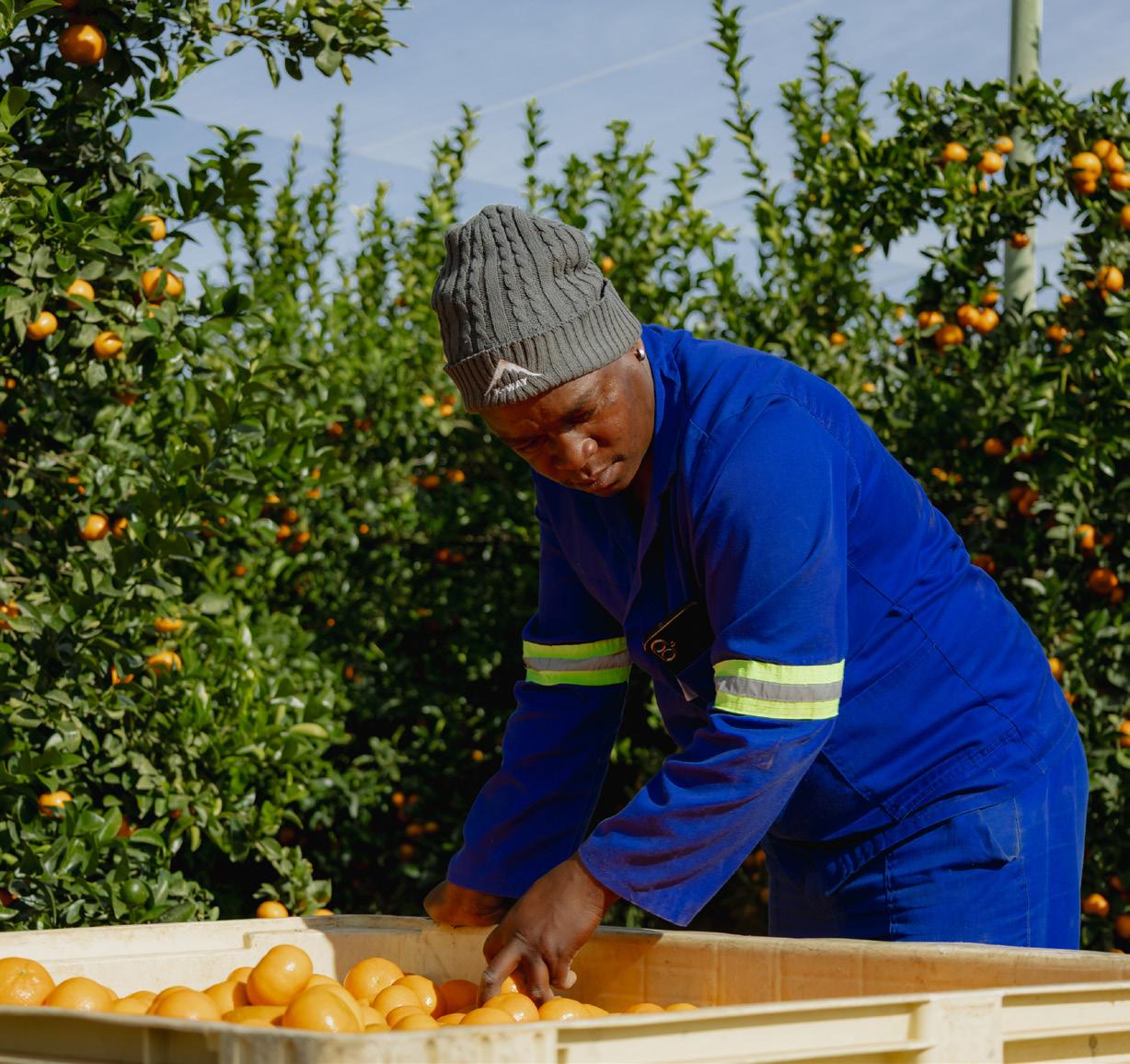
This investment in Botswana strategically complements Safresco’s current supply from SA, which focuses on specific varieties, timing of products, and access to certain markets, allowing the company to guarantee even more security to reach customers’ volume demands.
Additionally, Botswana has favourable growing conditions for agriculture, with lower pest and disease pressure and exceptional soil conditions. This aligns with the company’s decision to place its farms in unique spots with climatology, autochthonous flora and fauna protection, and sustainable farming techniques, allowing fruit to have outstanding flavour and qualities.
Looking ahead, Safresco is aiming to advance even further across different countries and regions whilst meeting the increasing demands of its customer base.
“Currently, we have significantly more demand than supply, so in the short and medium term, we are trying to bridge the gap between them,”
details Greyvenstein.
“For diversification, we are pushing to increase our supply in Western Cape and northern areas of SA alongside sourcing grapes and avocados in the latter to complement our supply in Peru.”
By investing in new orchards and farms located in ideal regions for each crop, Safresco is able to offer a wide range of varieties with exquisite flavour and exceptional quality.
Crucial to Safresco’s company values is its respect towards the environment in which it works and nurtures its fruit.
The company uses agricultural practices that respect the planet and promote societal well-being in addition to building sustainability into each supply chain link to ensure its consumers enjoy premium quality and freshness.
“We work to apply chemicals and fertilisers as efficiently as possible. Each orchard receives different





















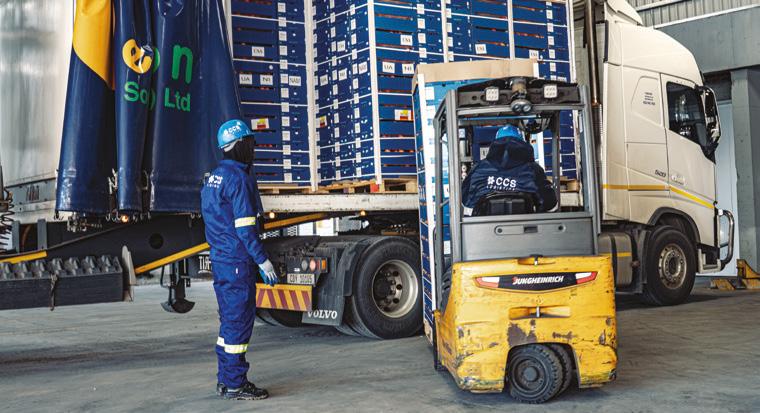





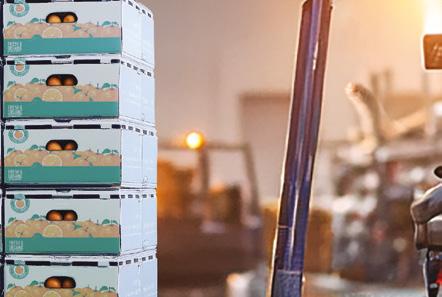


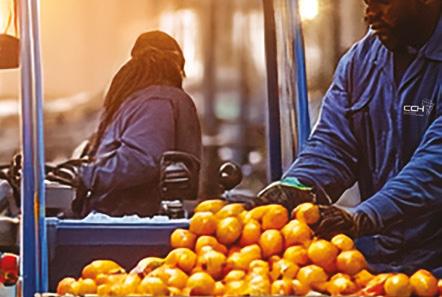




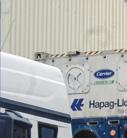







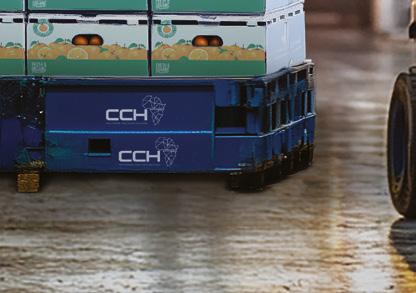


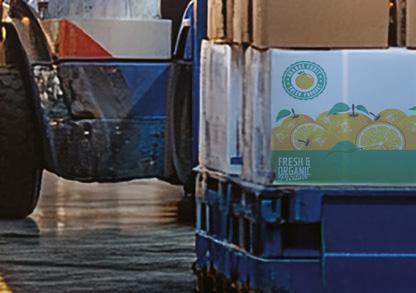



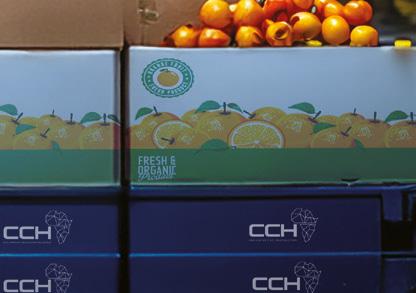
























































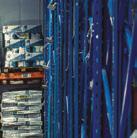





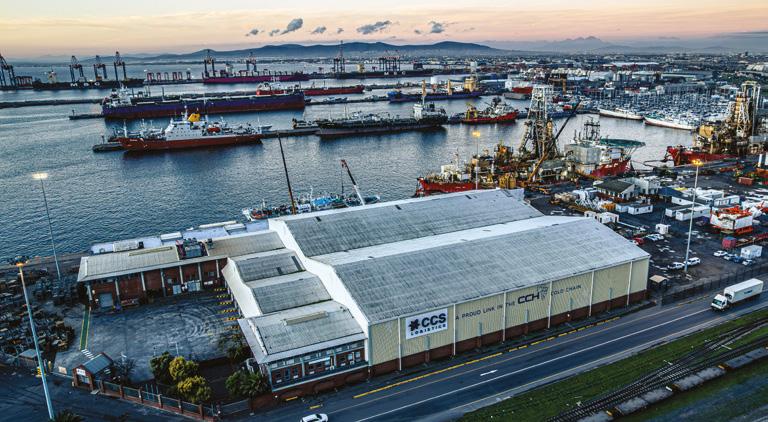

• 180,000+ tpa of fresh fruit
• 2,500+ HA in production
• Over 90 PERCENT of exports to 80+ countries
• FOUR packing plants
• 7,000+ seasonal employees
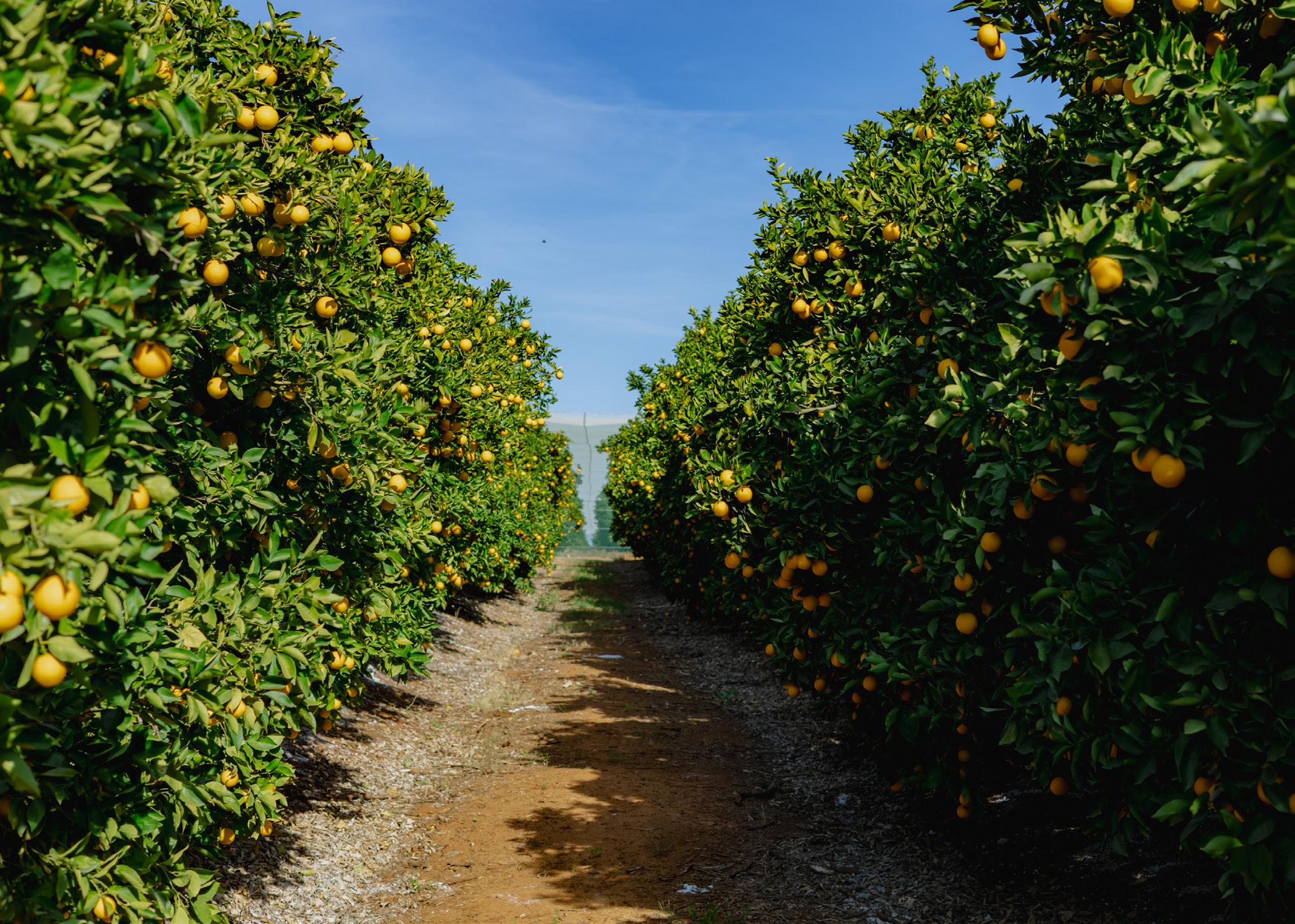
fertilisers based on nutrient analysis to ensure we don’t overapply, and most of it is applied in small, weekly doses as fertigation, which limits the risk of leaching fertilisers into the groundwater,” informs Greyvenstein.
Safresco also adds compost and
natural products to its soils to increase the carbon content and improve root health, which allows the company to boost fertiliser uptake and further reduce the application of synthetic fertilisers.
Equally, its pest control is
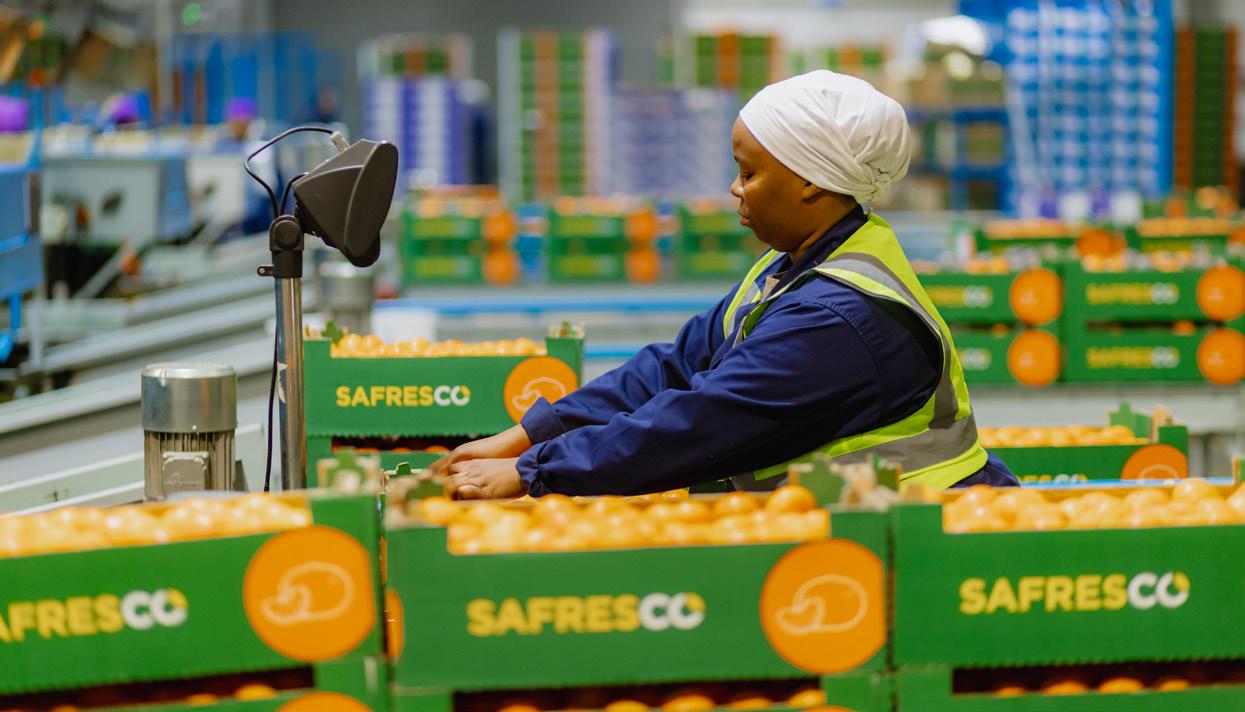
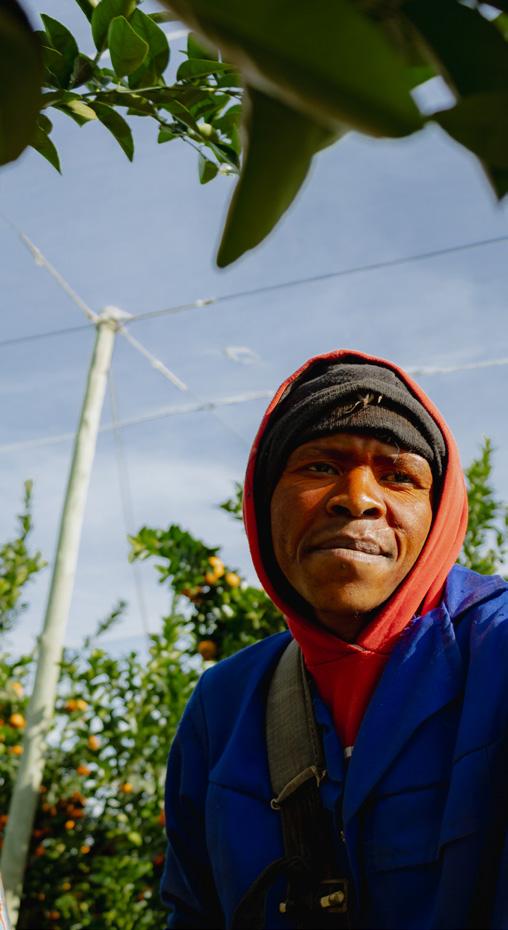
conducted based on scouting results and follows an approach that uses chemicals and techniques that are the least disruptive to beneficial insects. This is in parallel with augmenting natural beneficial insect populations as a form of biocontrol and minimising the cutting of weeds between the rows, allowing them to flower and provide alternative habitats and food sources.
“We also constantly monitor our soil moisture and weather conditions to prevent over-irrigation. Through this integrated approach, we are able to limit our environmental footprint,” expands Greyvenstein.
Alongside Safresco’s dedication towards sustainable agricultural practices, corporate social responsibility (CSR) is a vital part
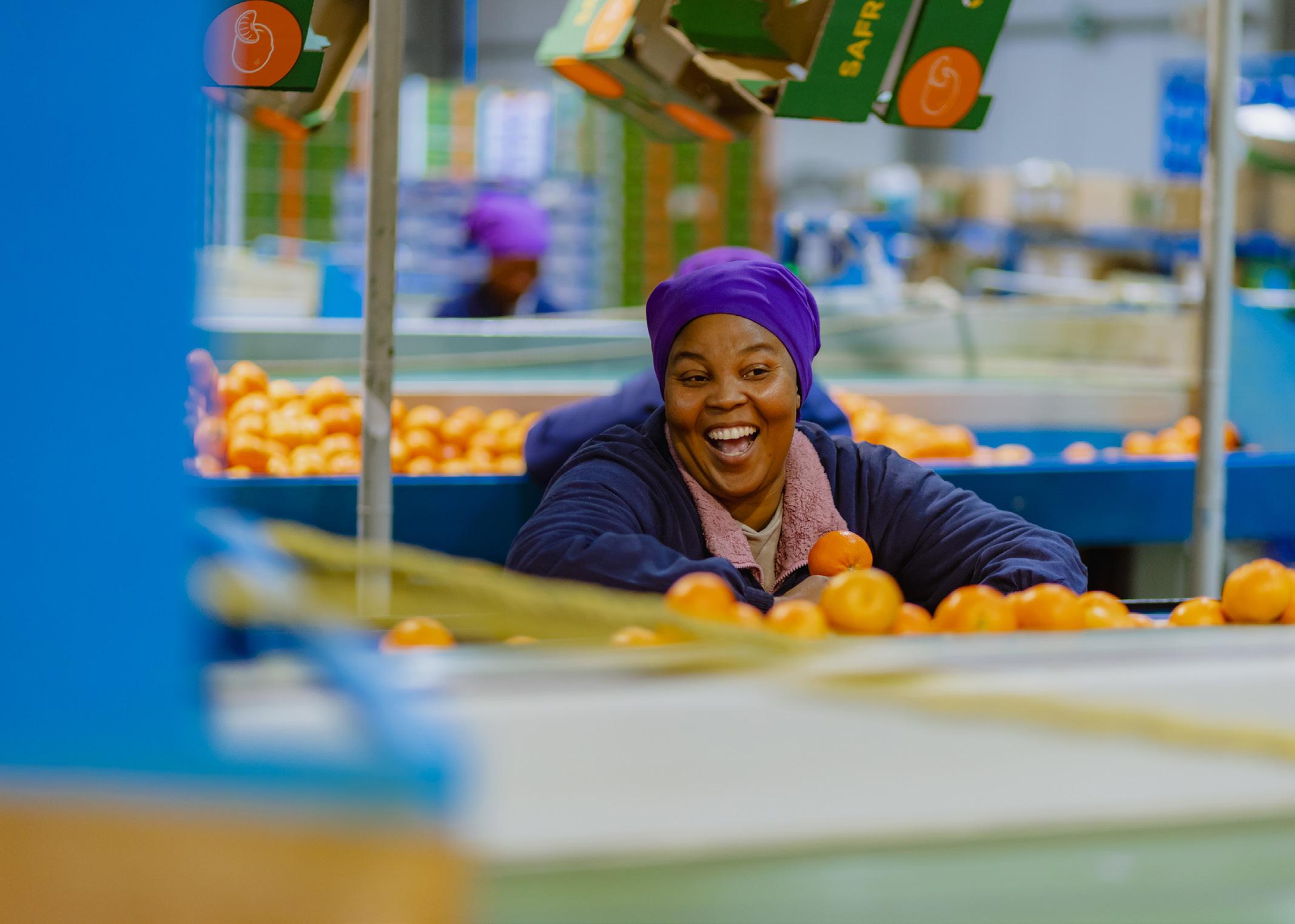
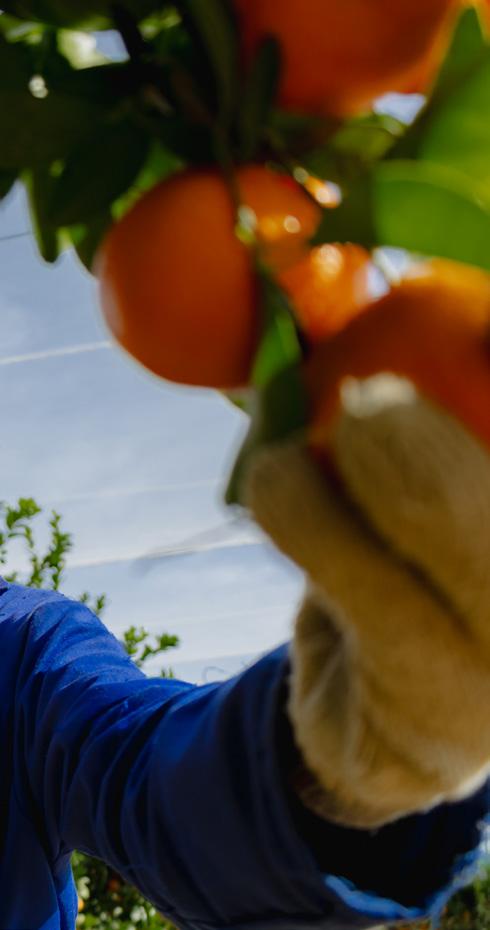
of the company. It is actively involved in supporting the community in Sundays River Valley through several initiatives, including a home-based caregiver project, the Kirkwood Bulk Water project, and an employee trust.
For the former, the company works in collaboration with the Sisters of Mercy to sponsor three trained home-based caregivers who provide primary healthcare to individuals too ill or elderly to visit local clinics.
“This initiative ensures the most vulnerable members of the community receive consistent, dignified care in the comfort of their homes,” emphasises Greyvenstein.
Furthermore, the Kirkwood Bulk Water project tackles the major challenge of providing accessible, reliable water in the region due to
irregular municipal supply. To help address this issue, Safresco has funded the installation of over 400 fully equipped water tanks at the homes of permanent and seasonal employees, as well as strategic points within the broader community.
“The project ensures families have a dependable source of water even during infrastructure failures,” he explains.
In 2018, the company established an employee trust to introduce ownership and the prospect of long-term wealth to previously disadvantaged groups. The trust has a minority stake in some key assets owned by Safresco.
“These projects reflect our longterm commitment to improving the quality of life and supporting sustainable development in the areas where we operate,” proudly concludes Greyvenstein.
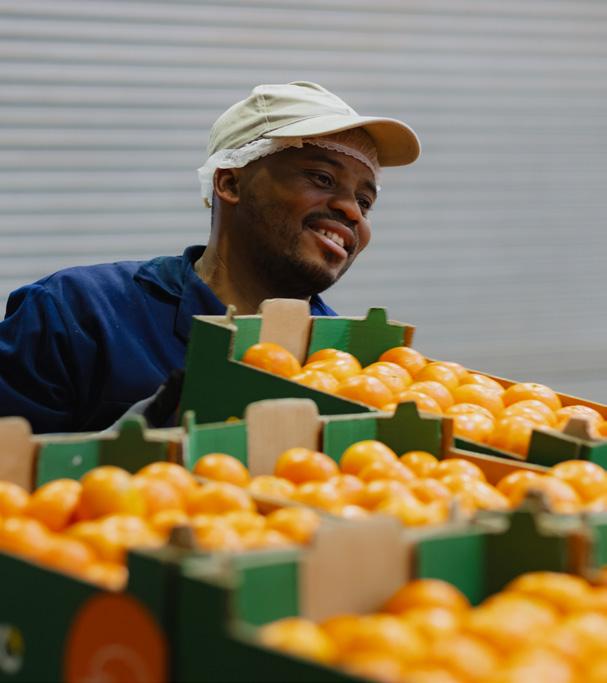

jgreyvenstein@safrescoglobal.com
safrescoglobal.com/en/
